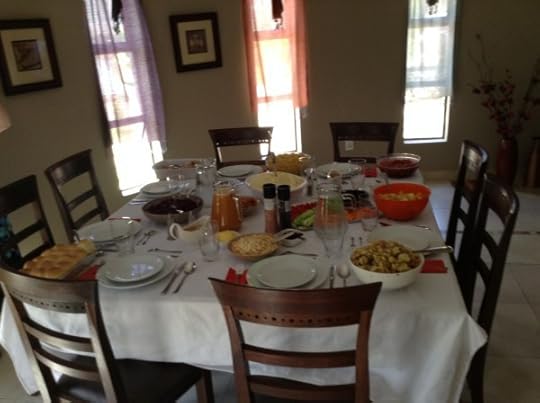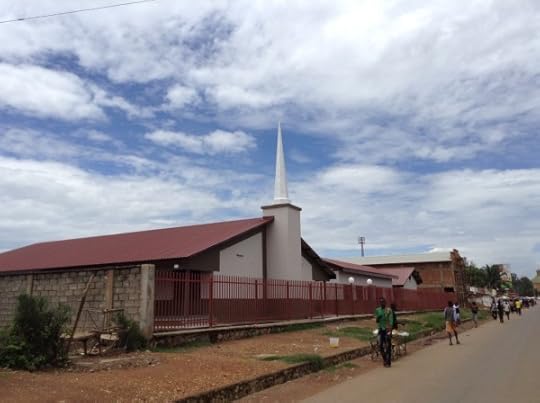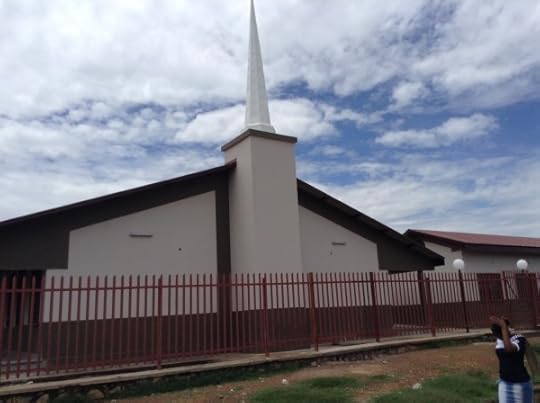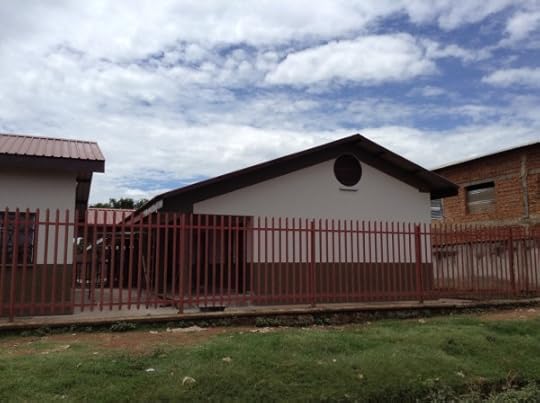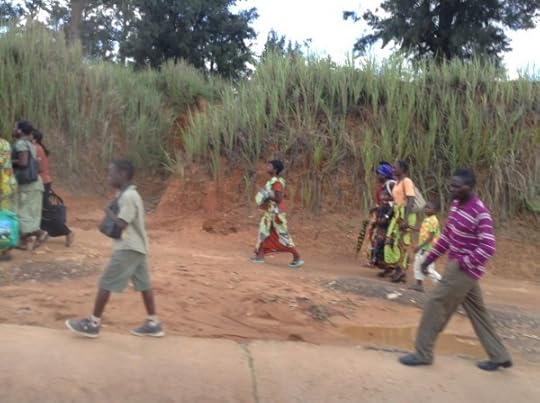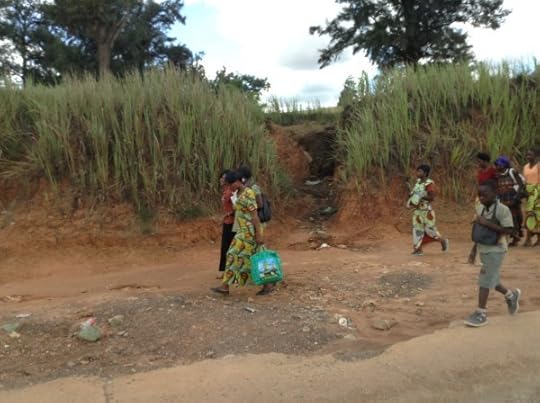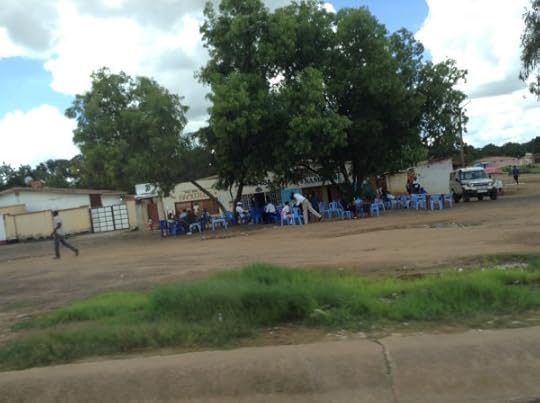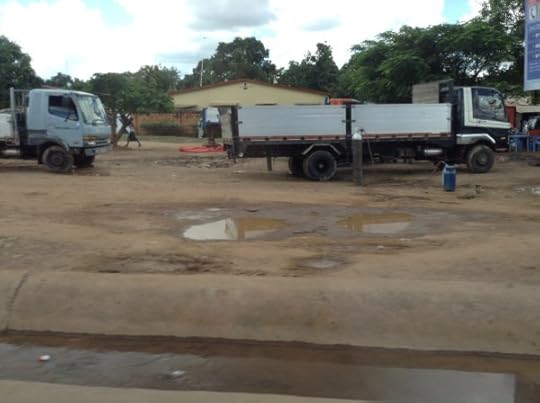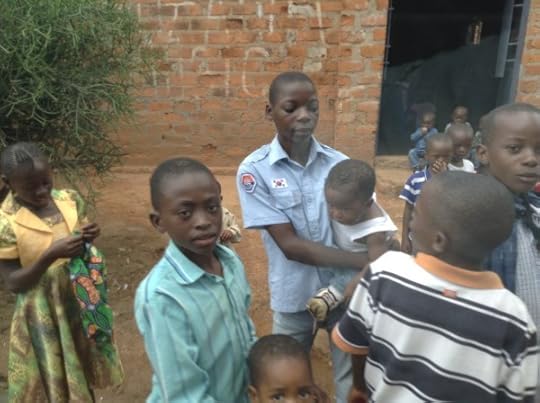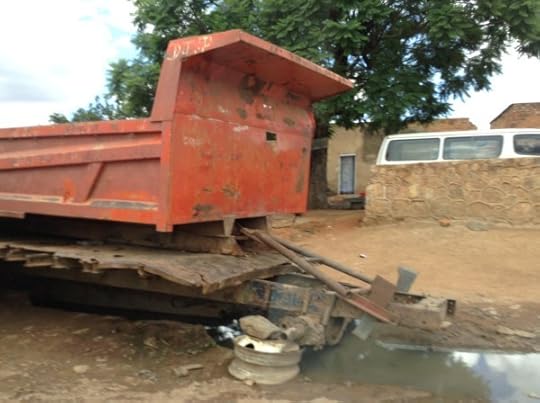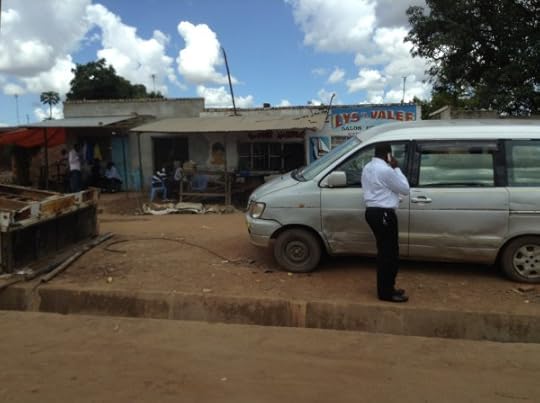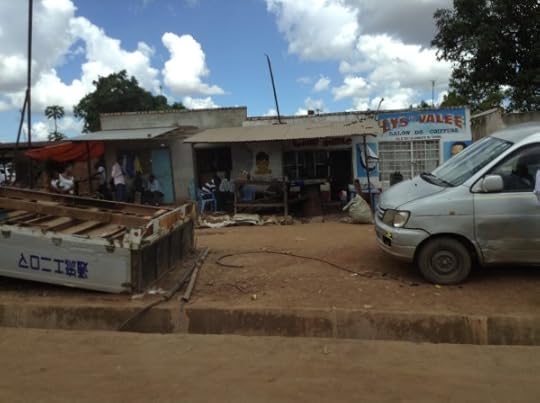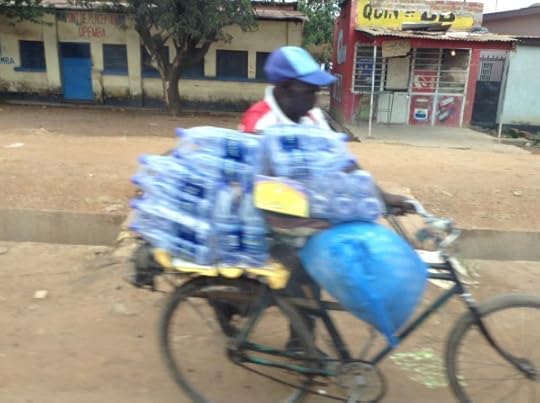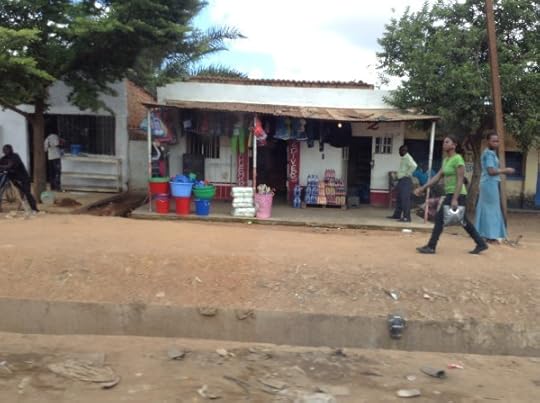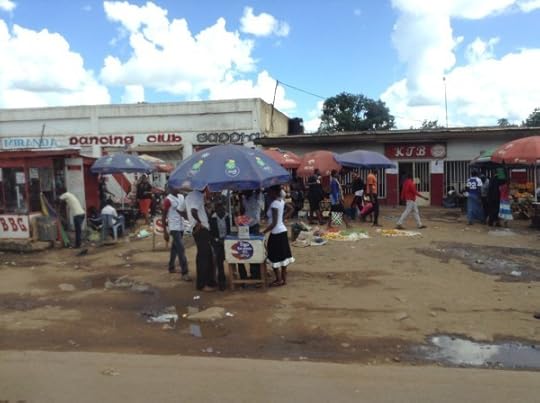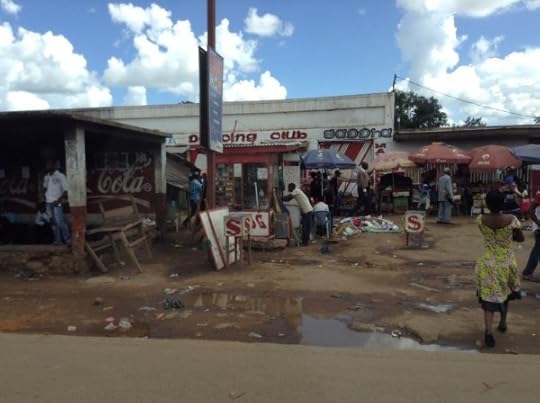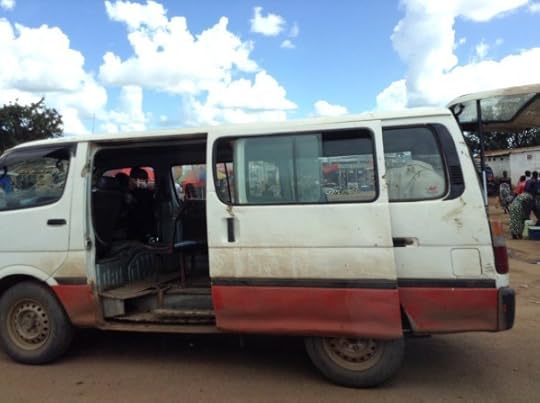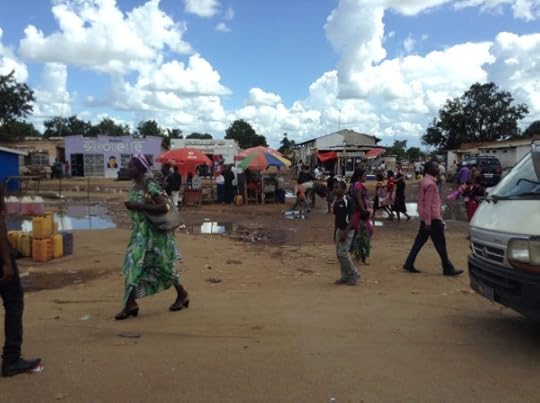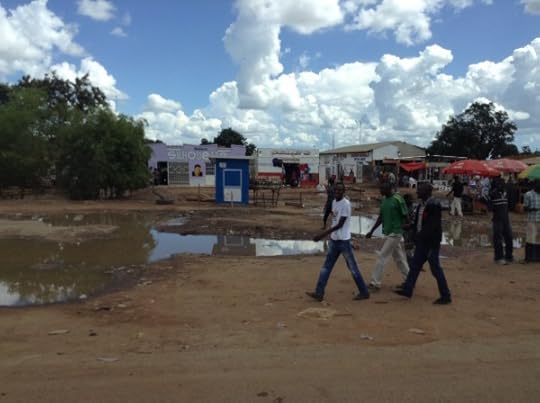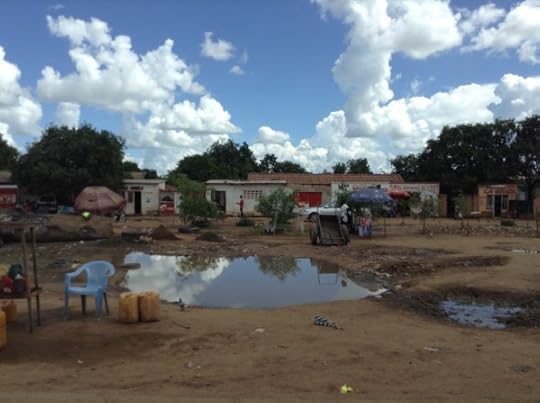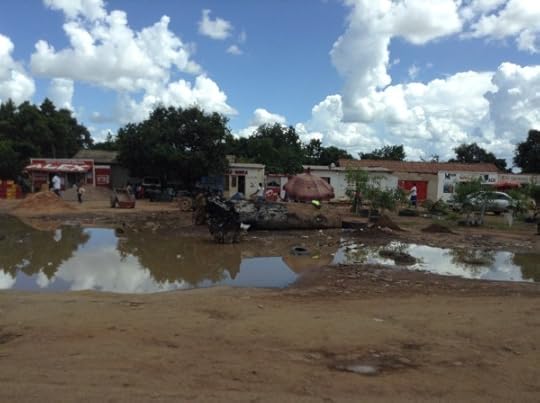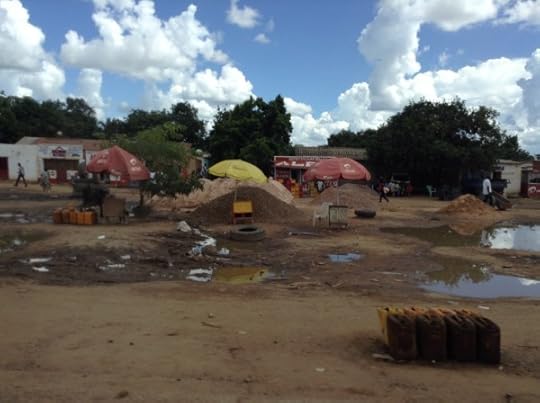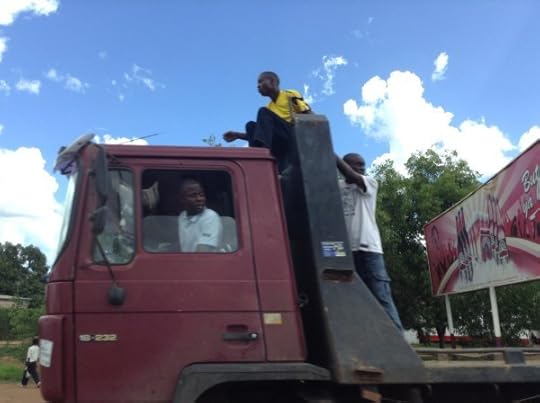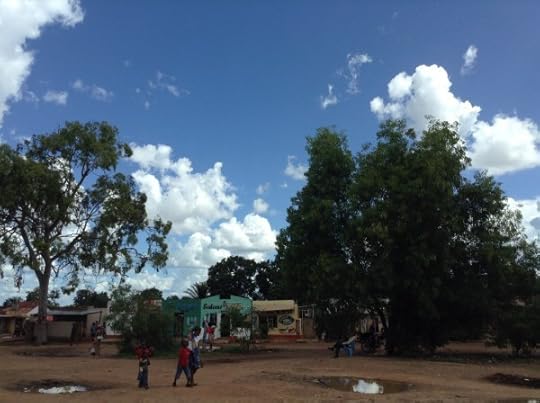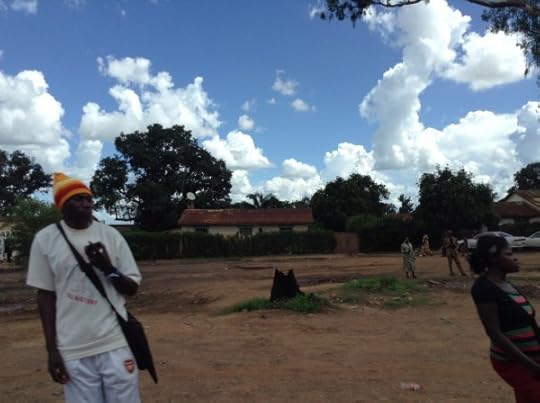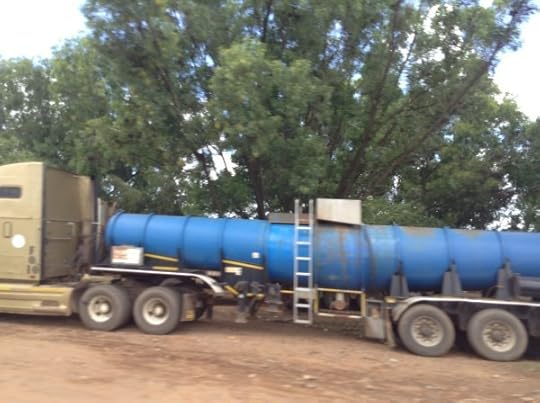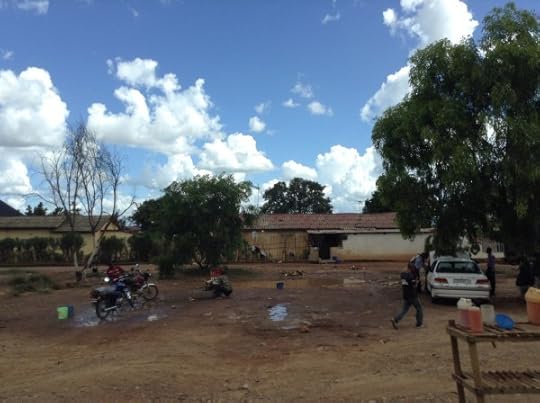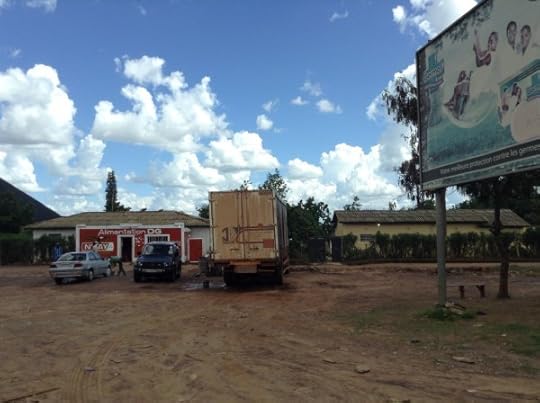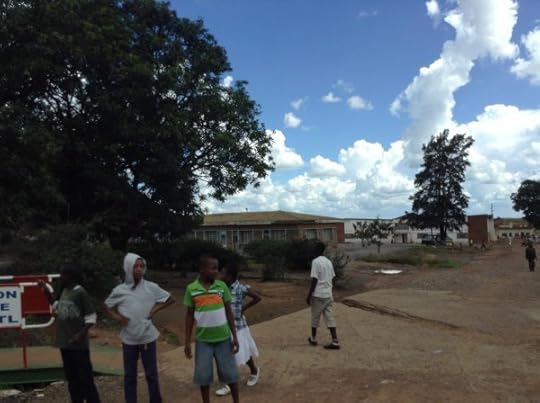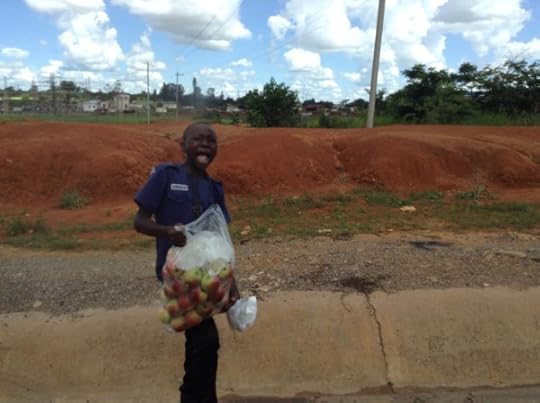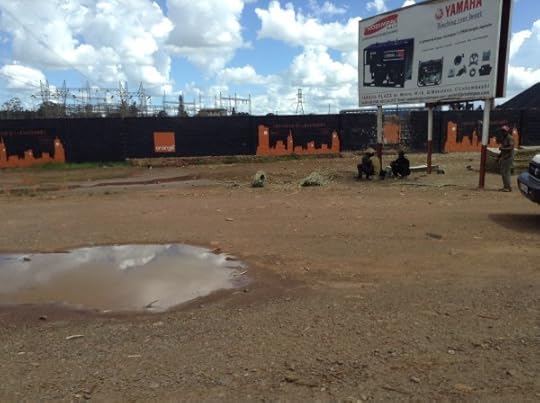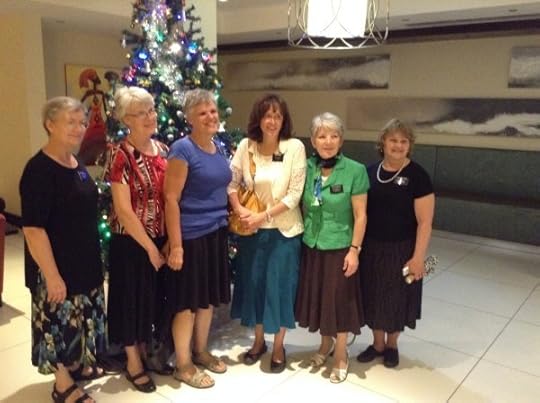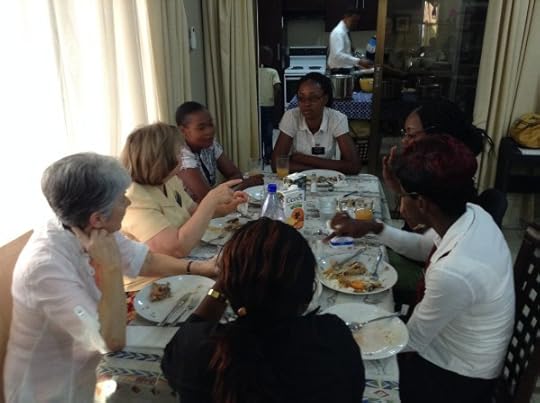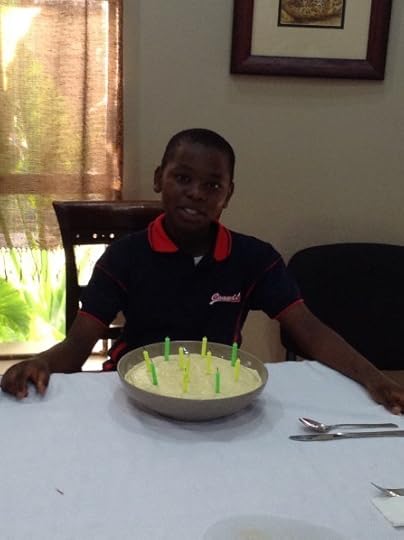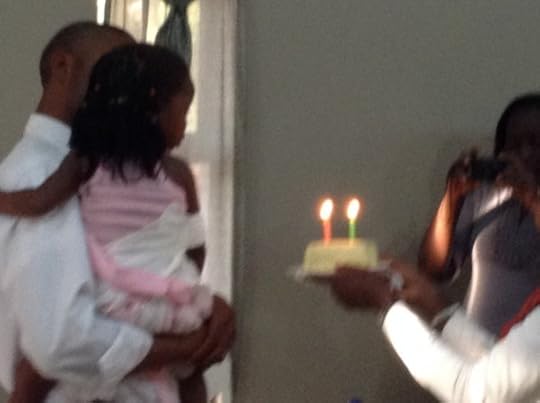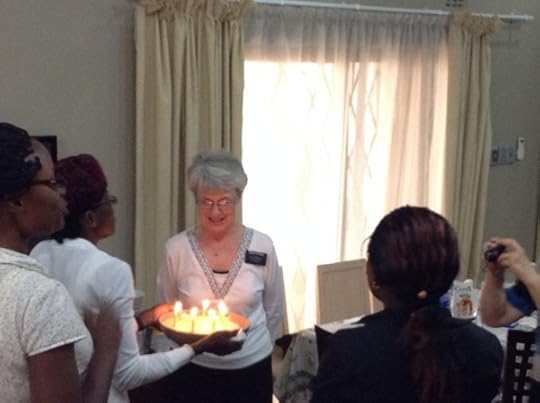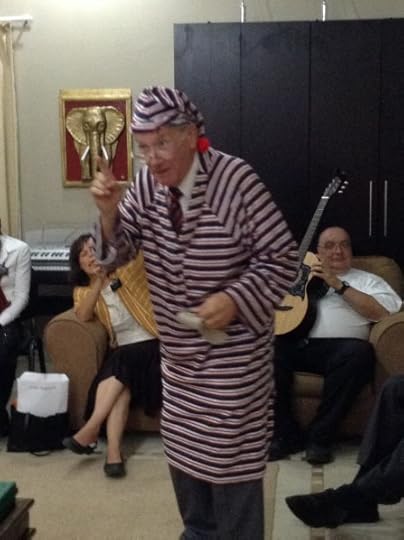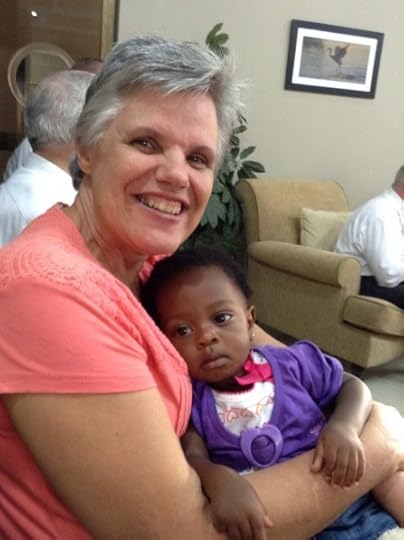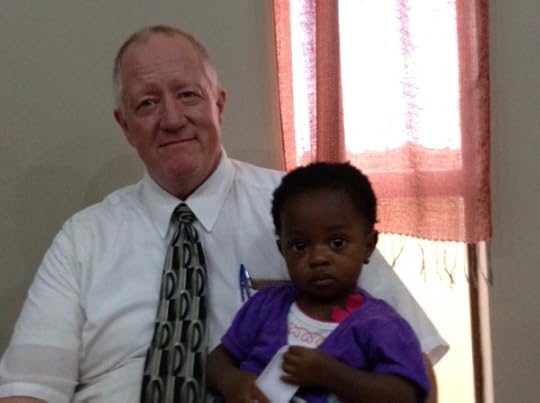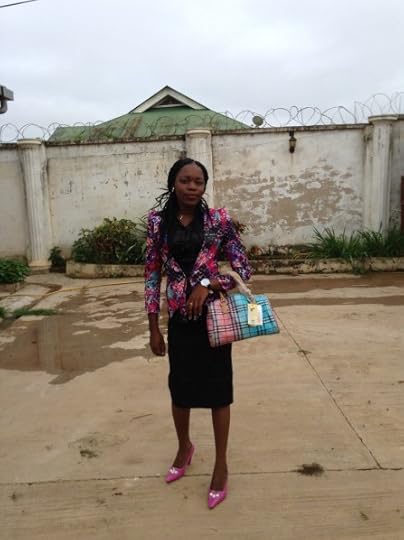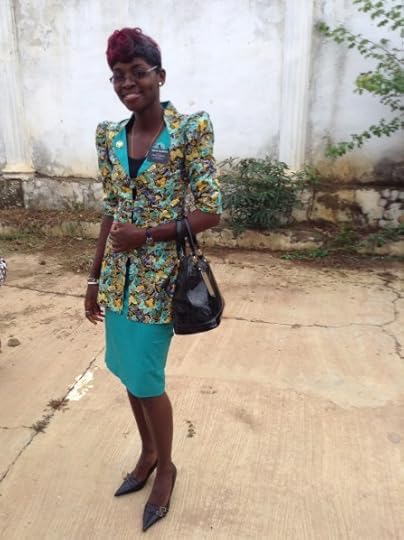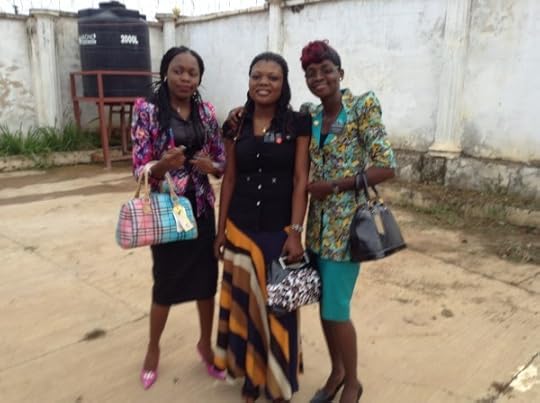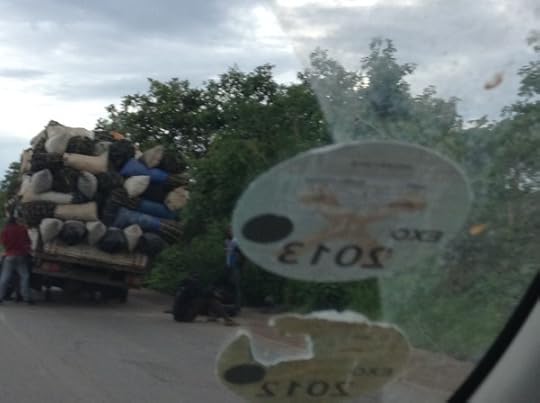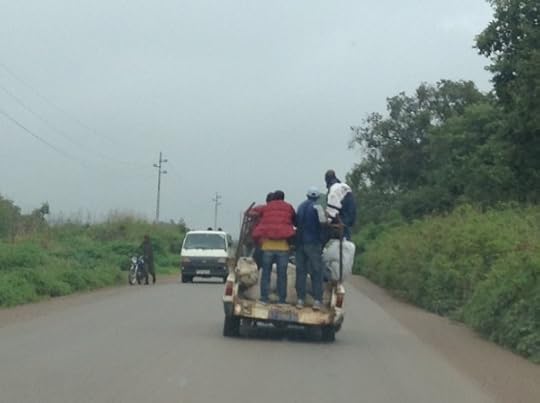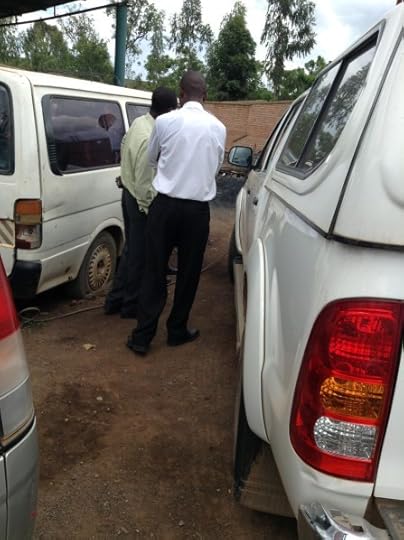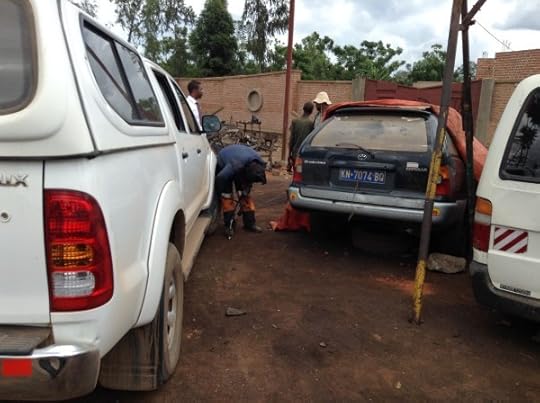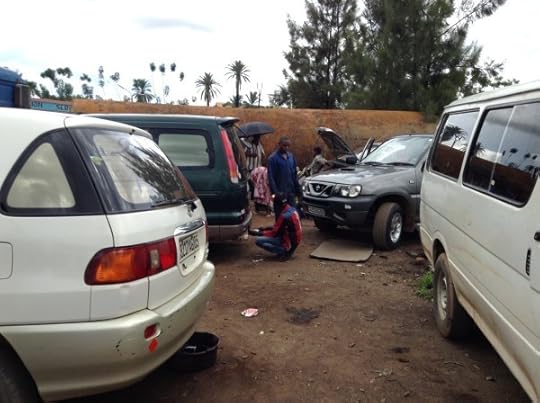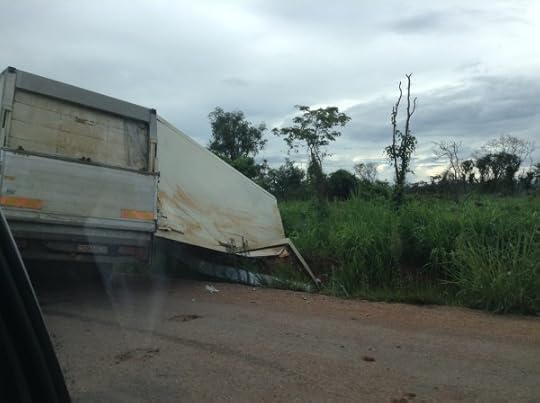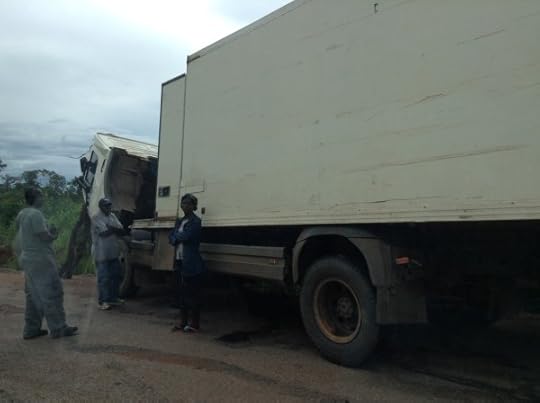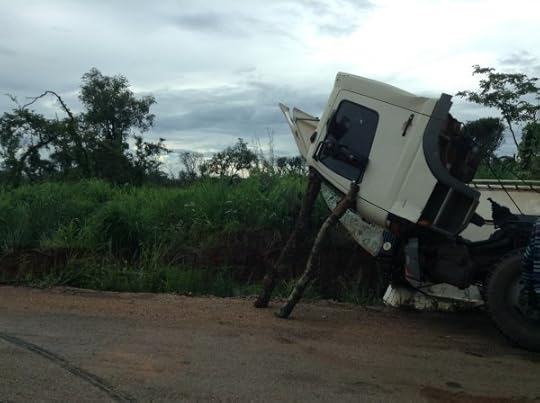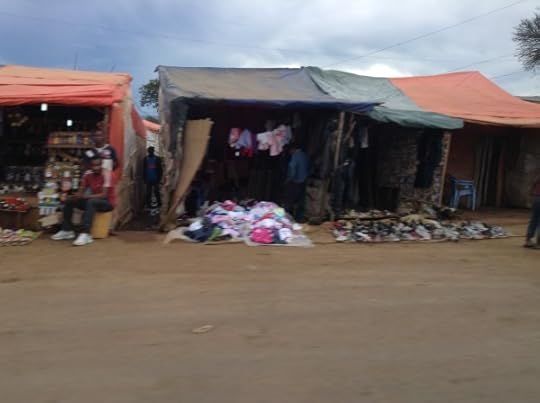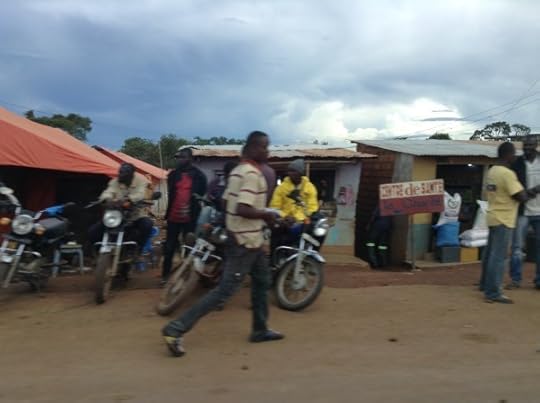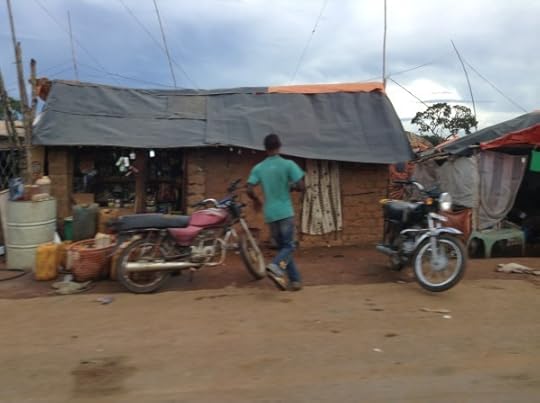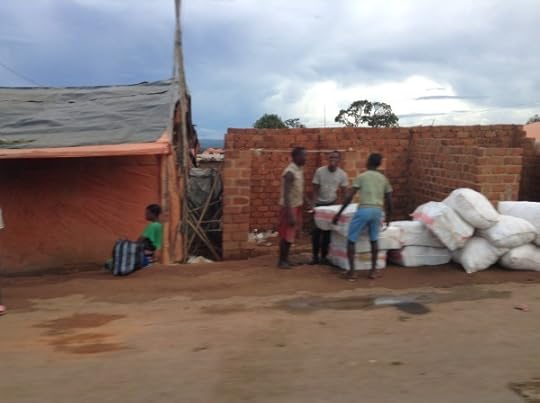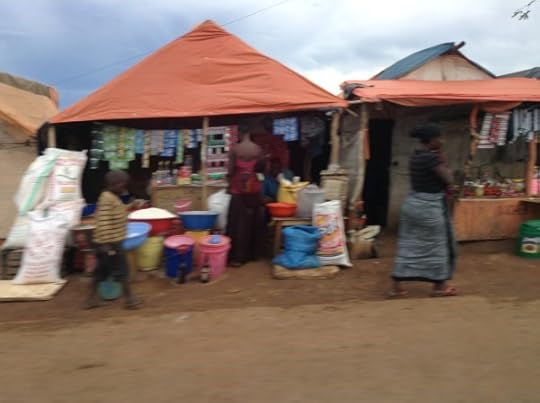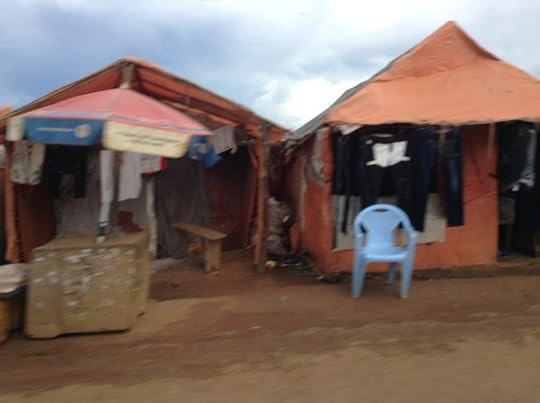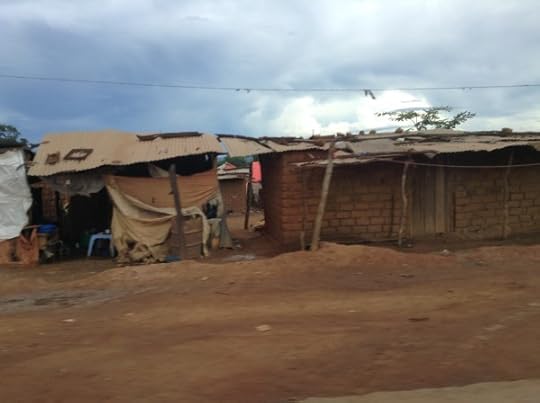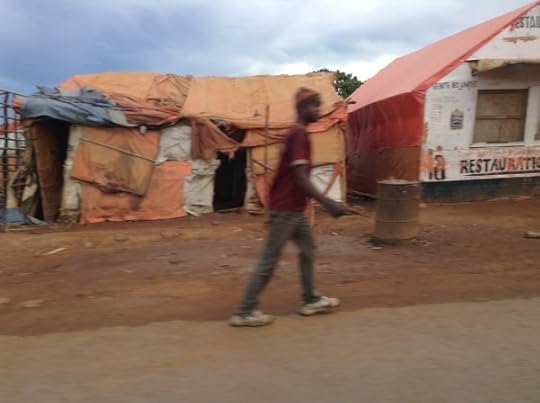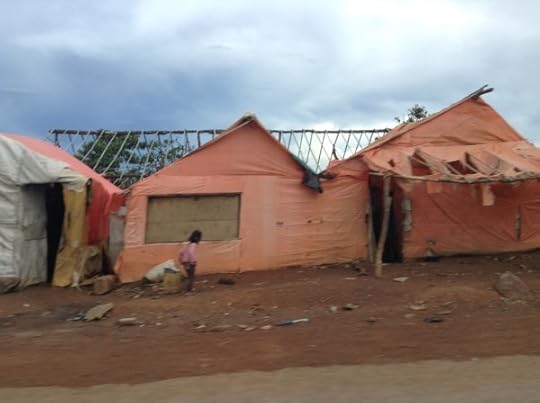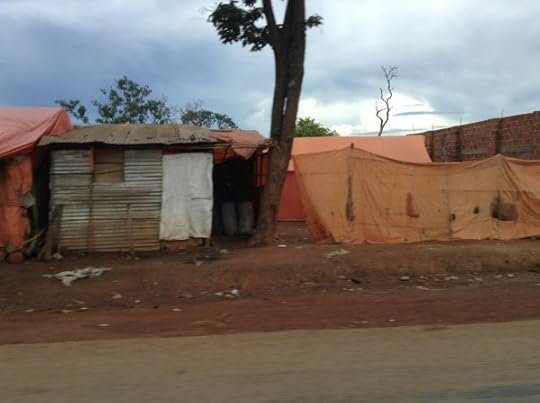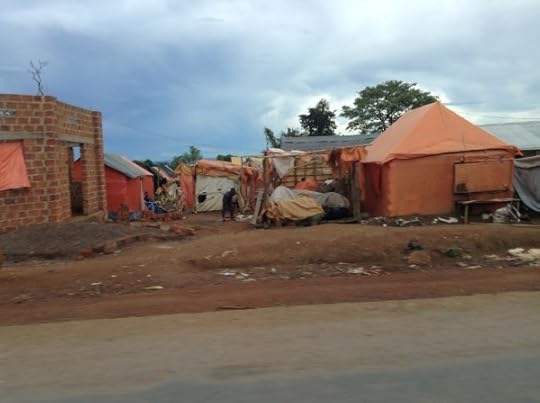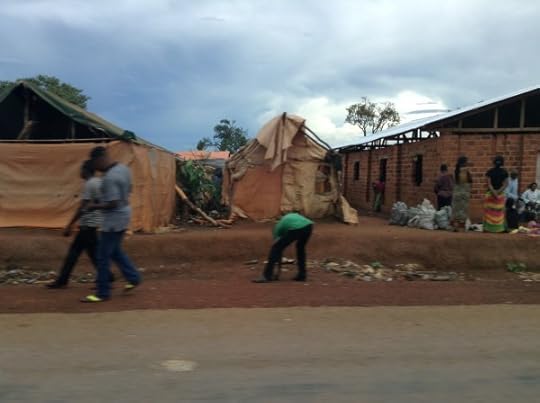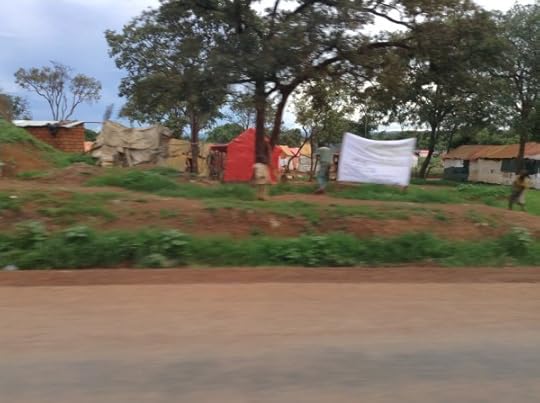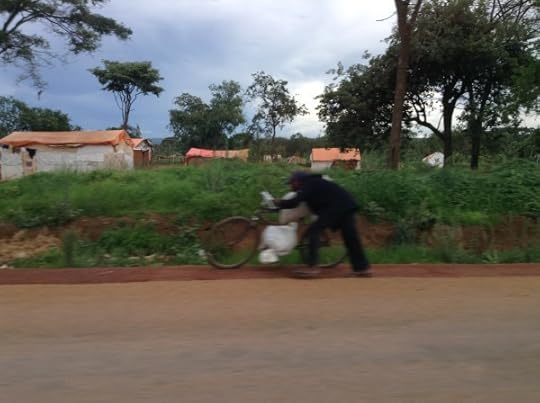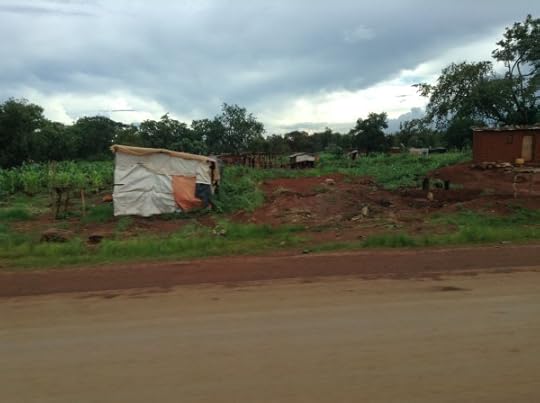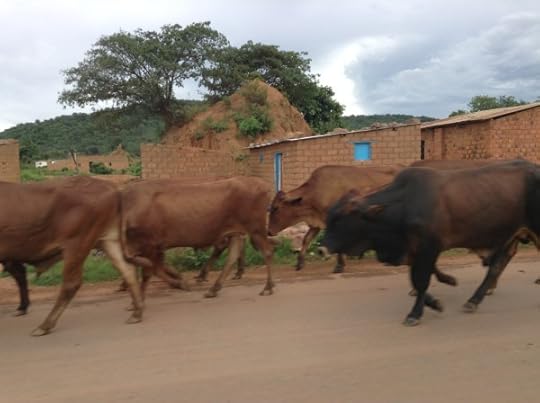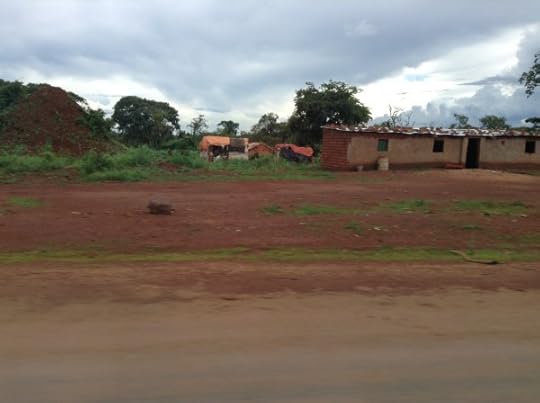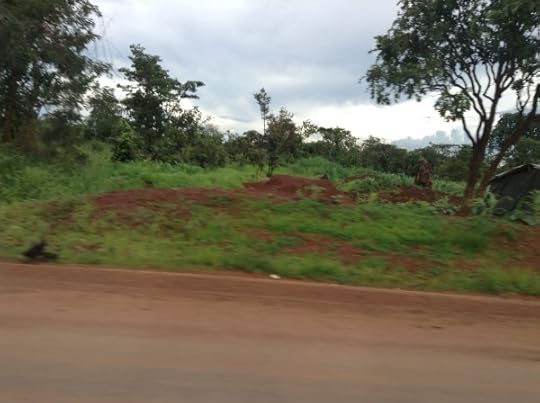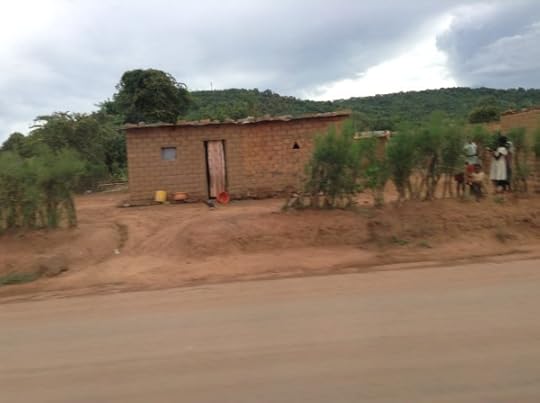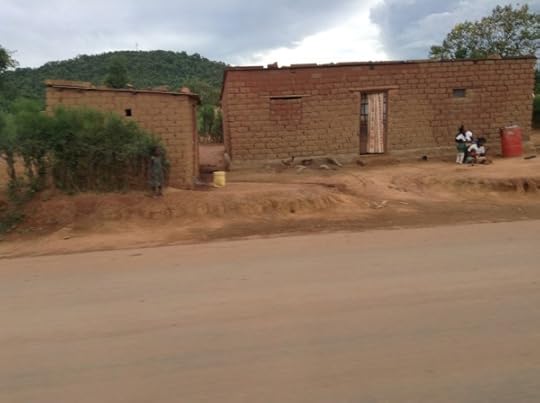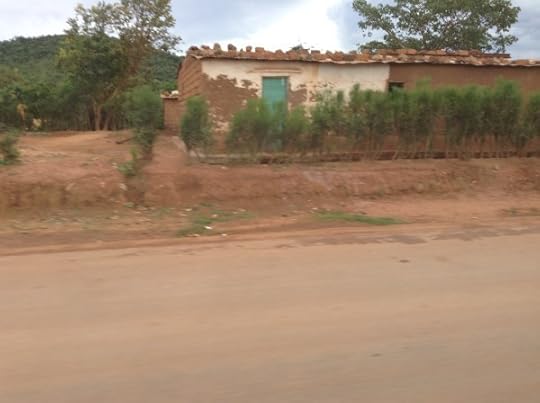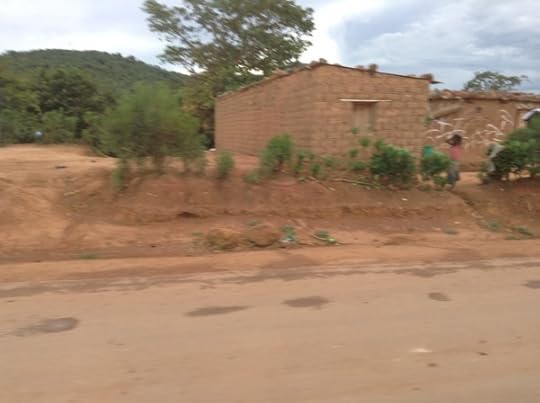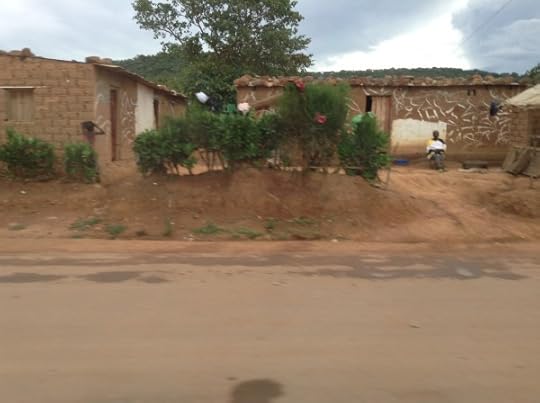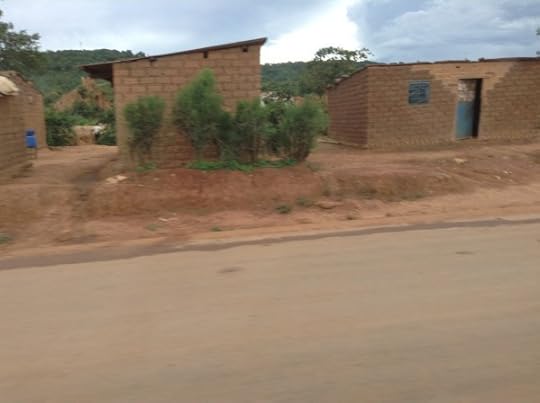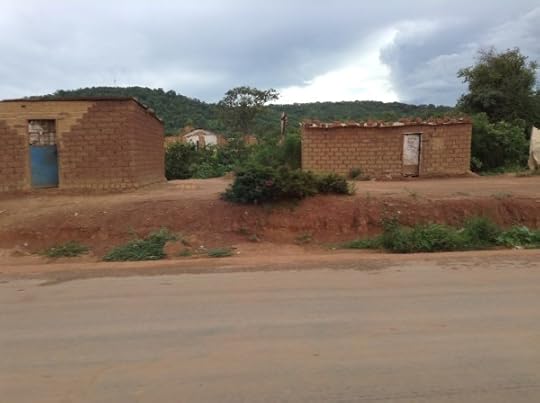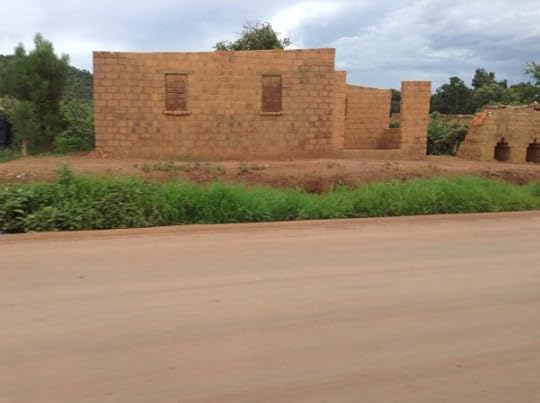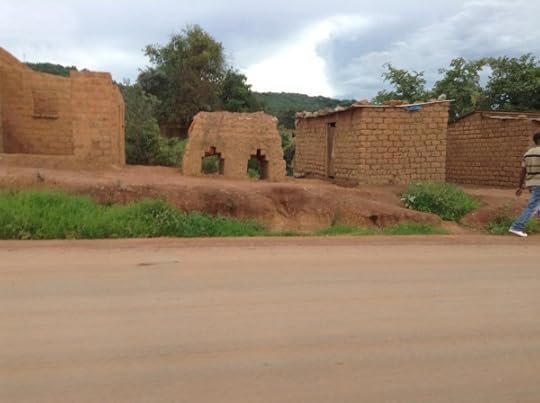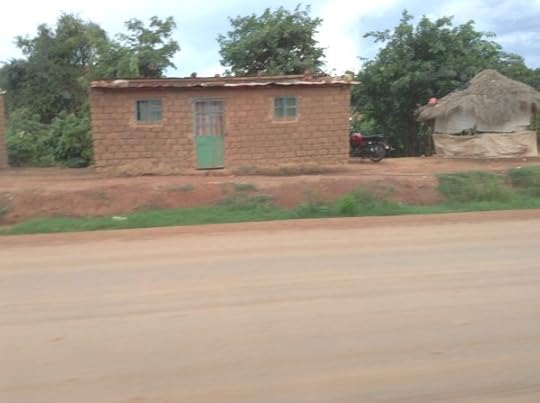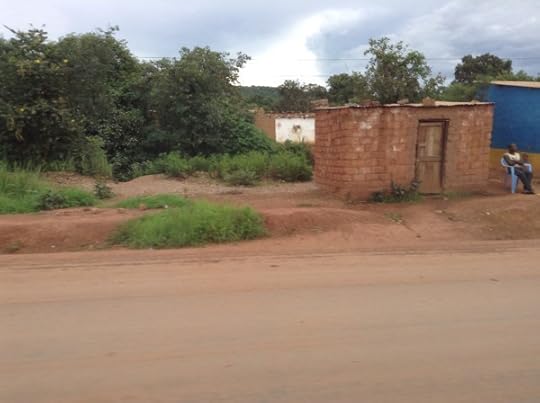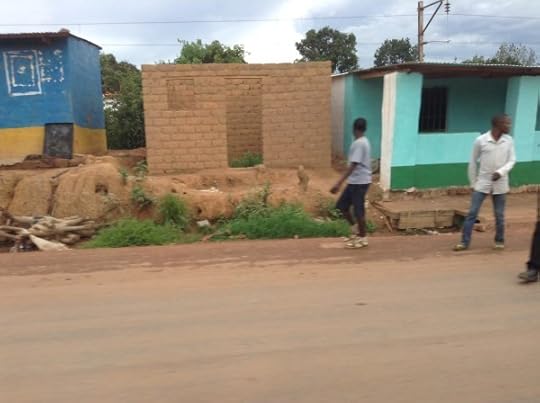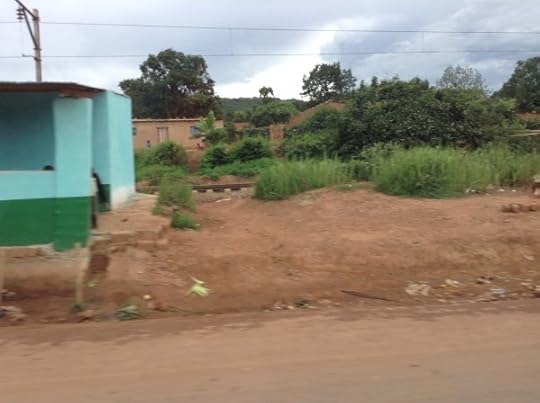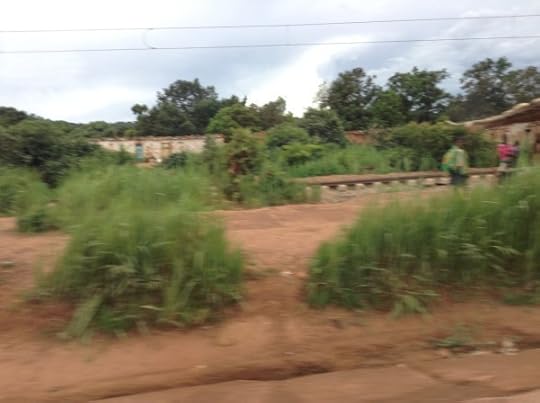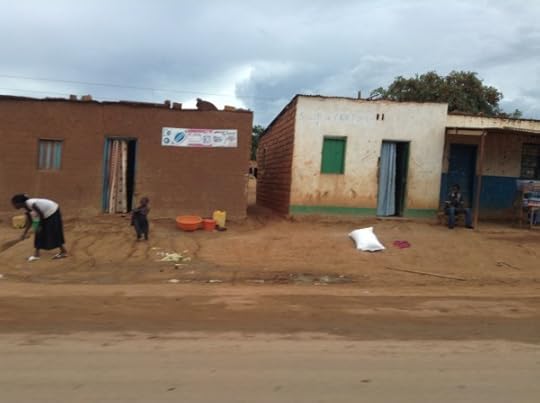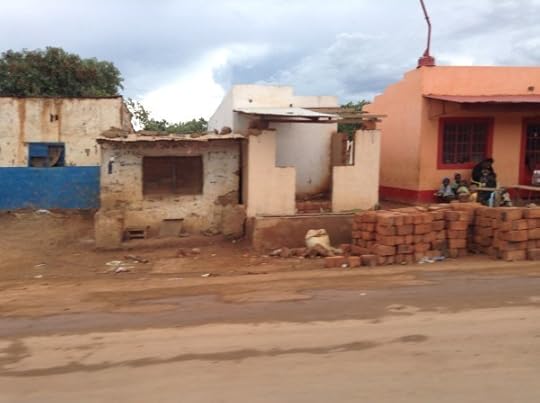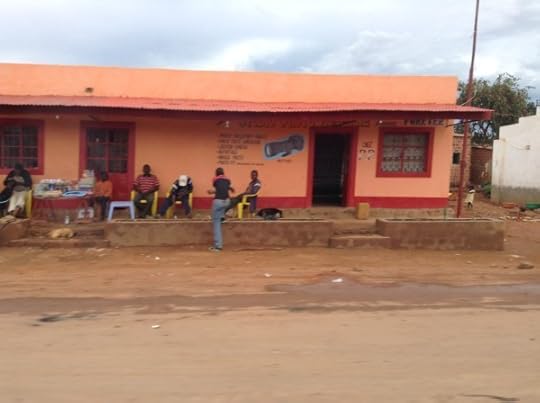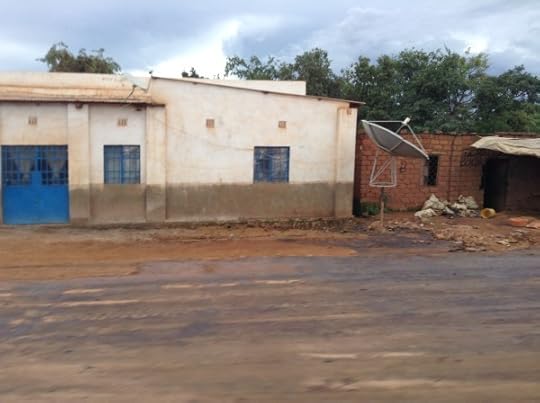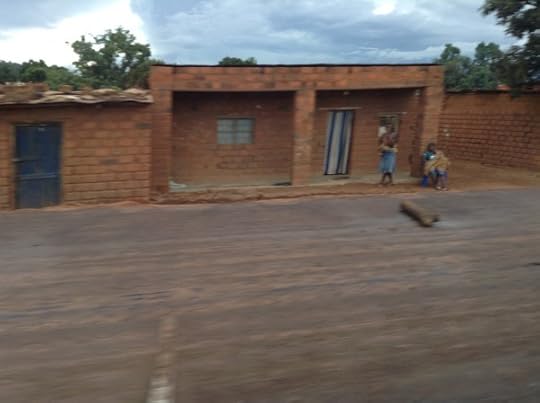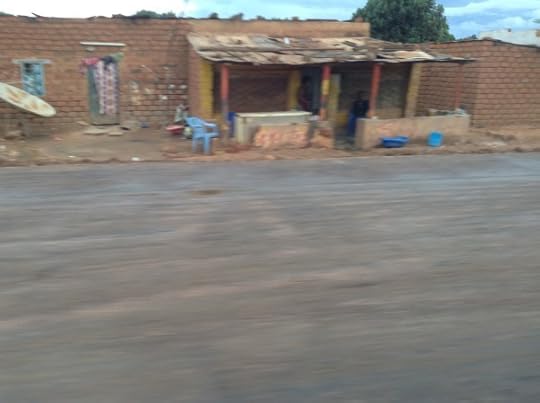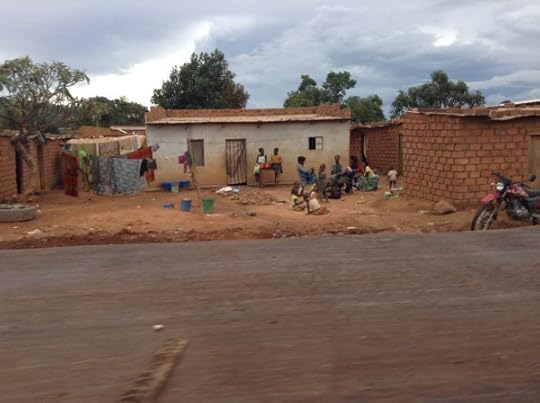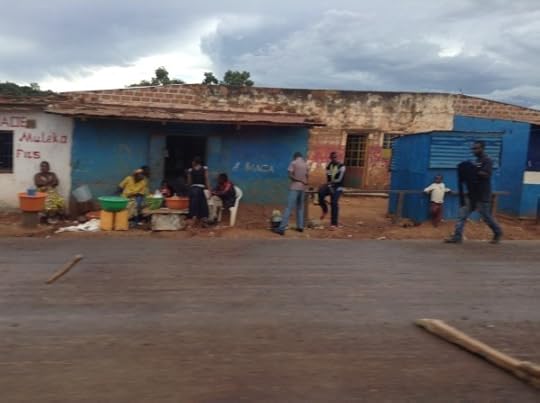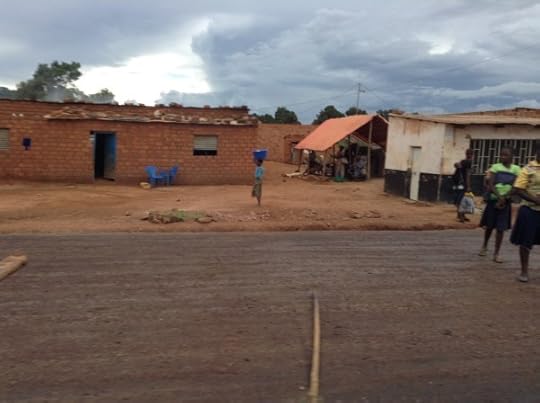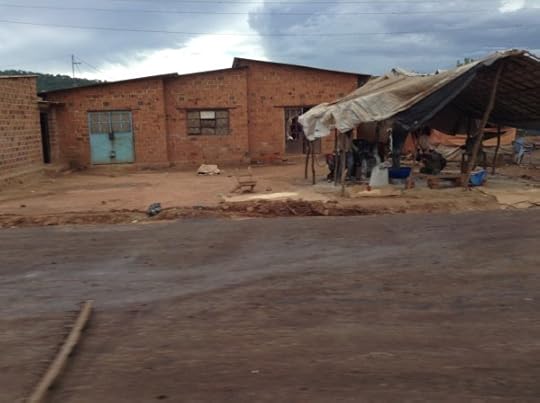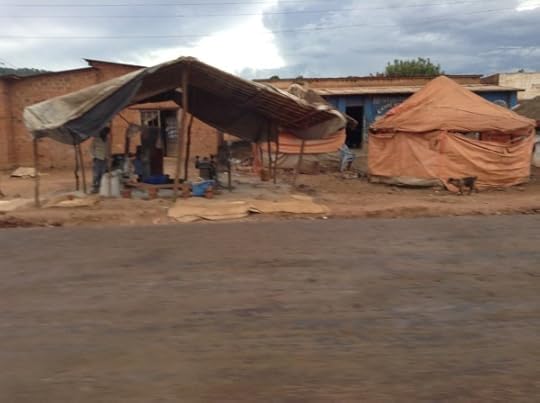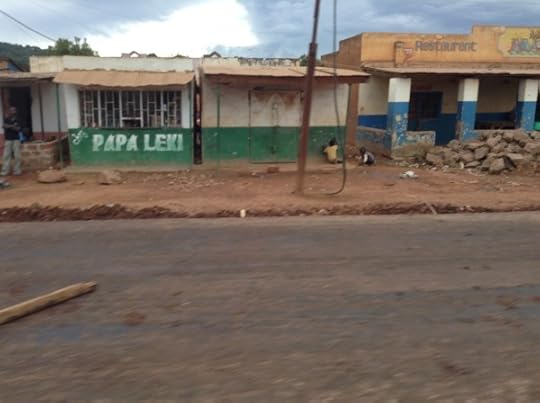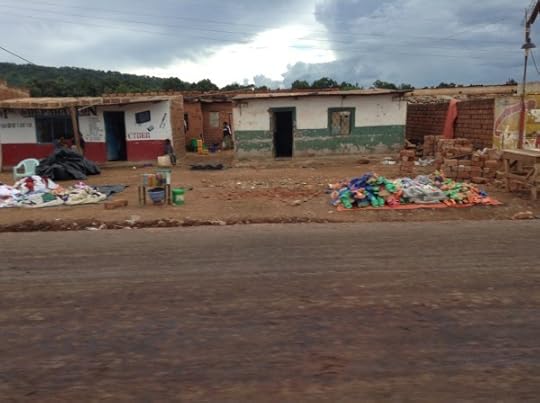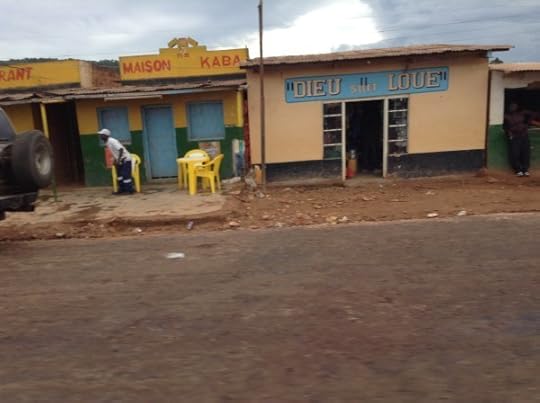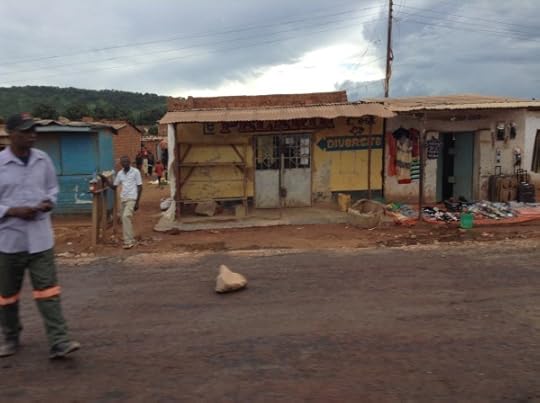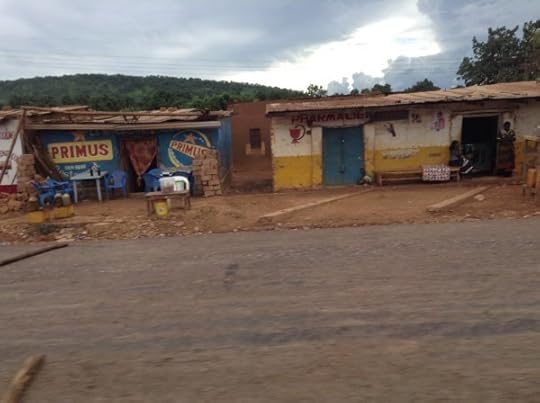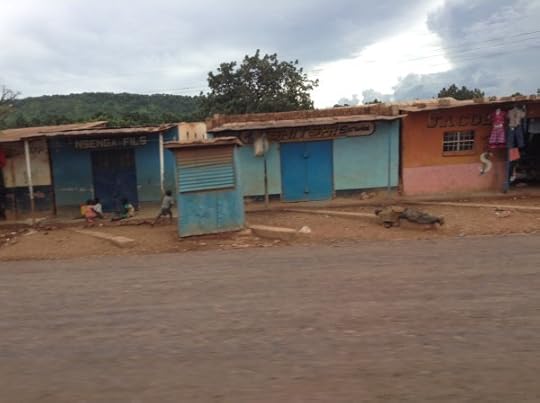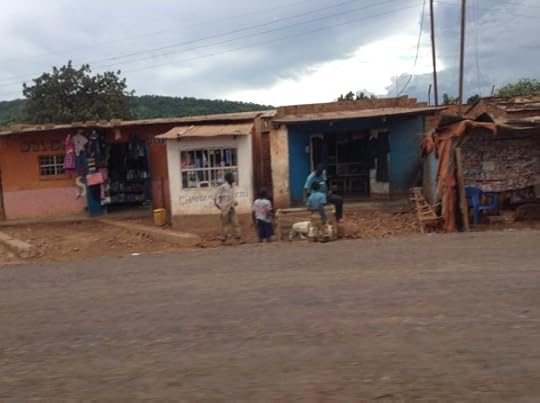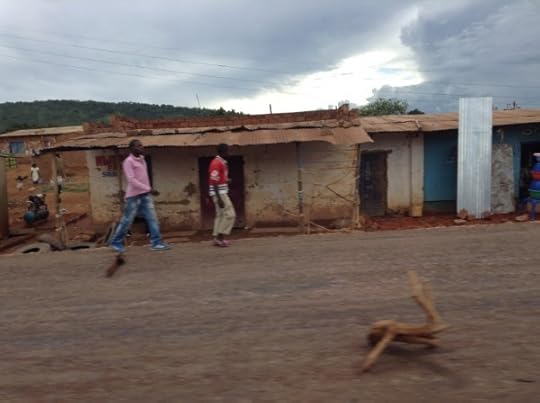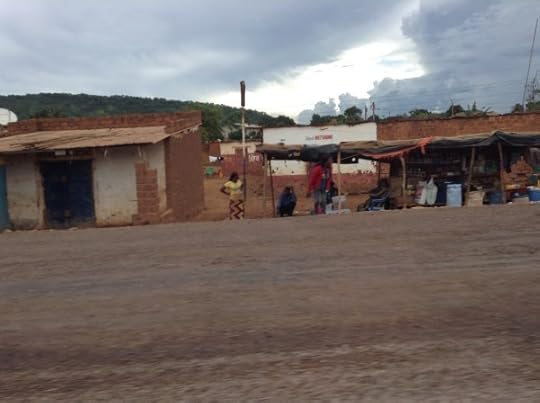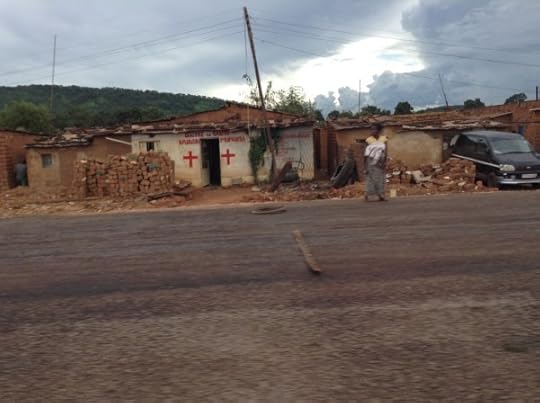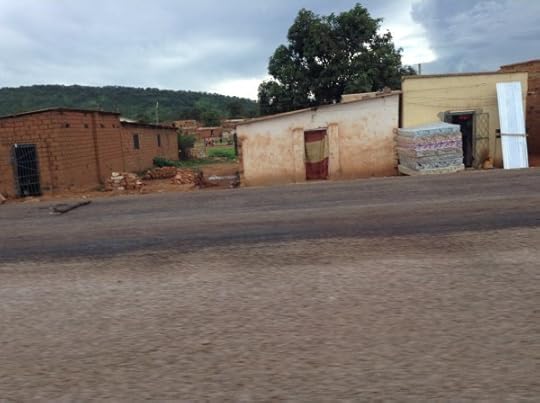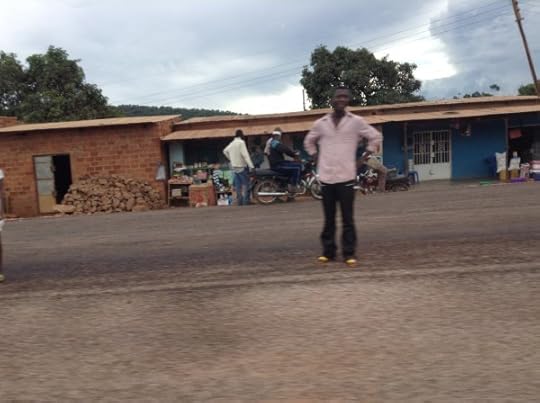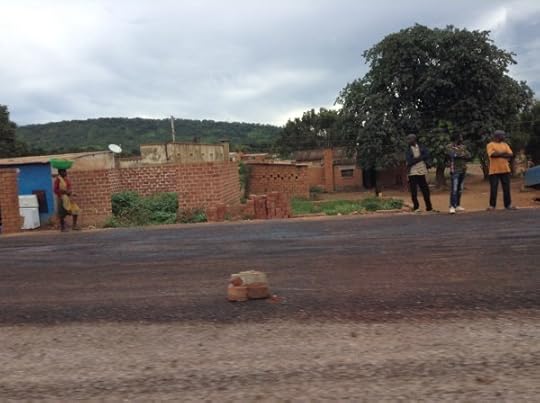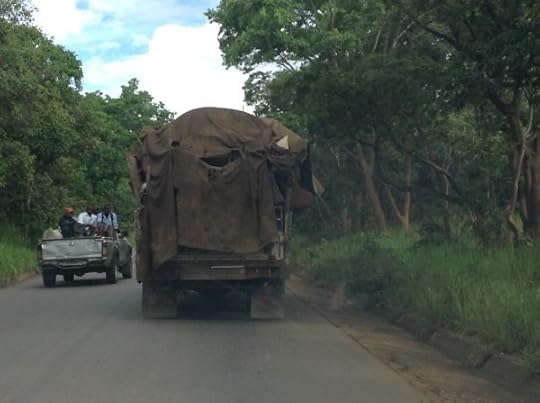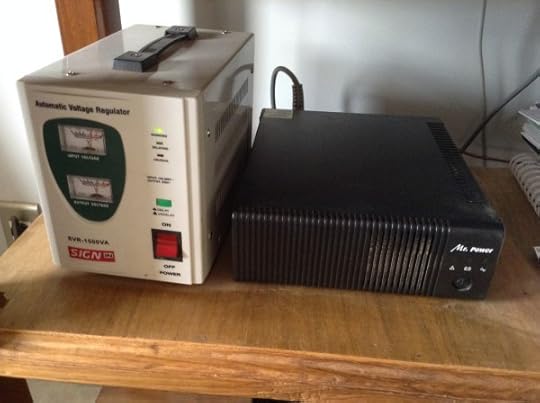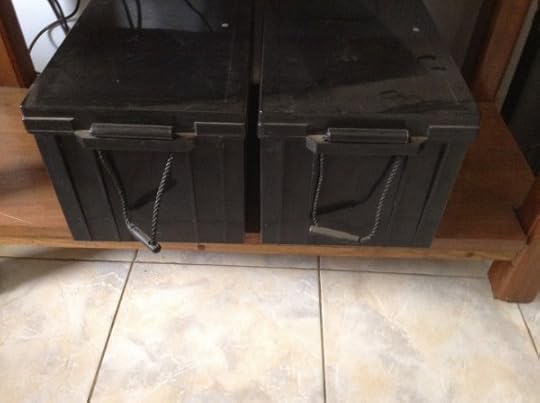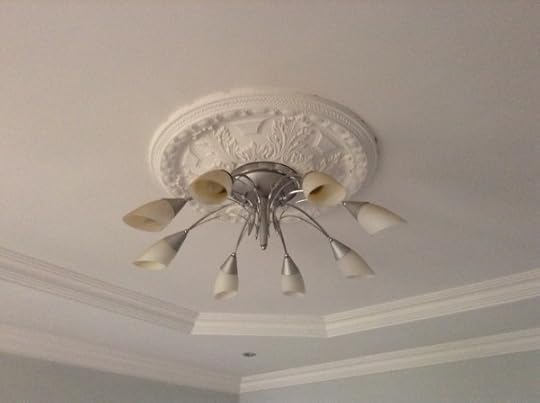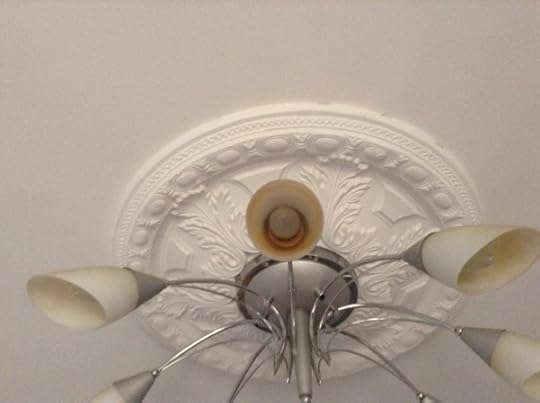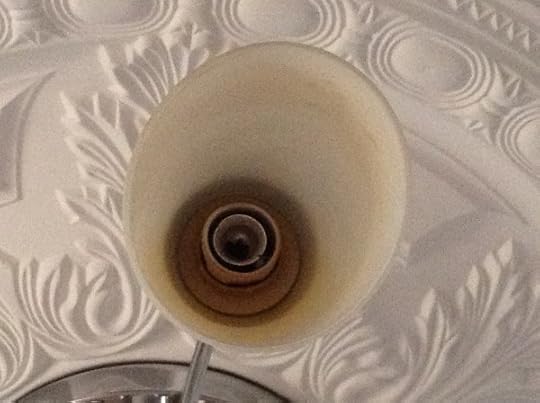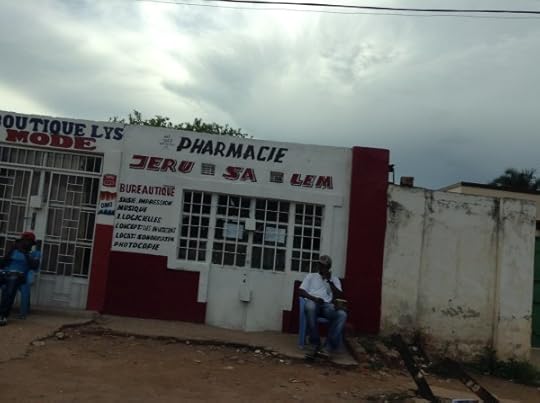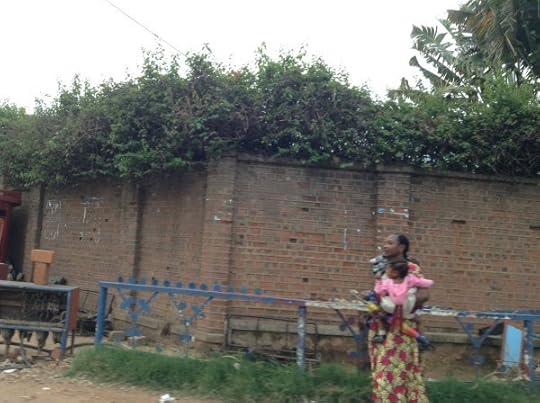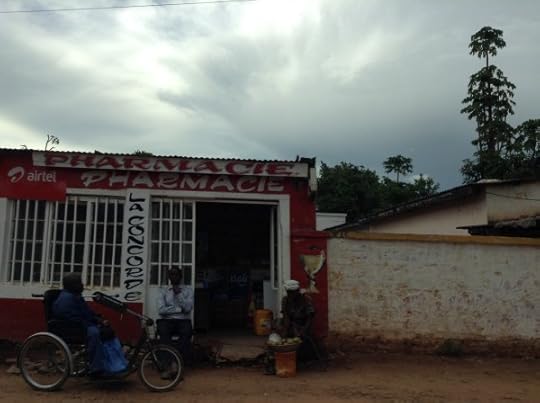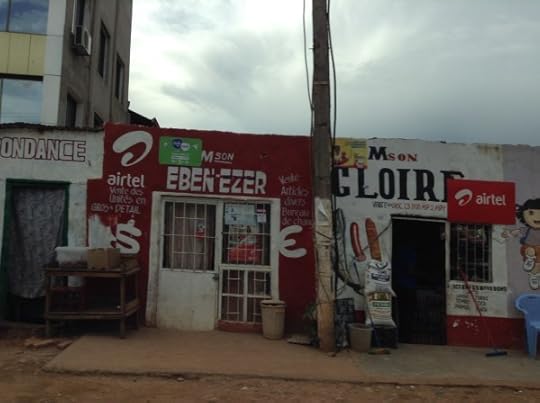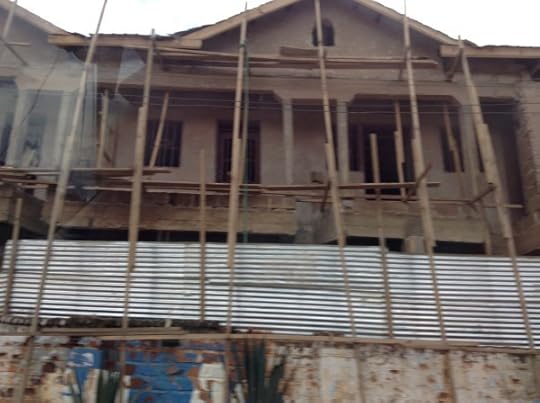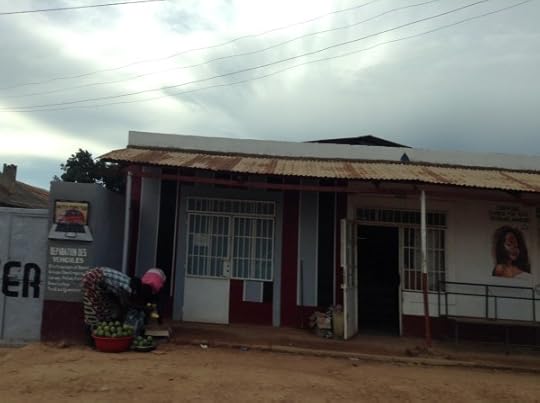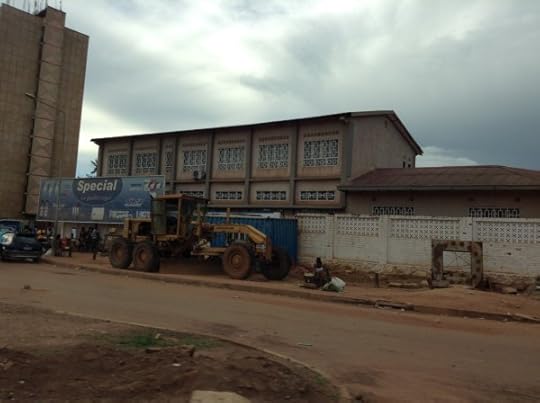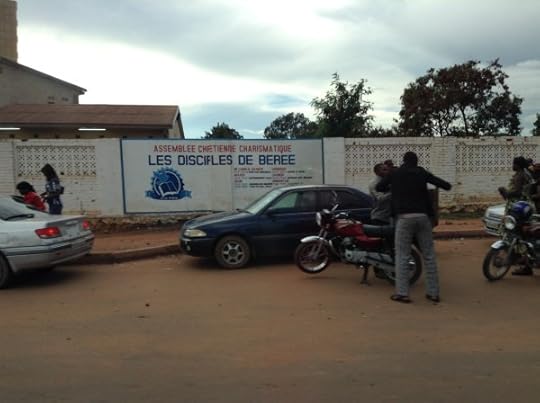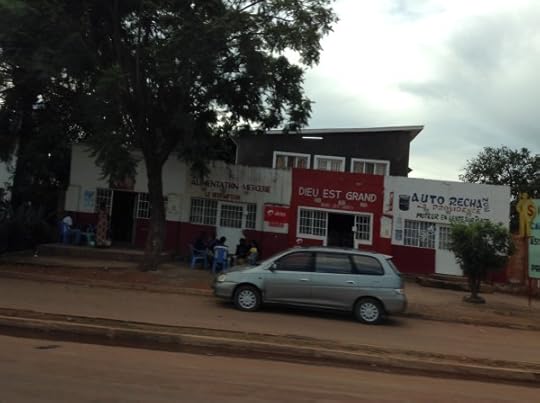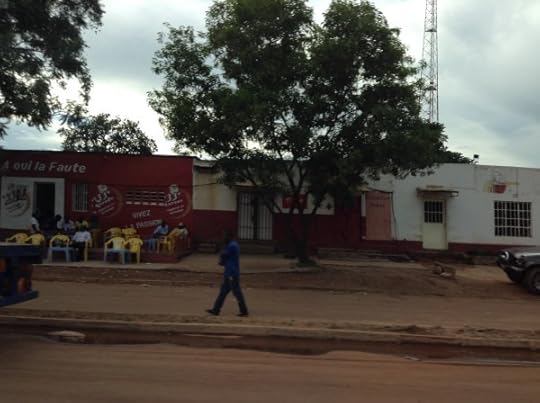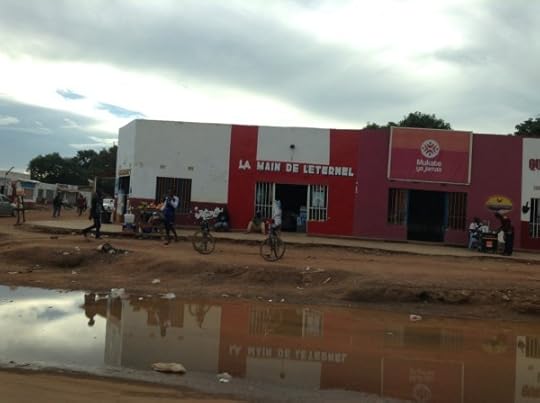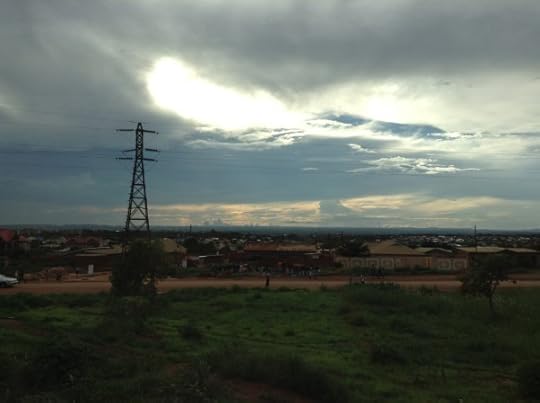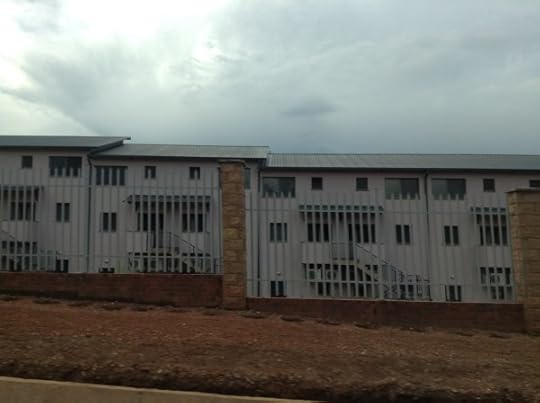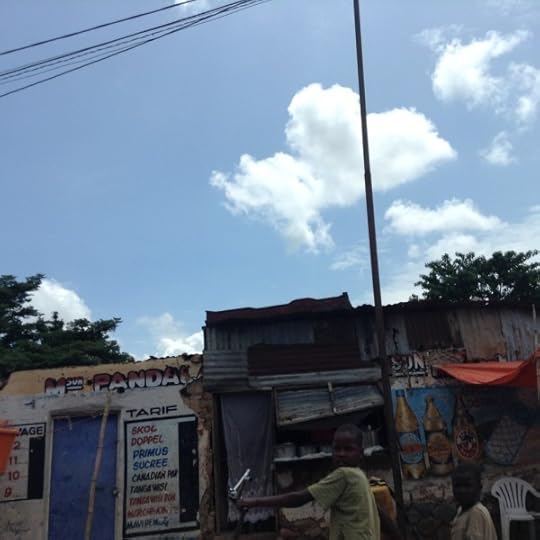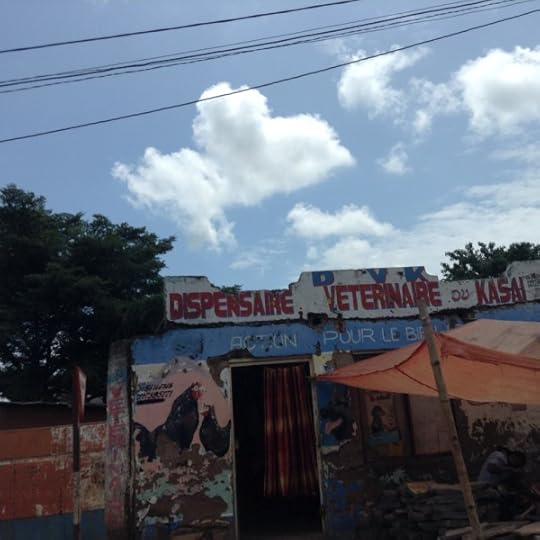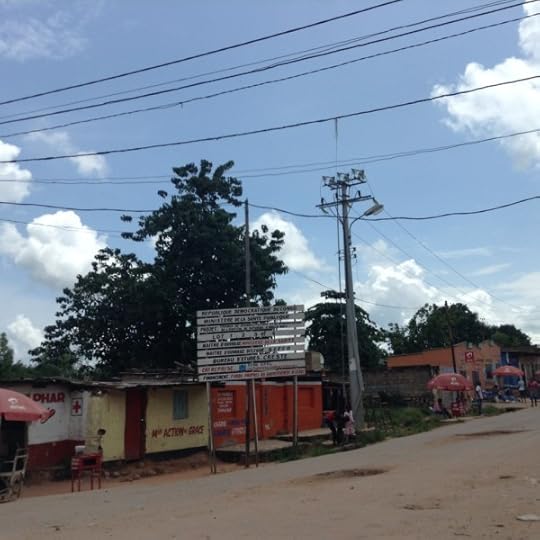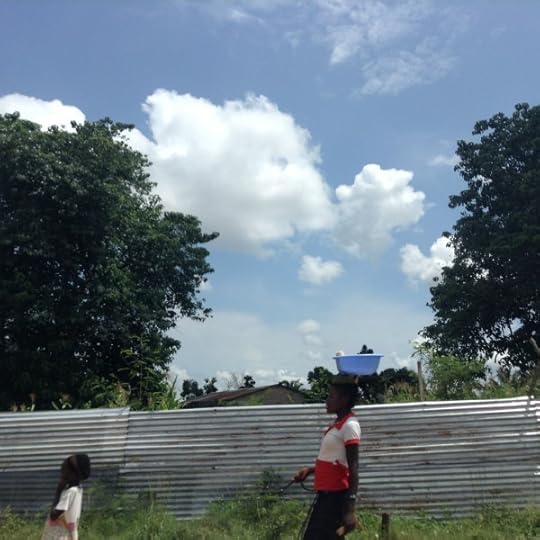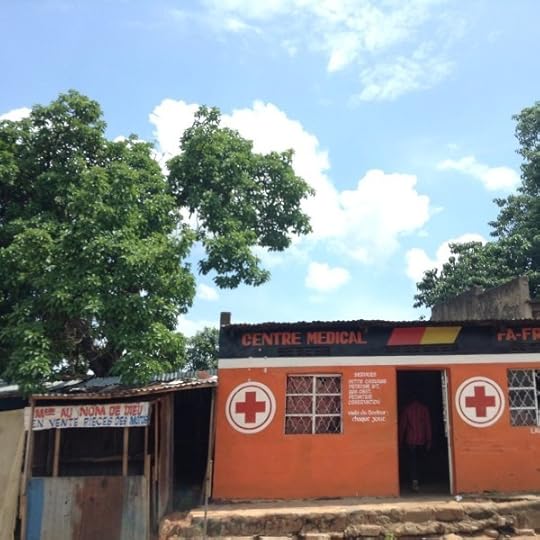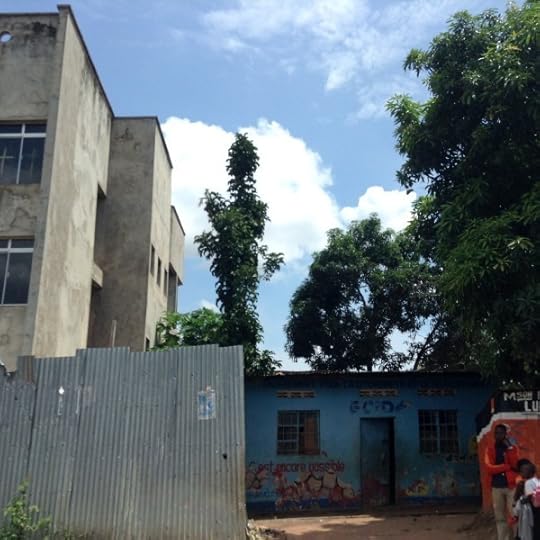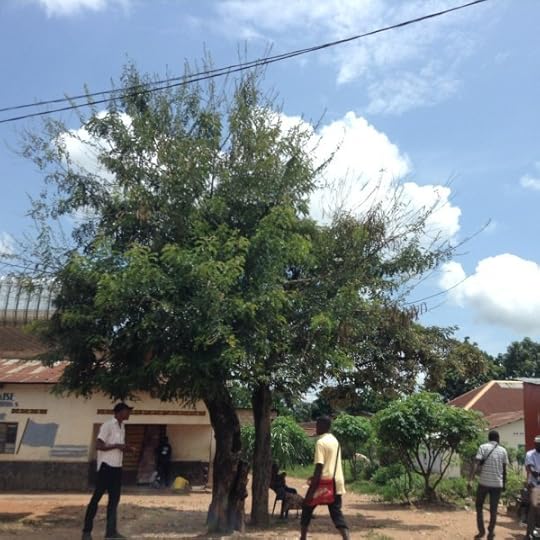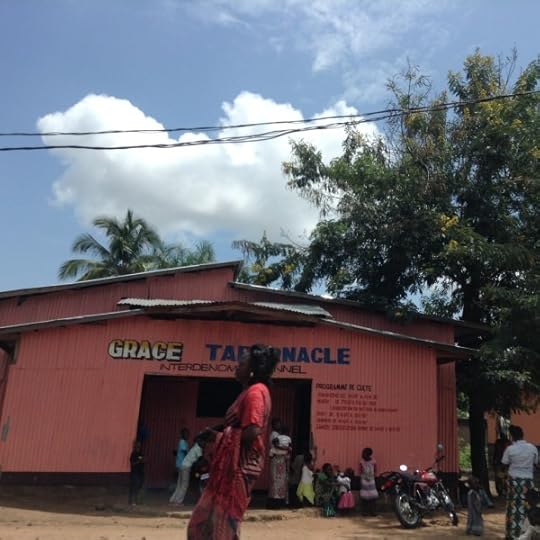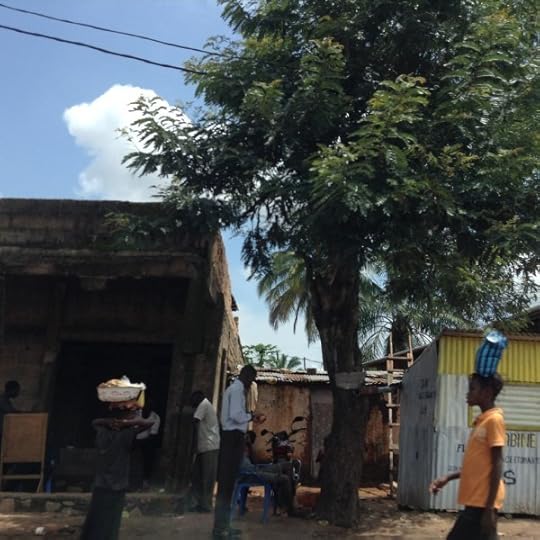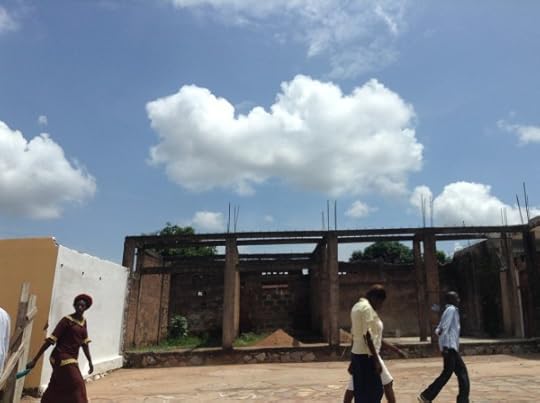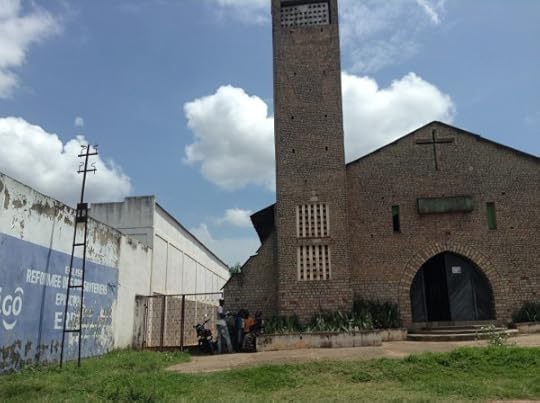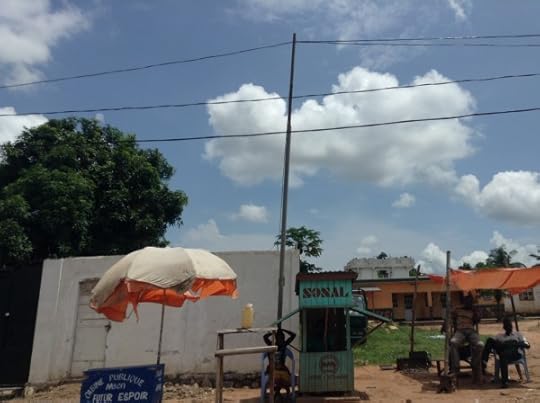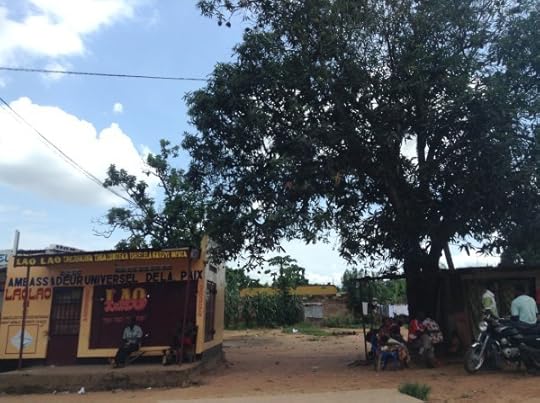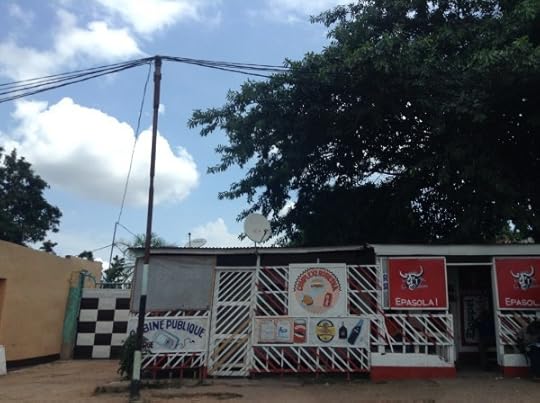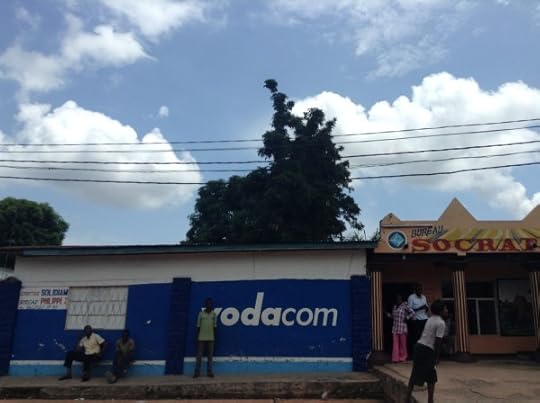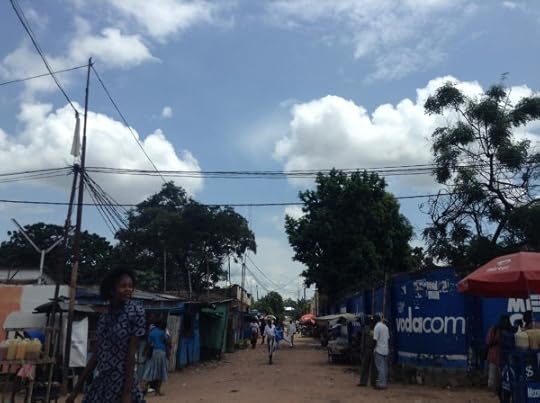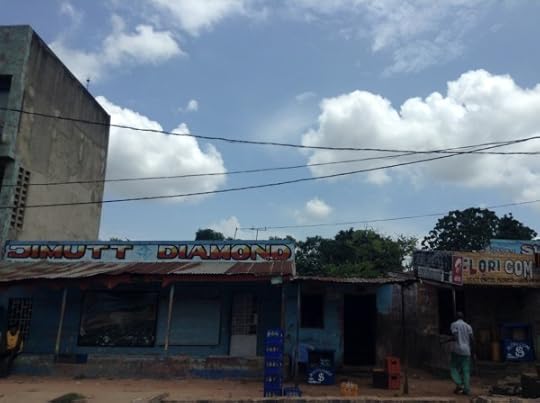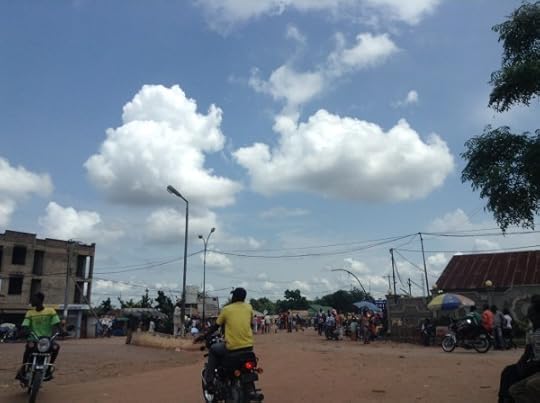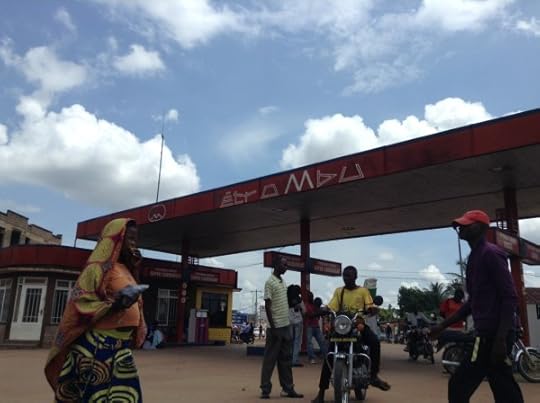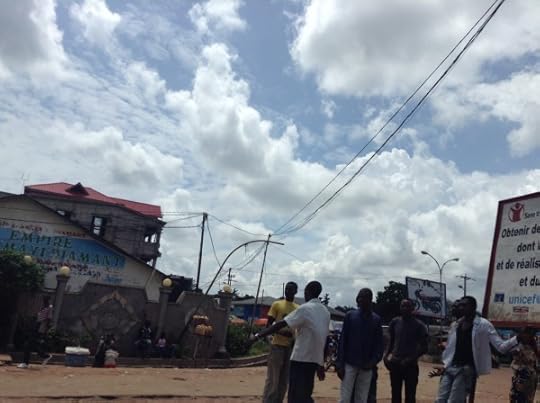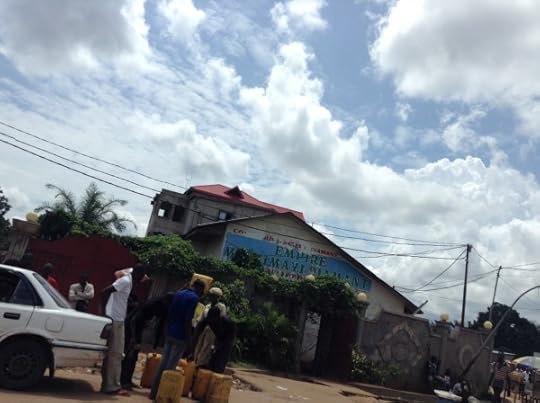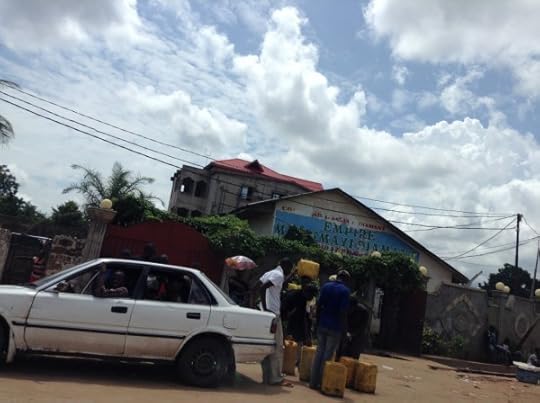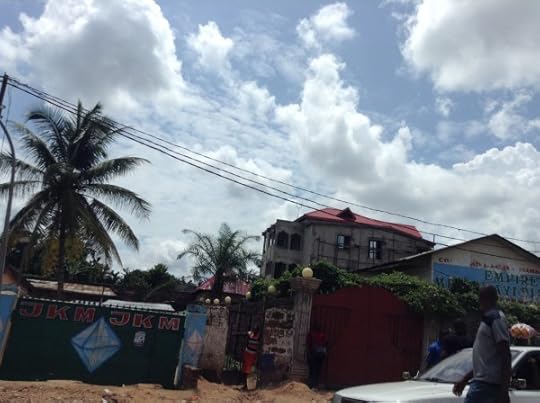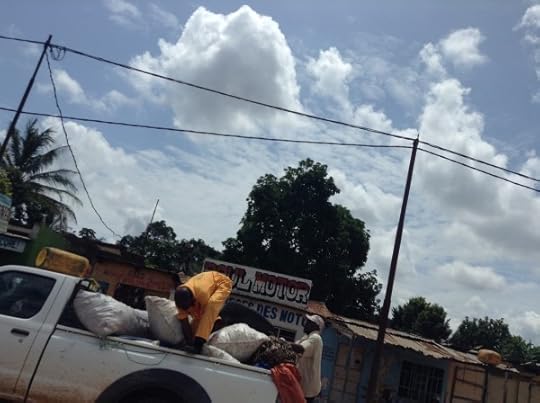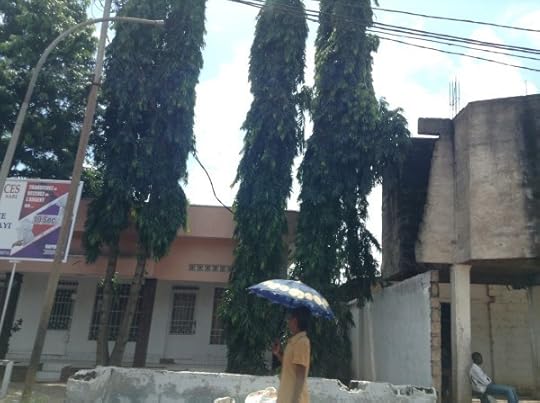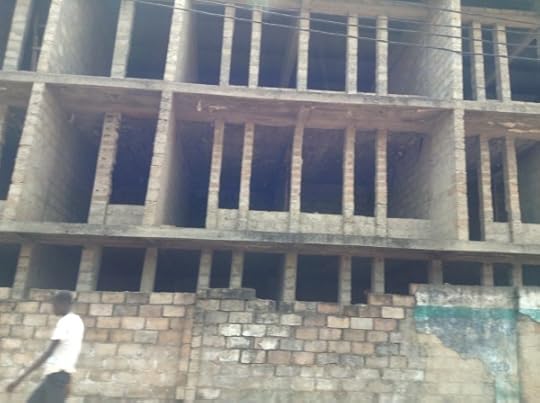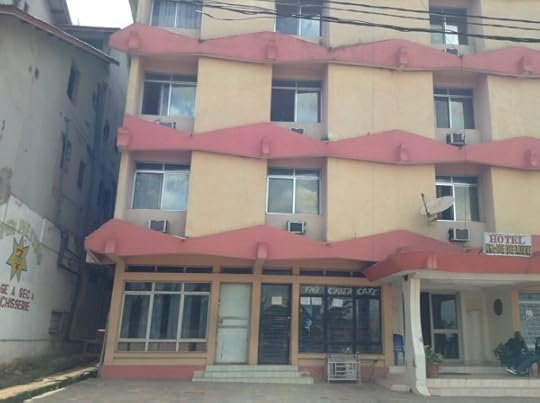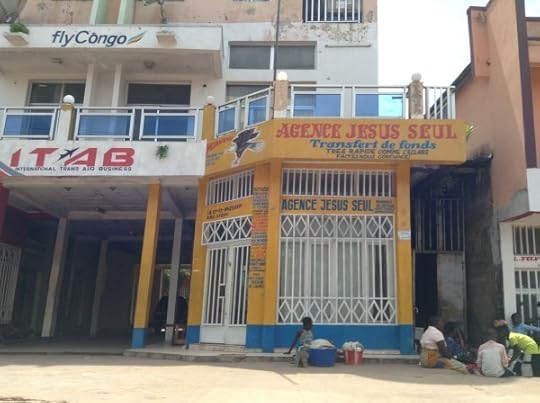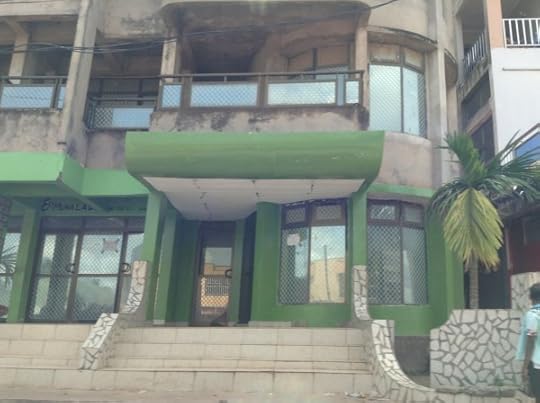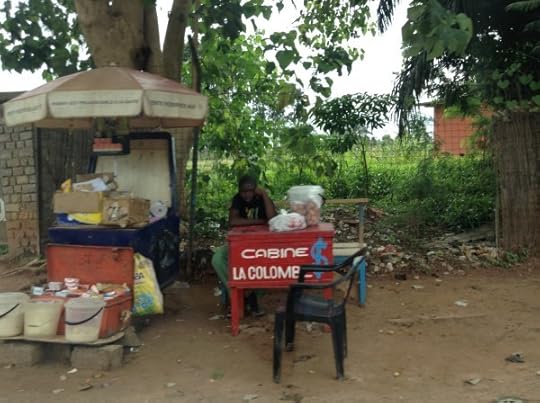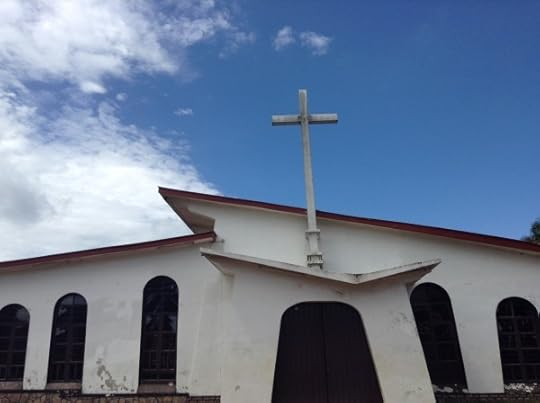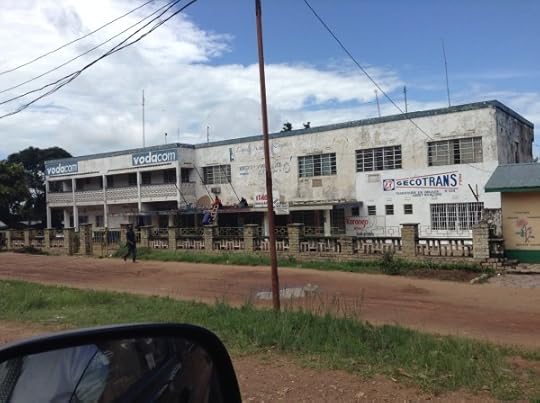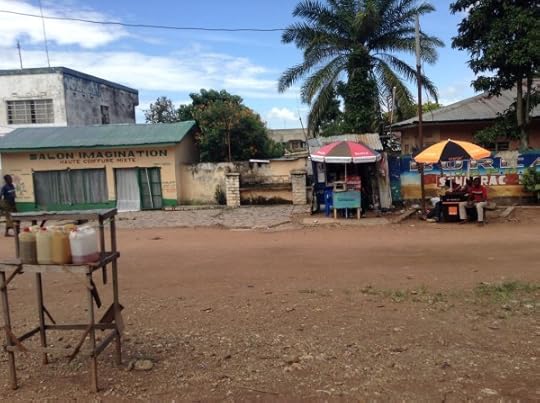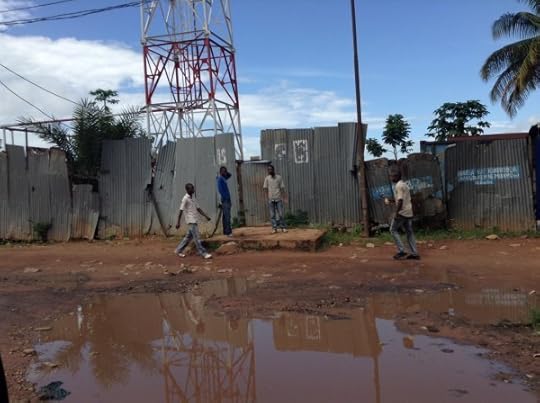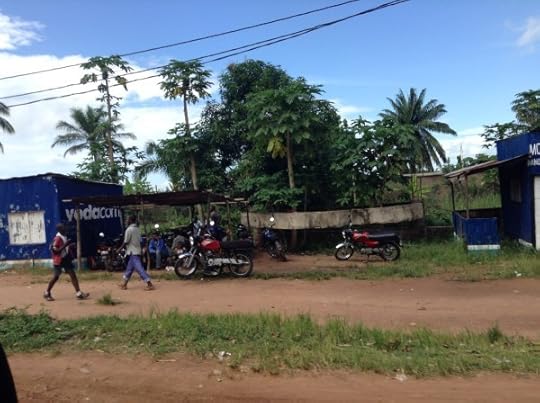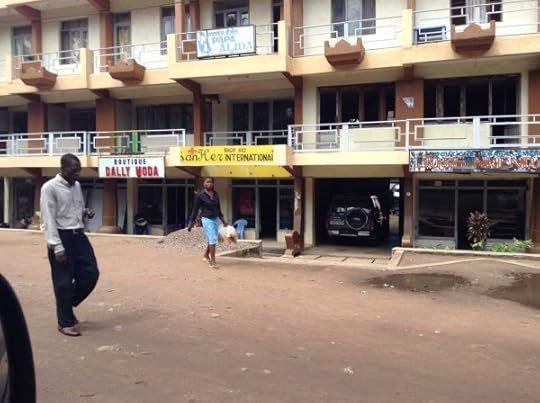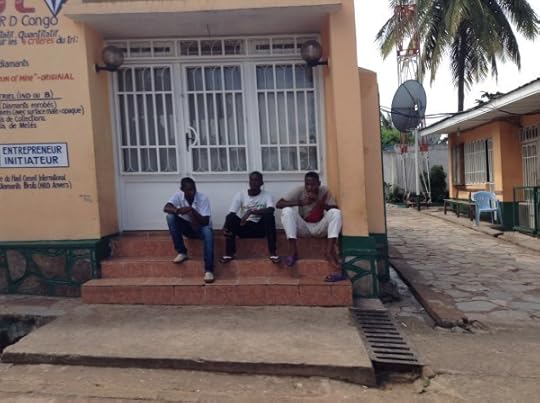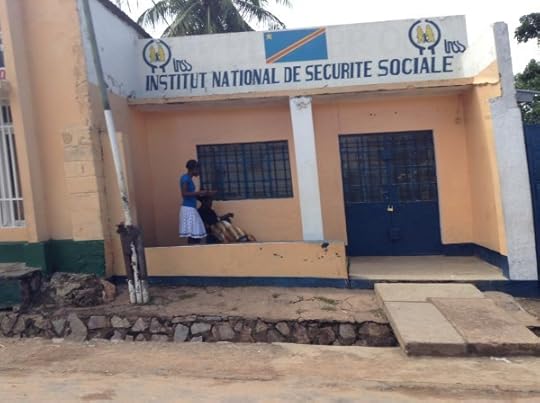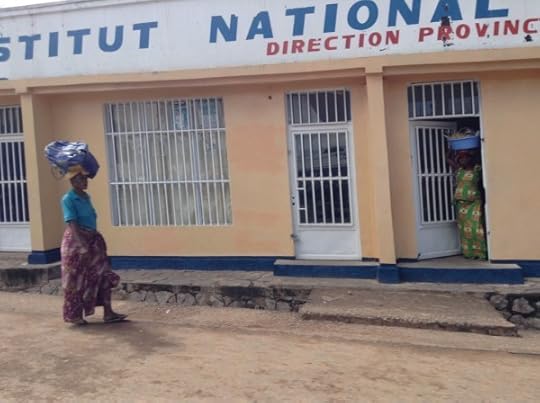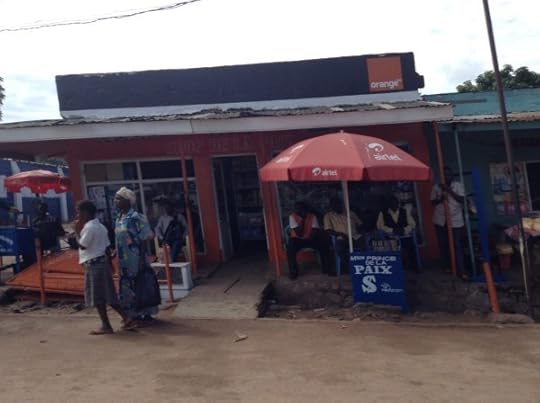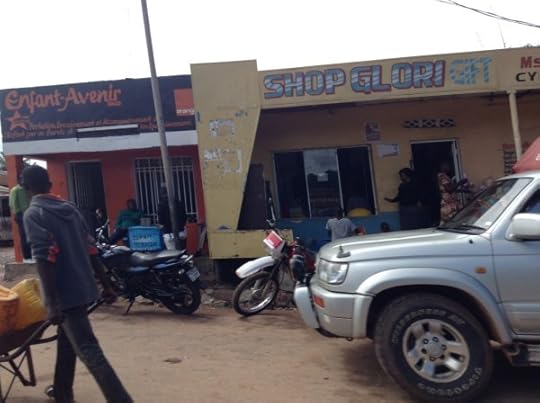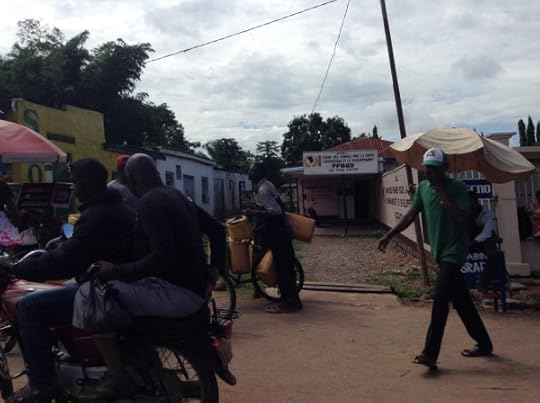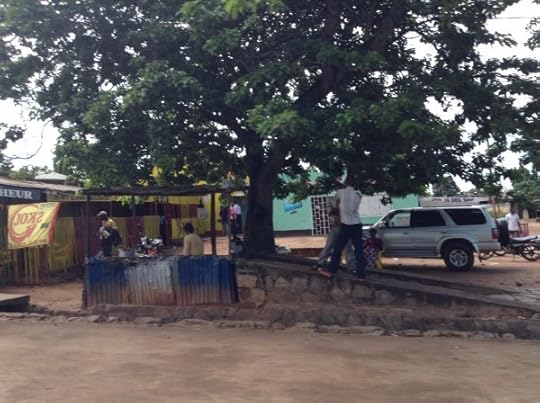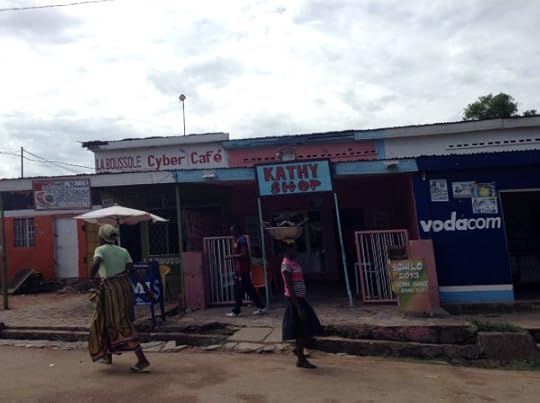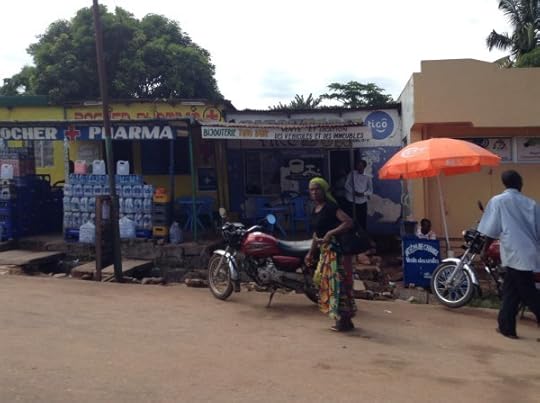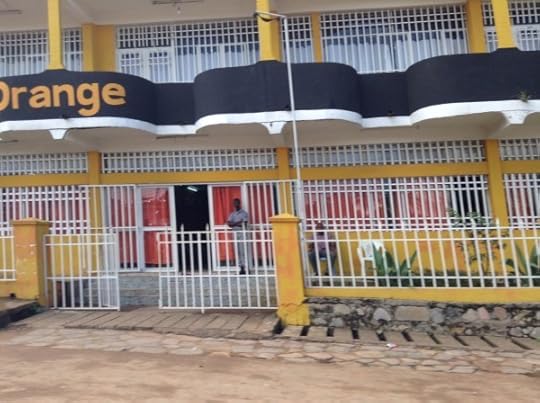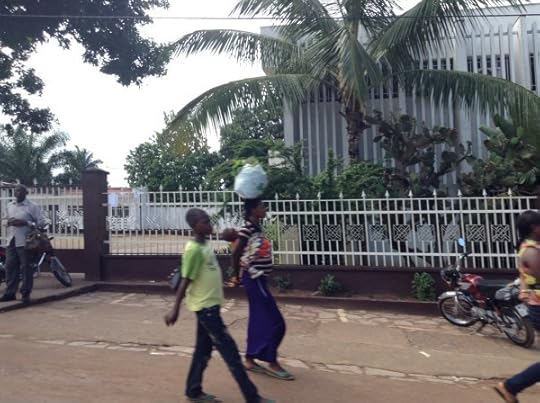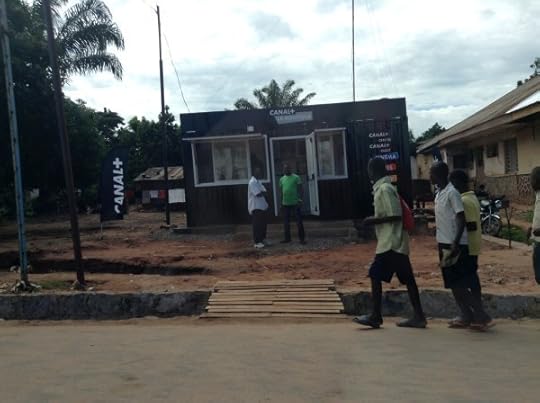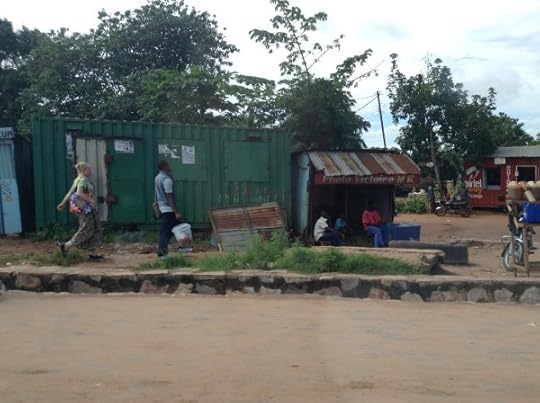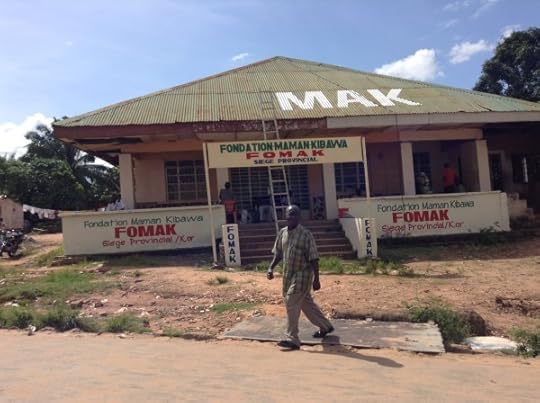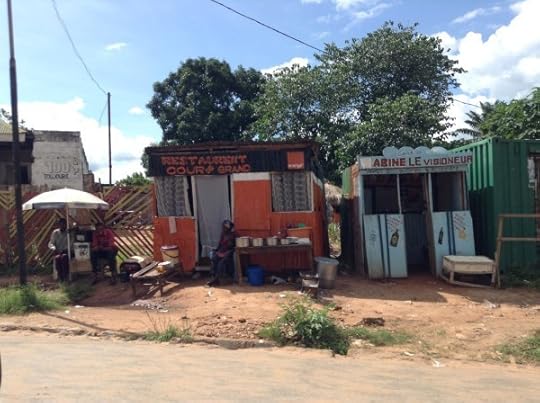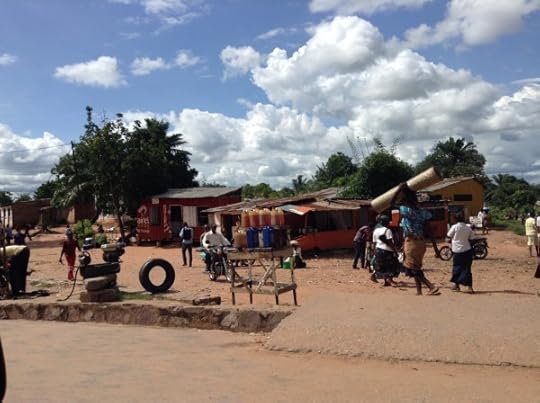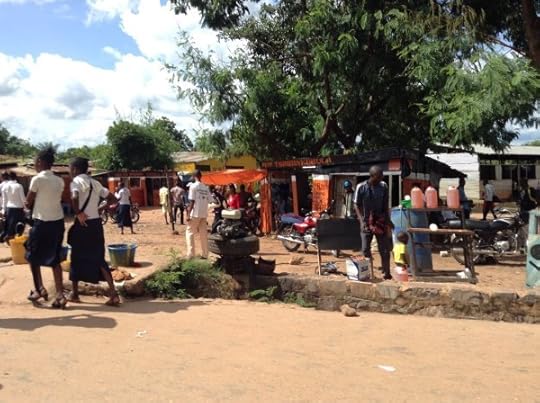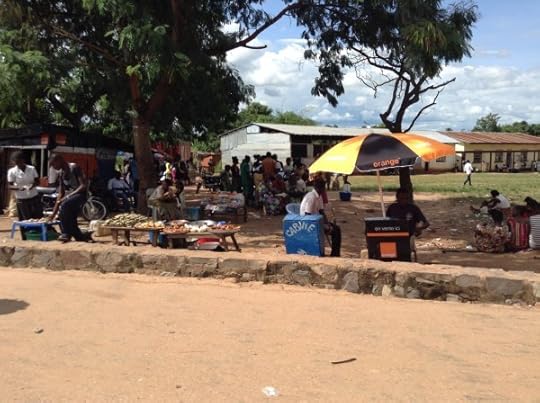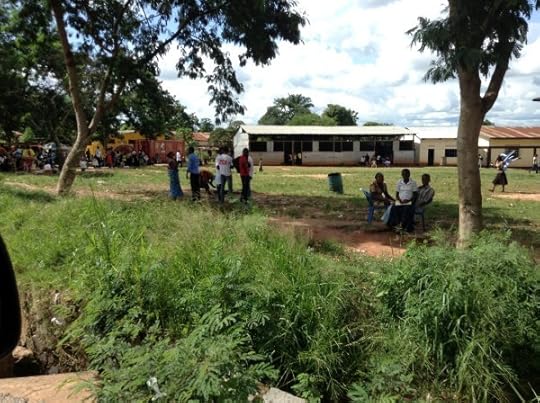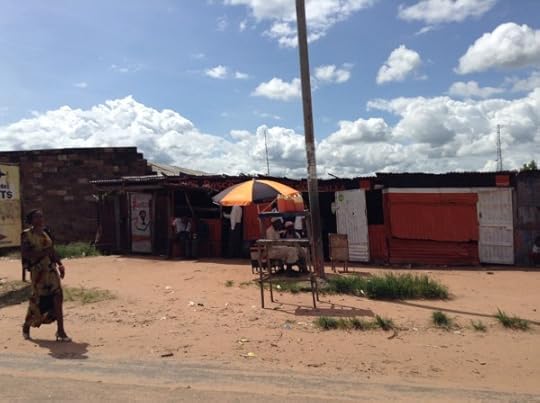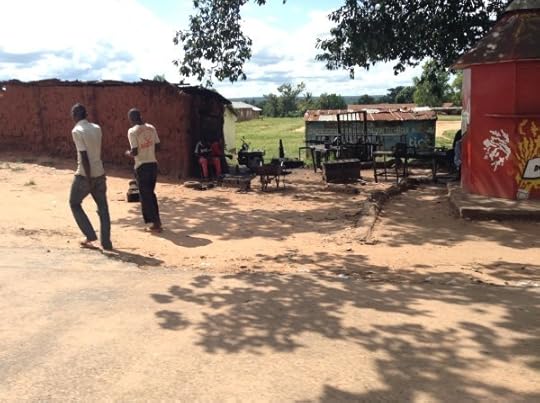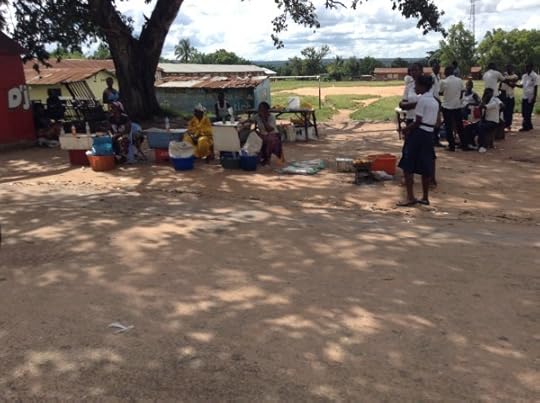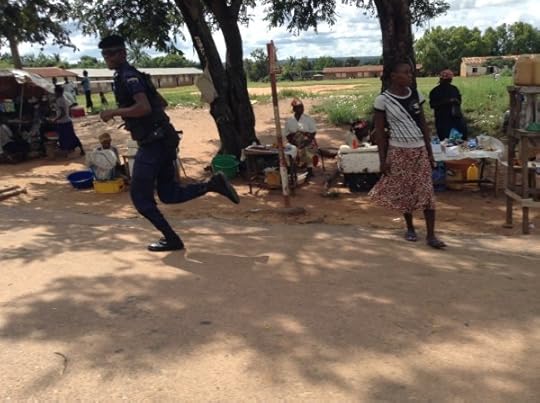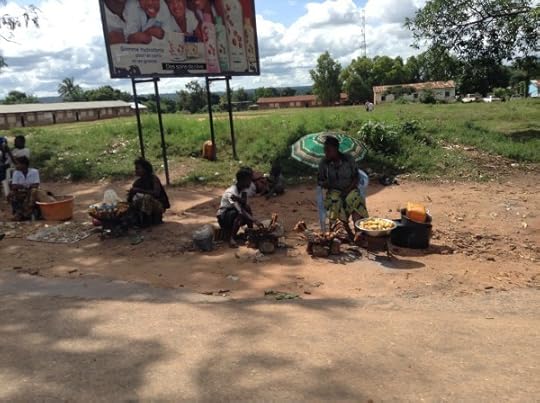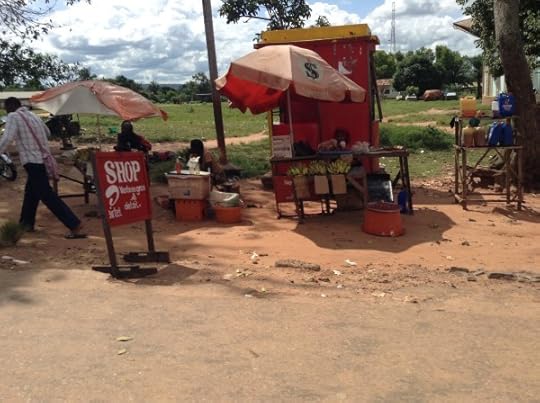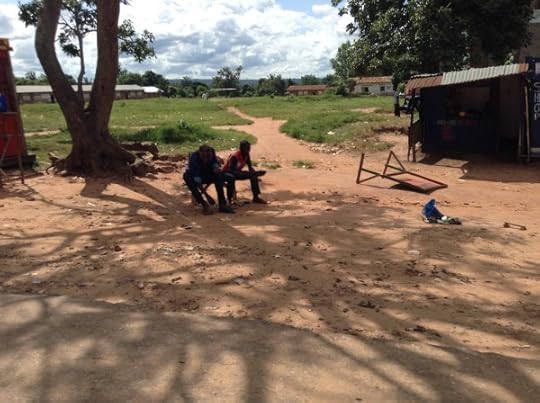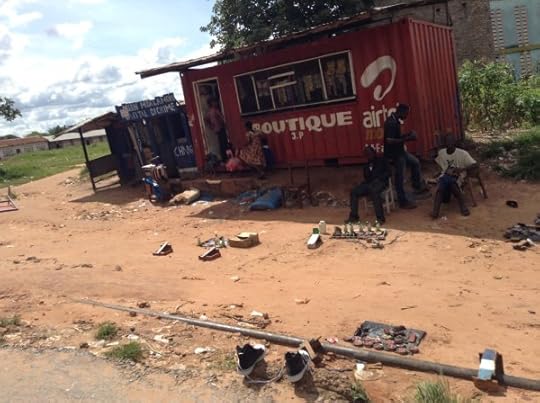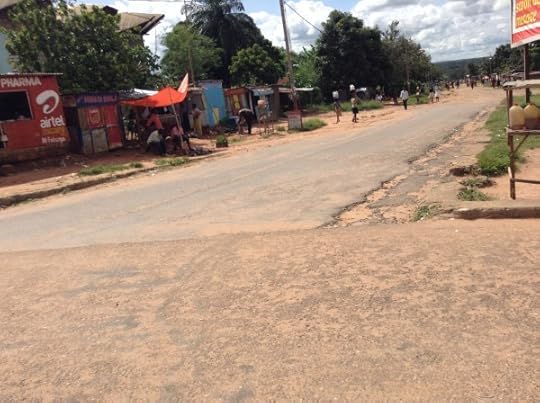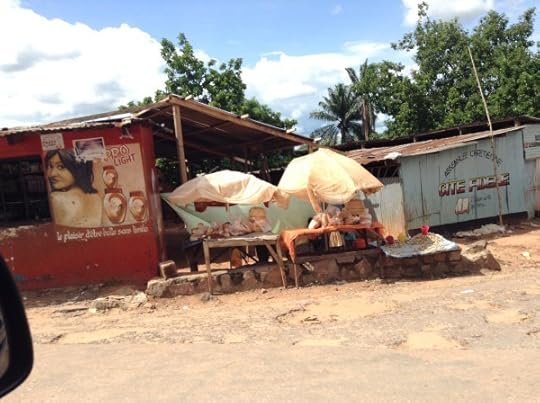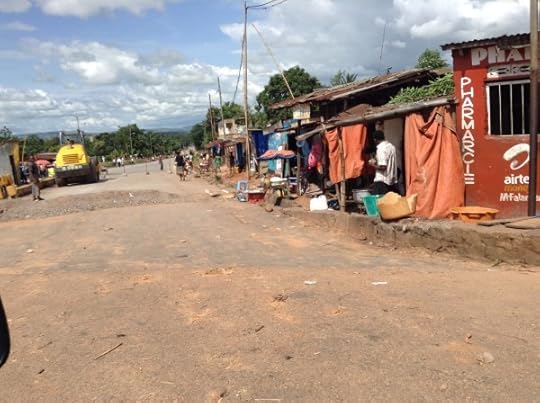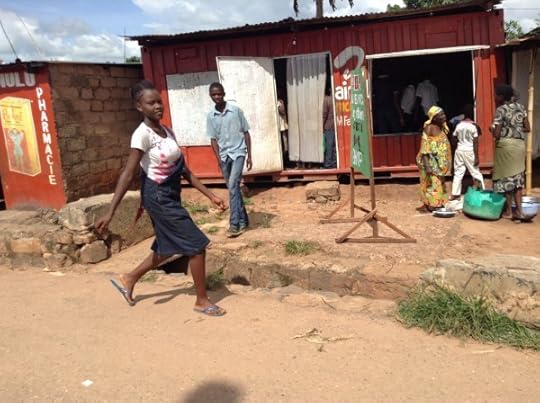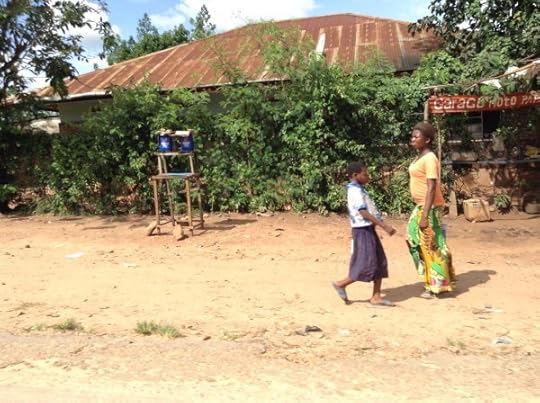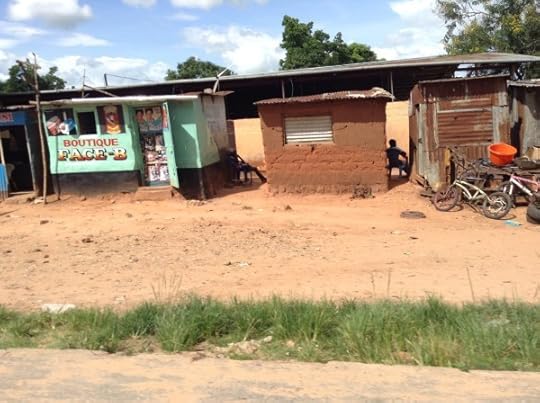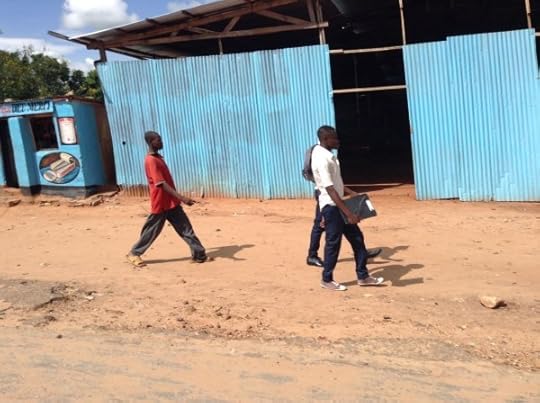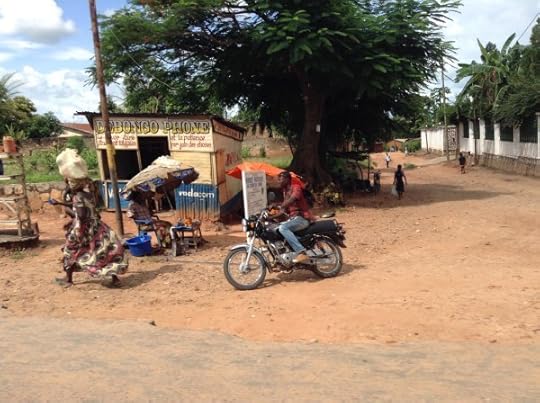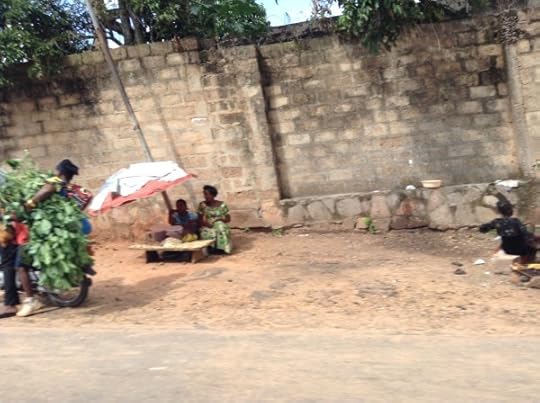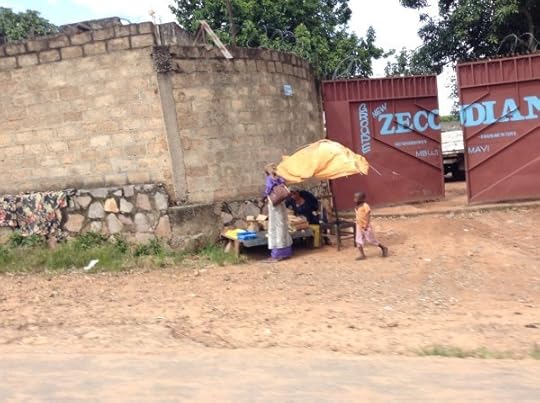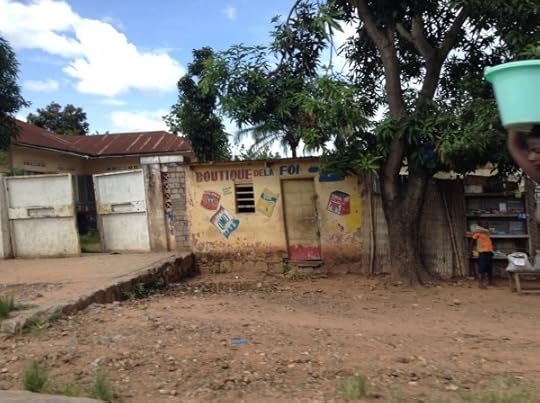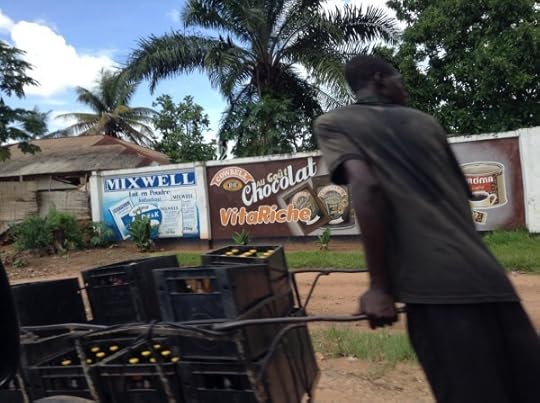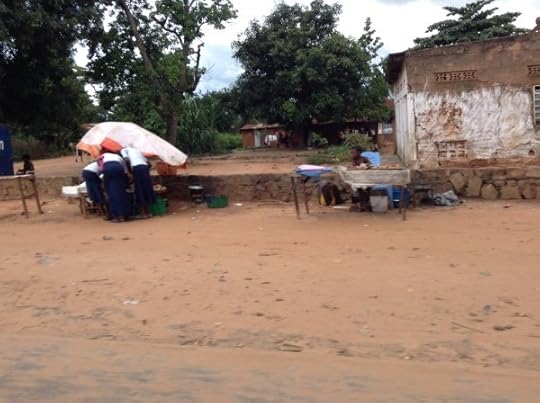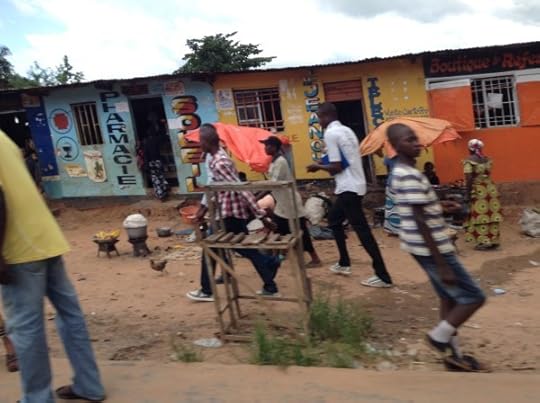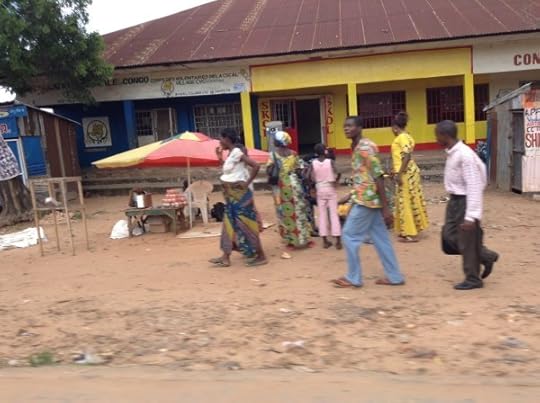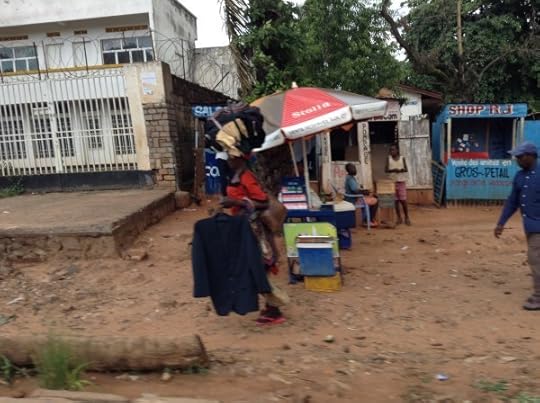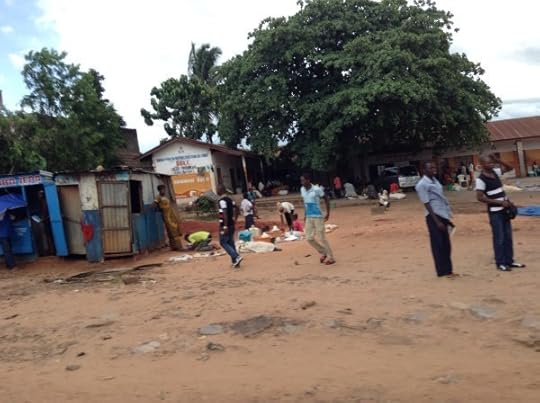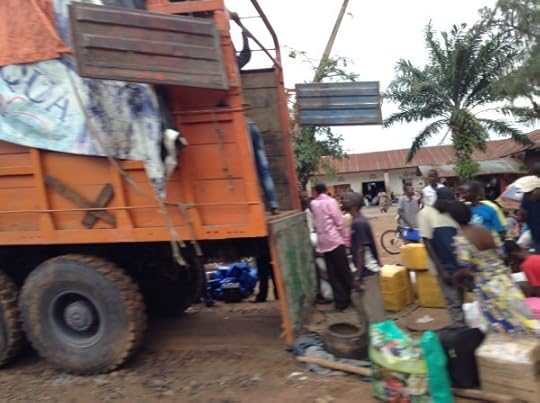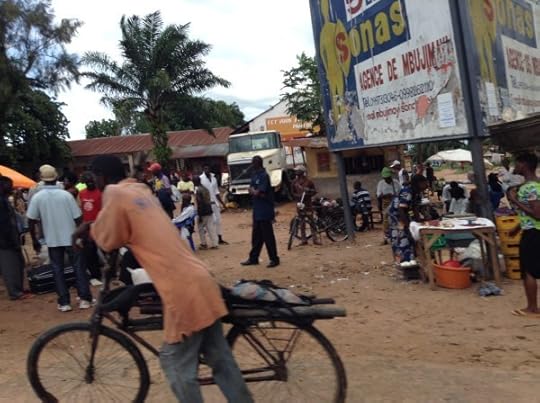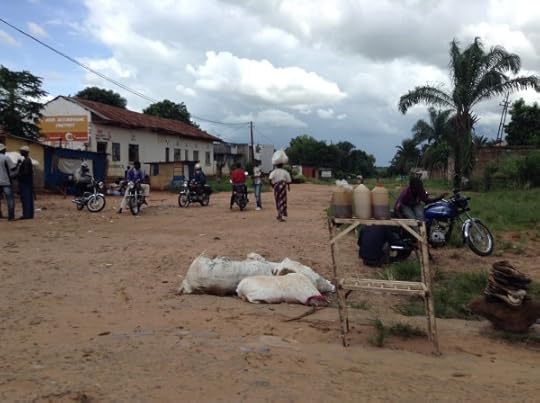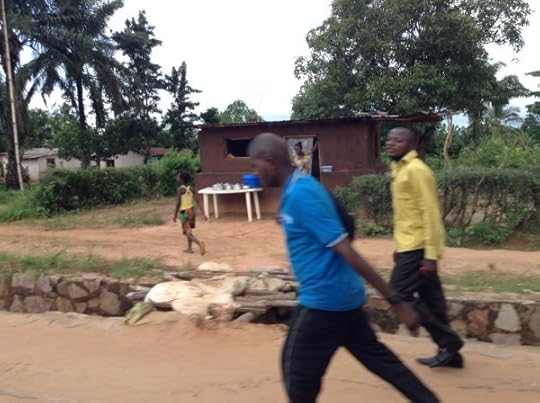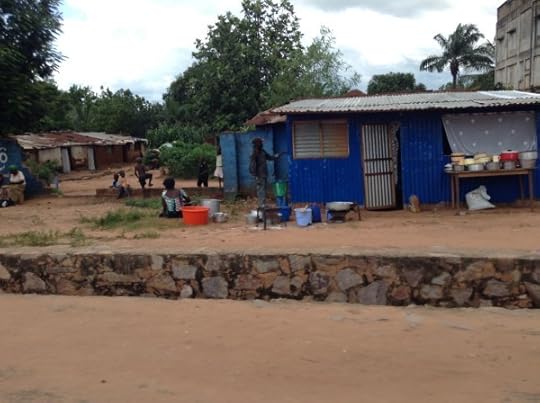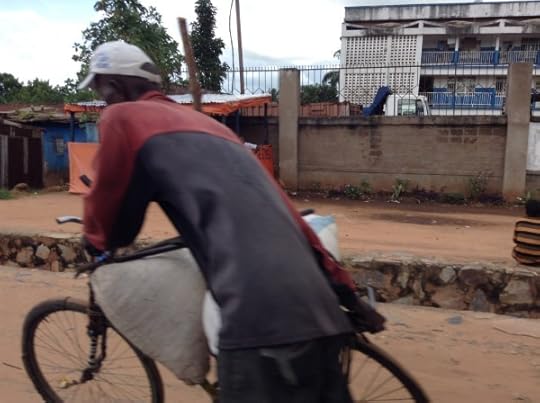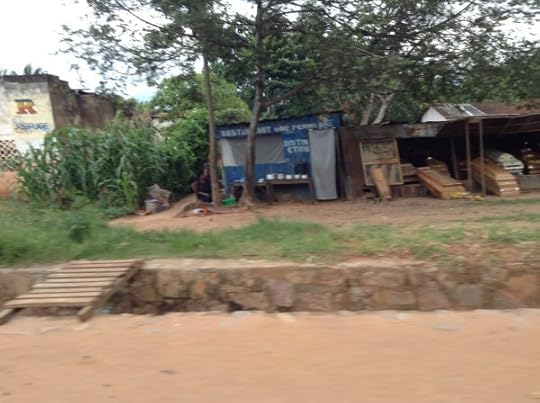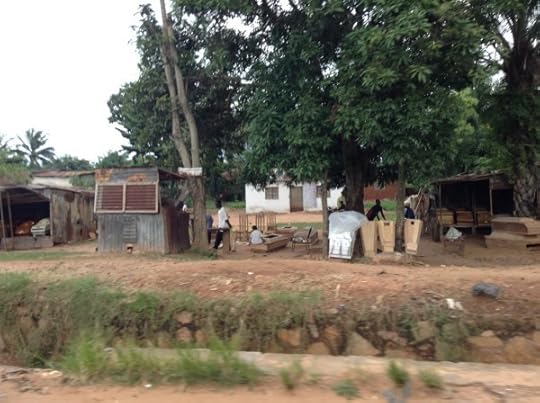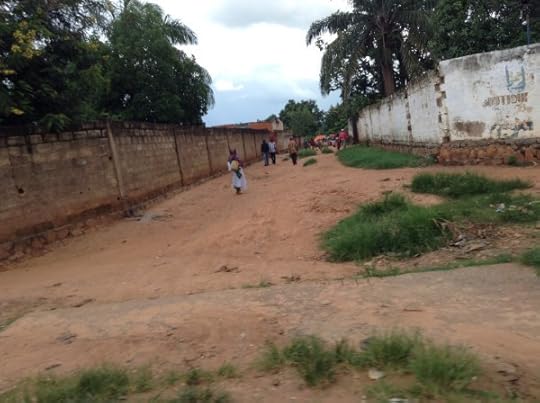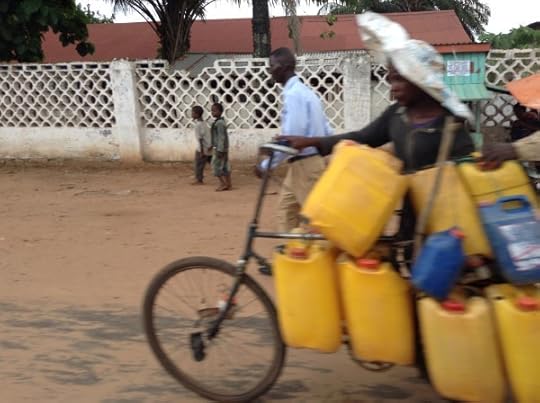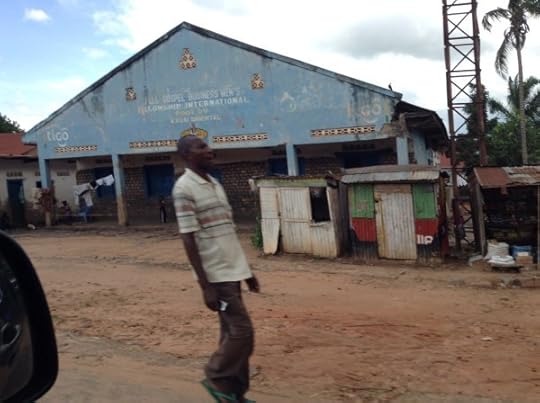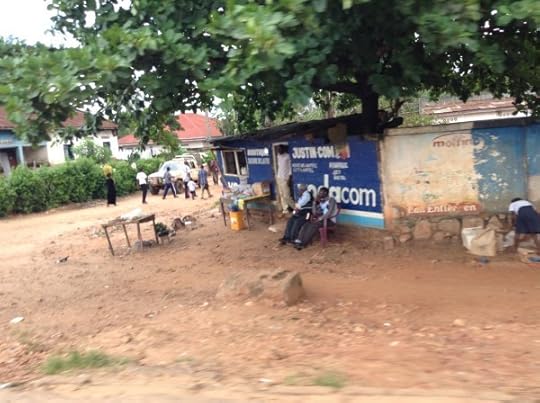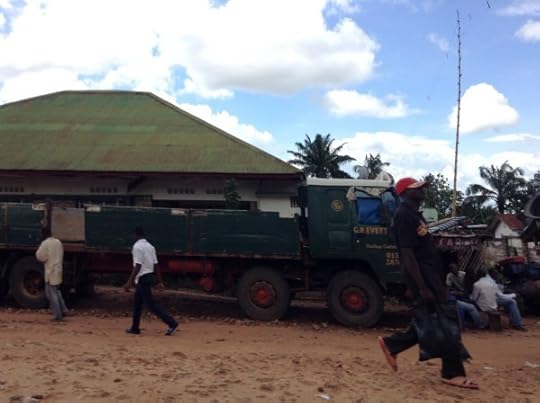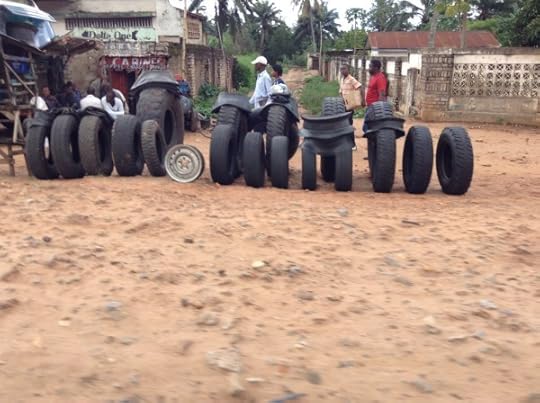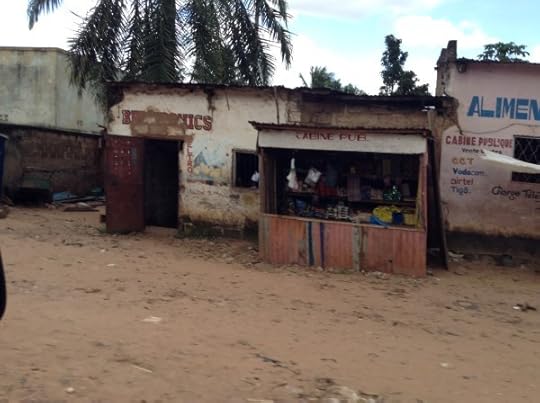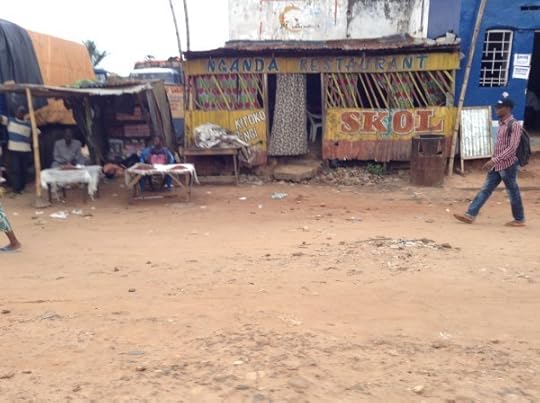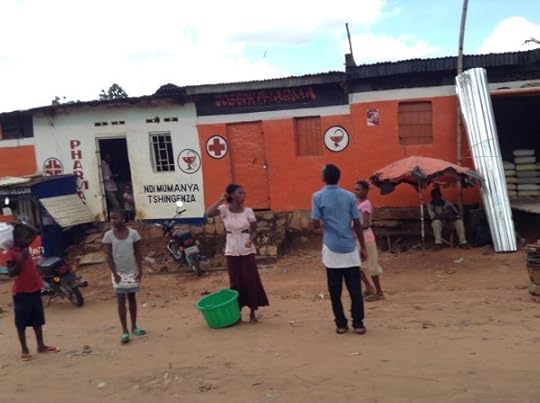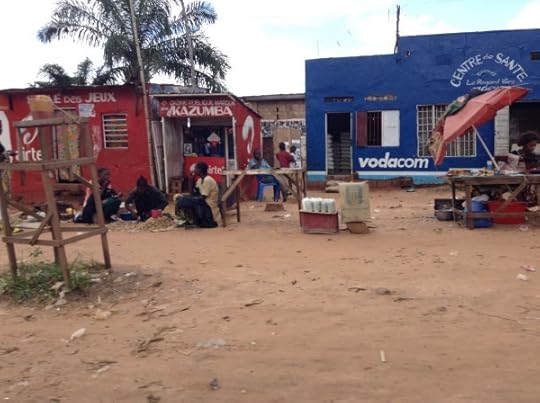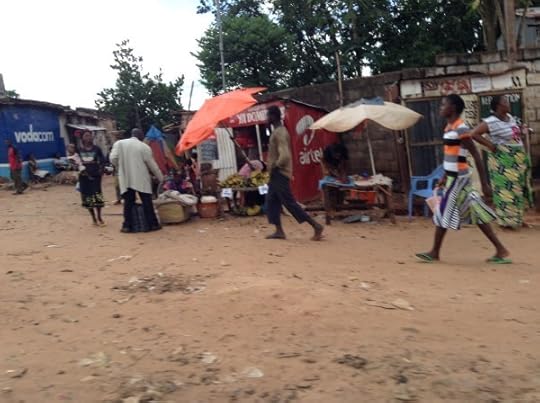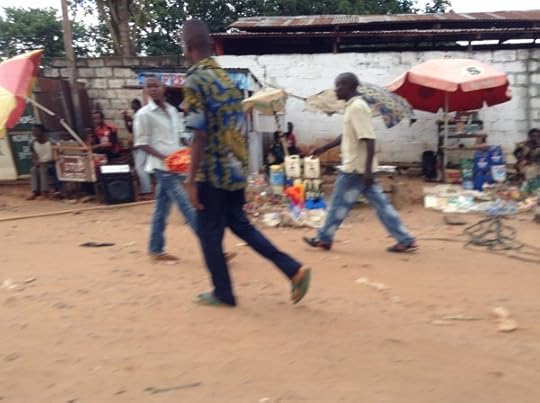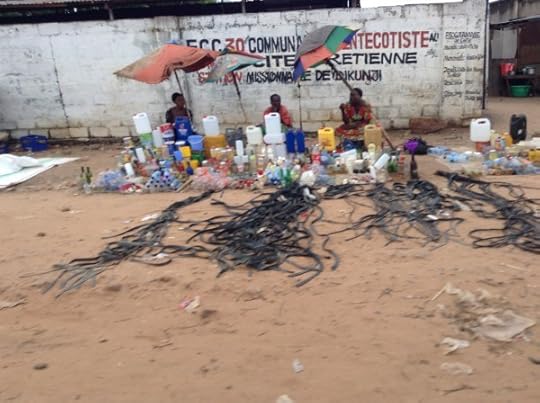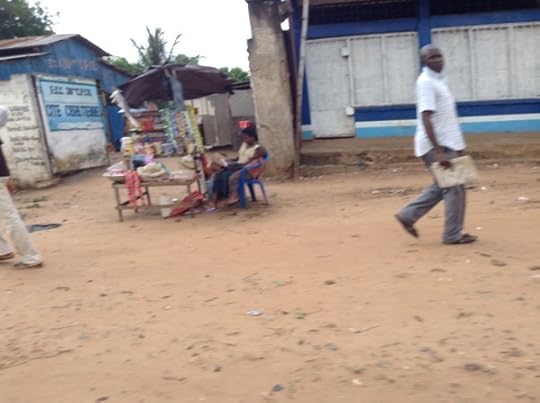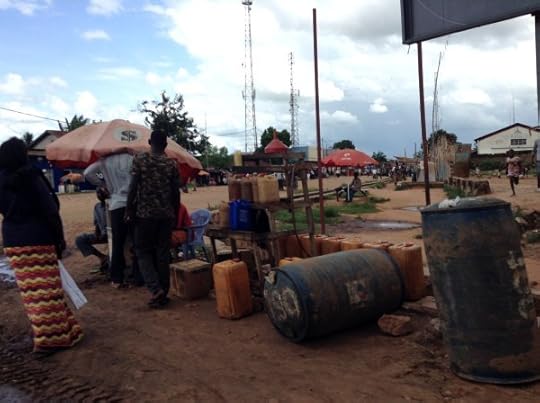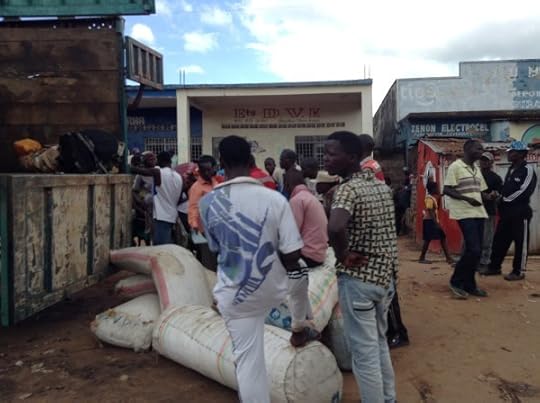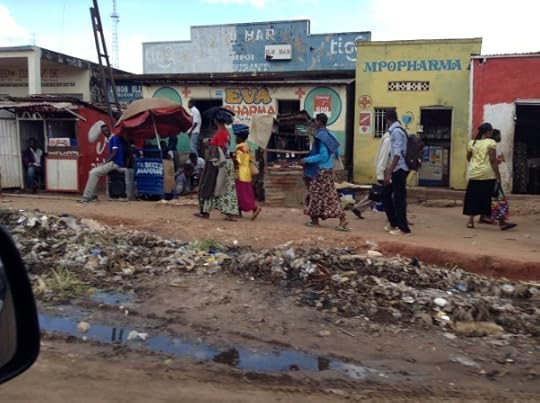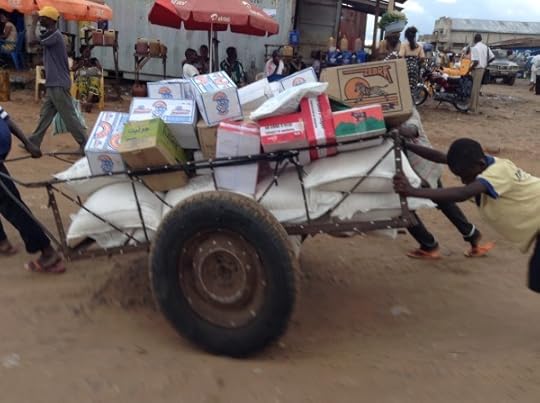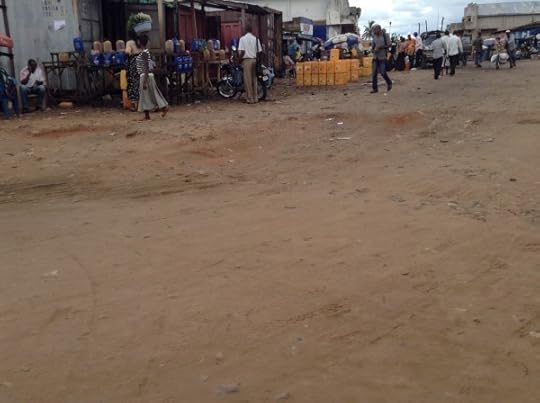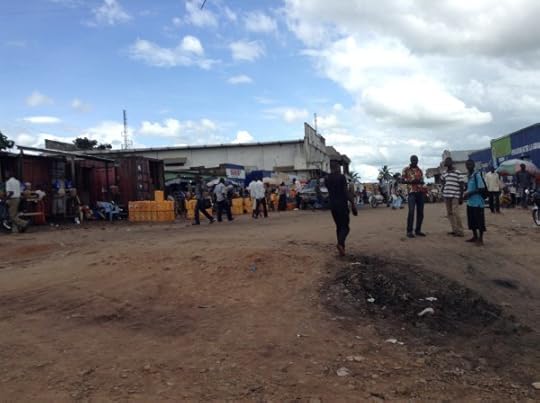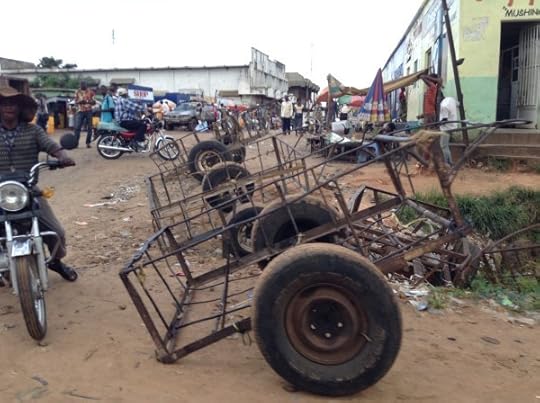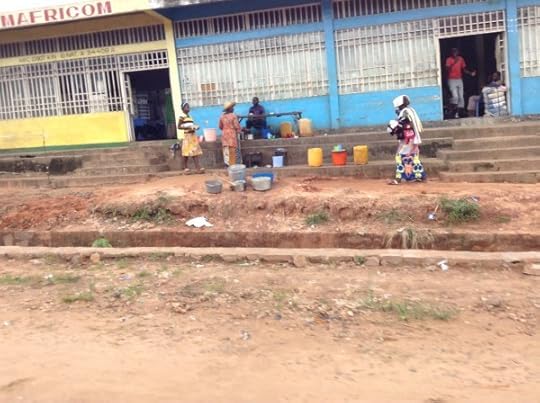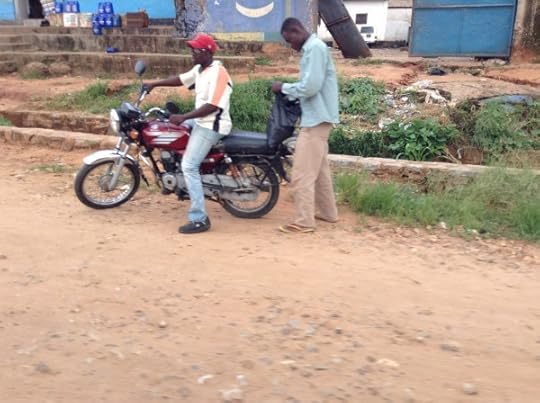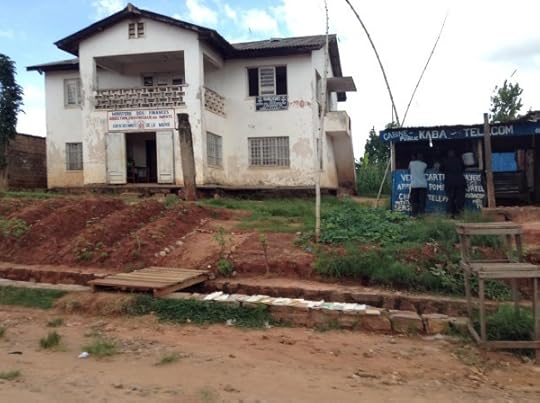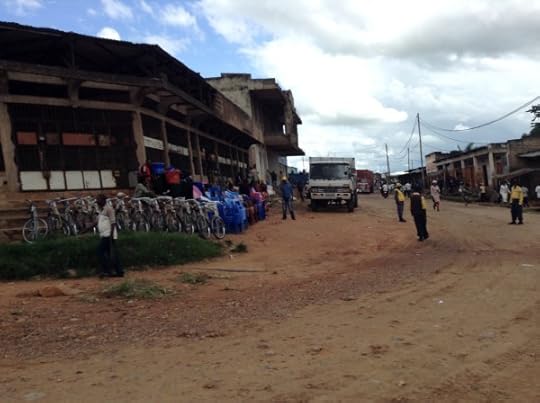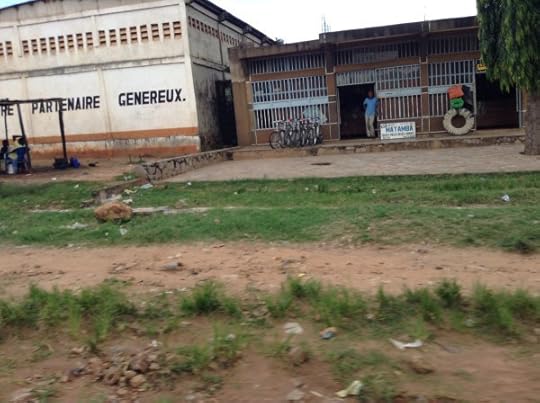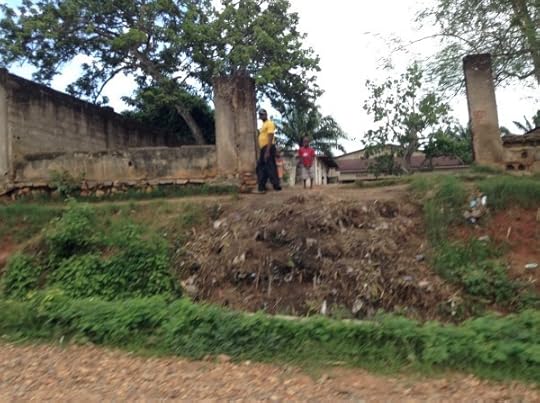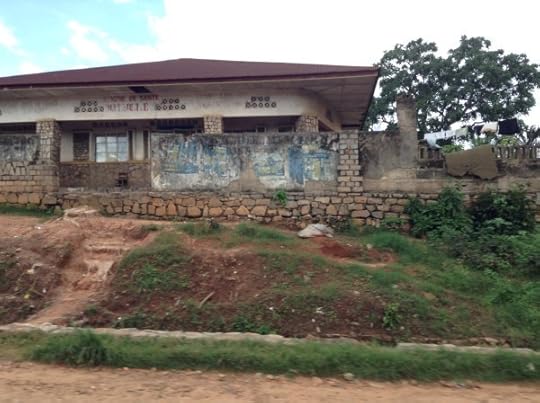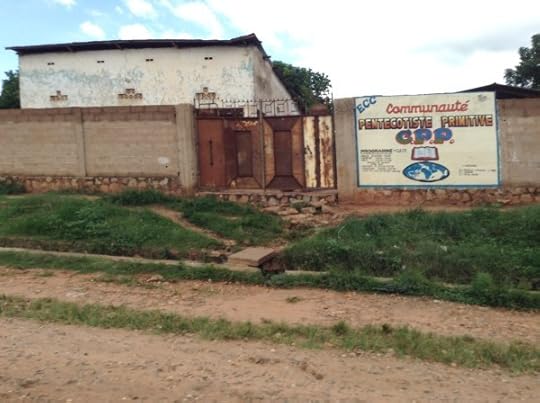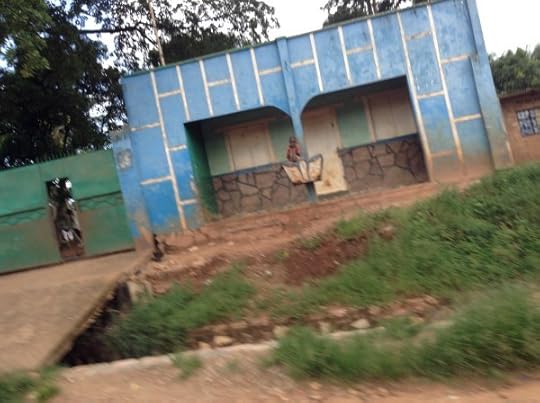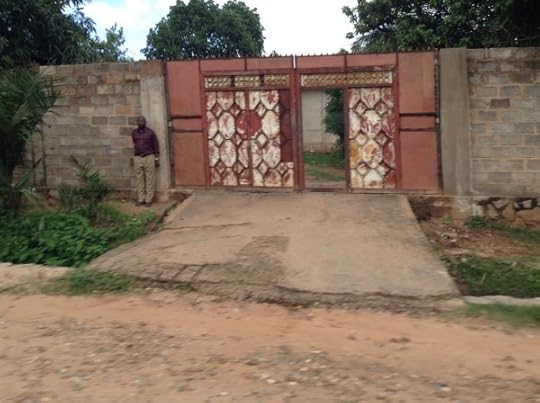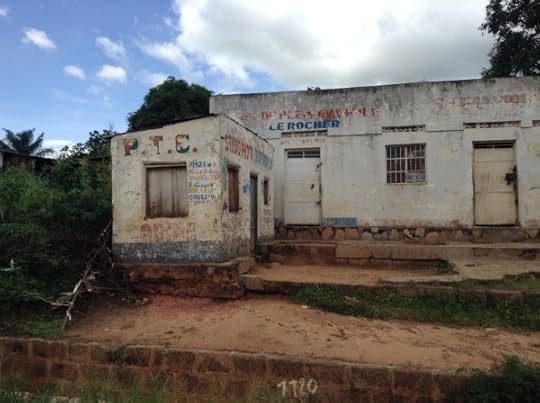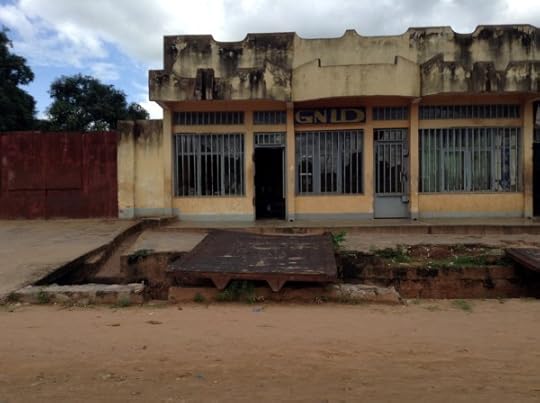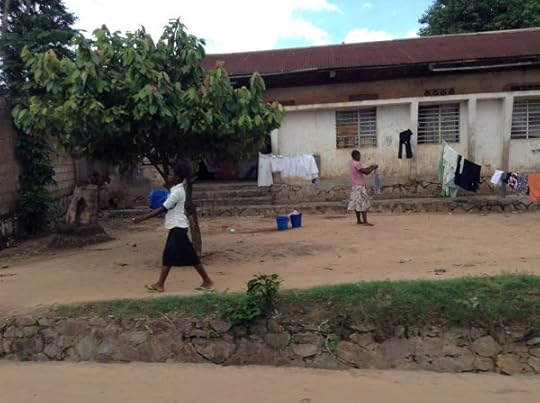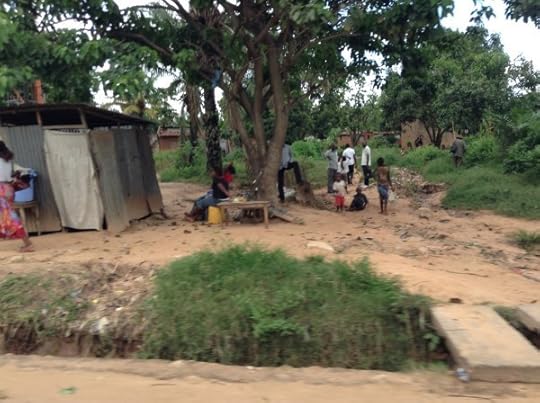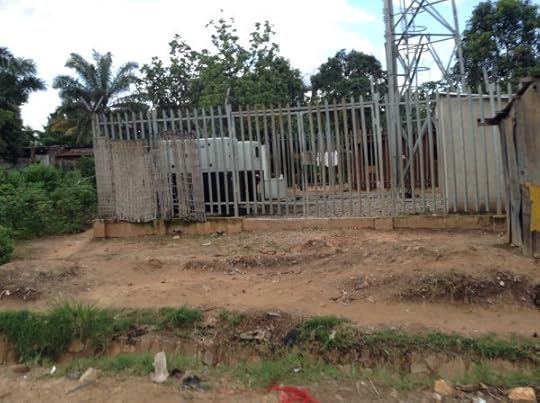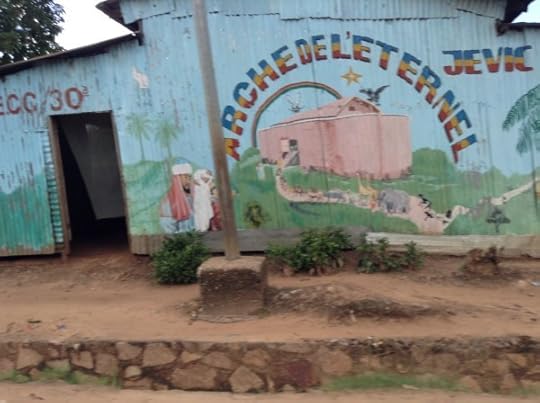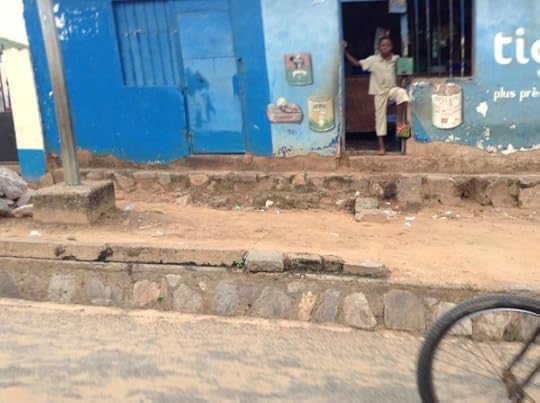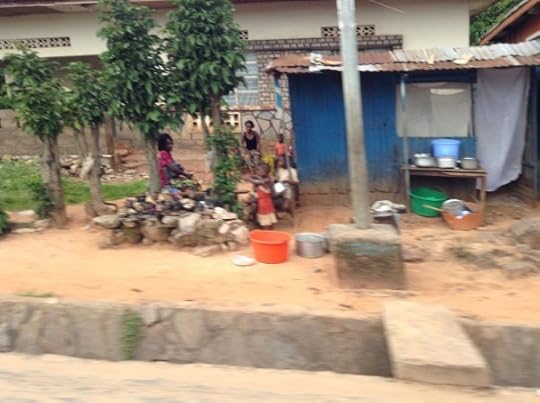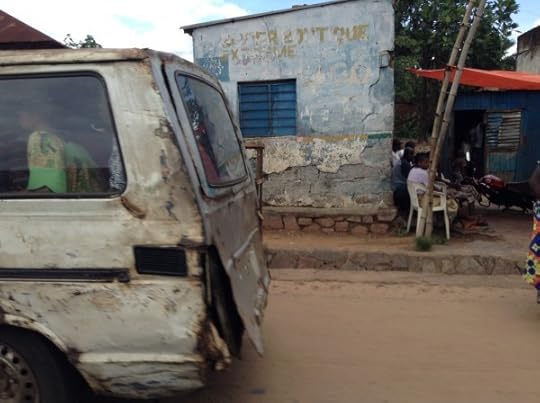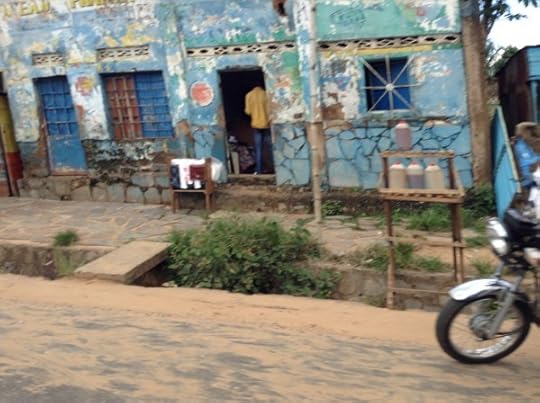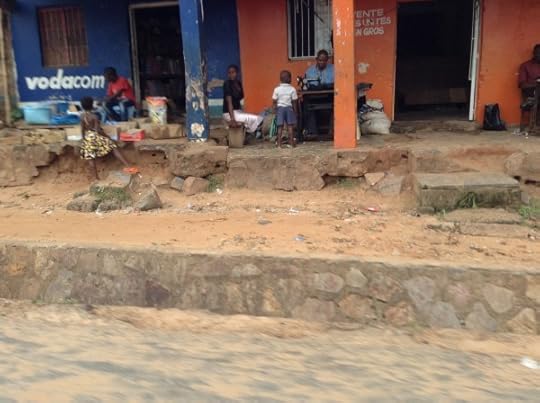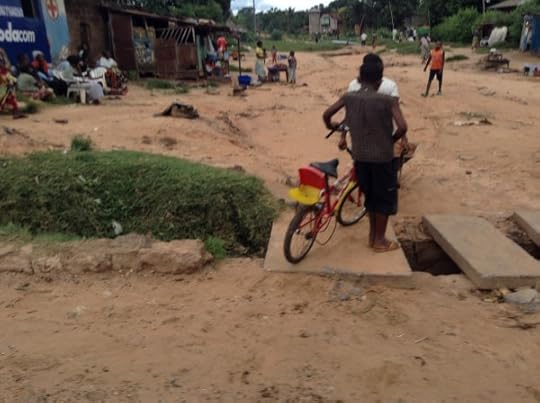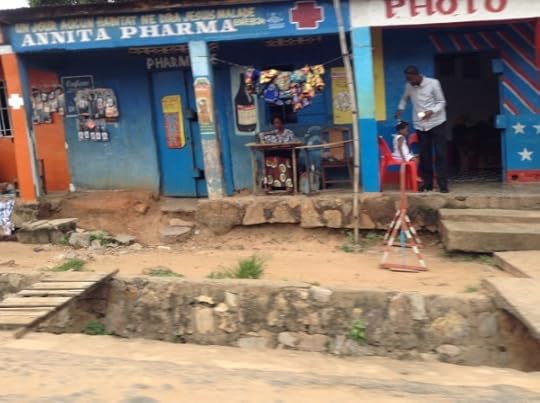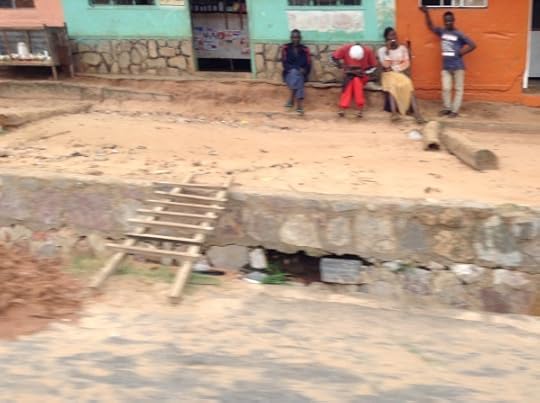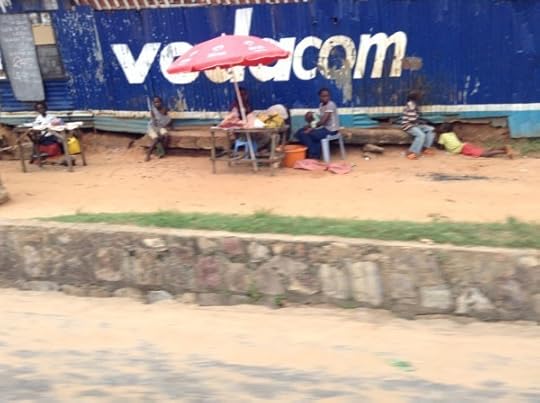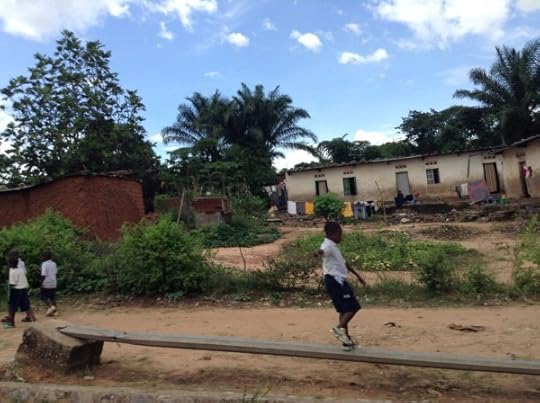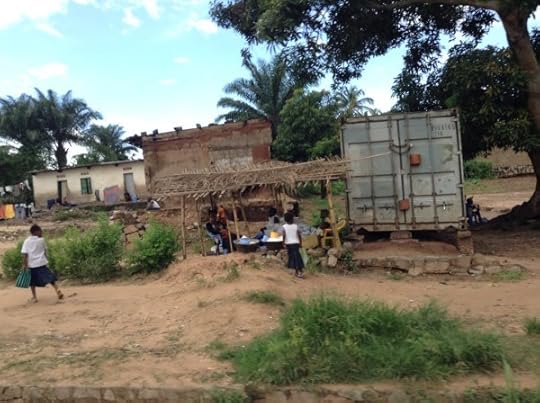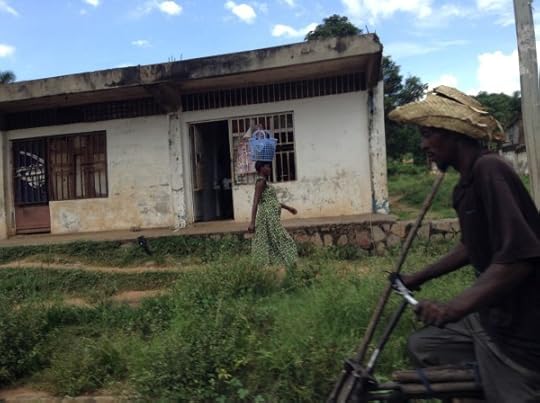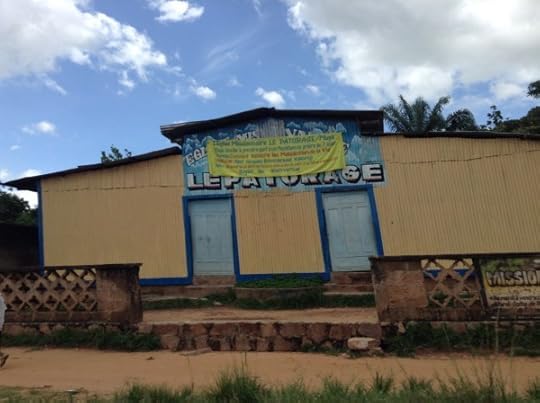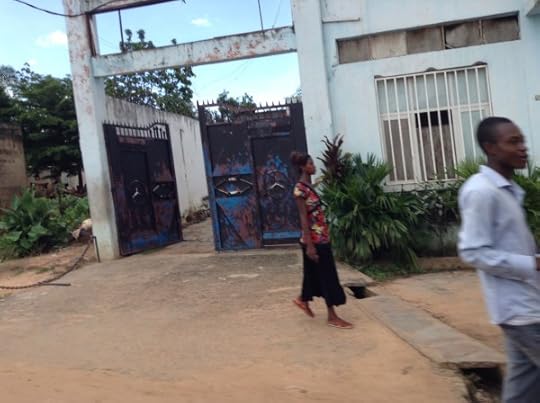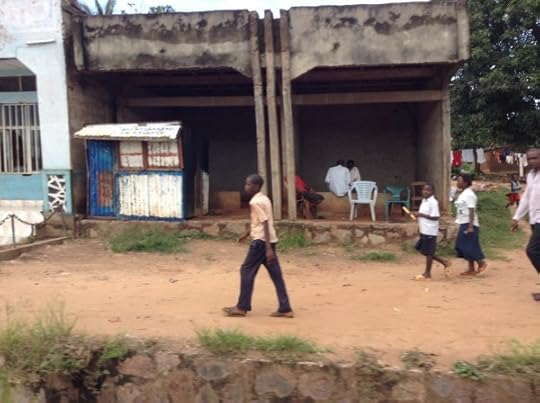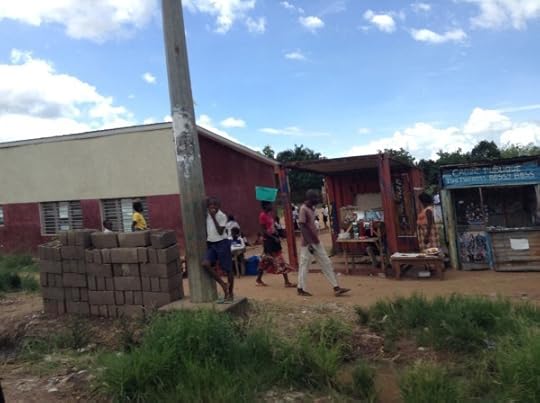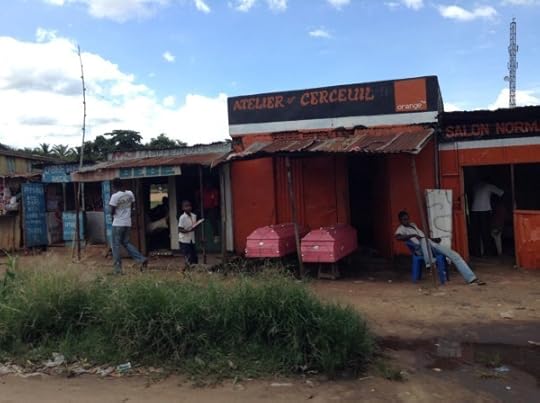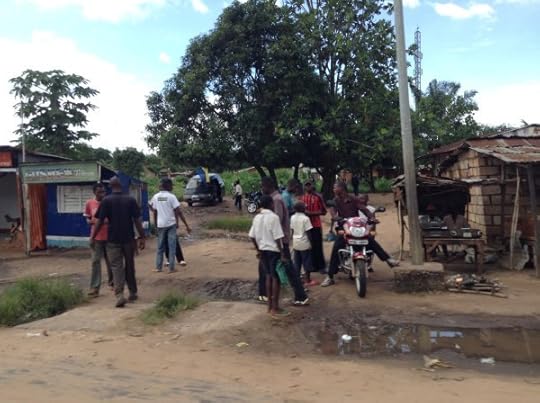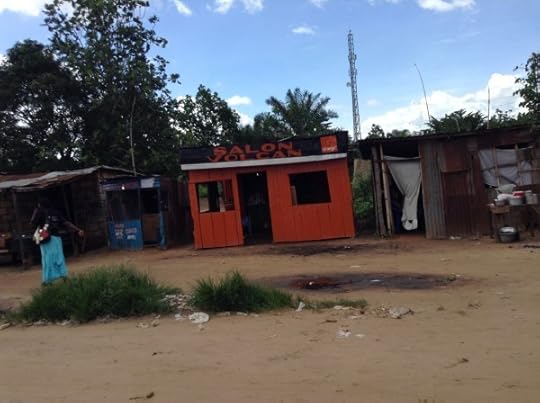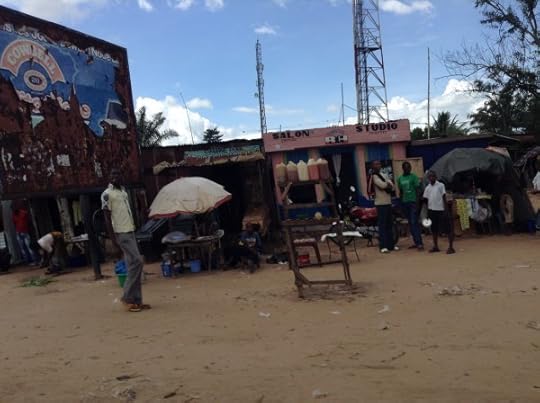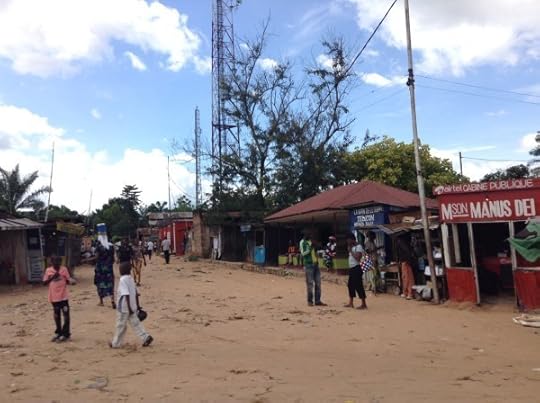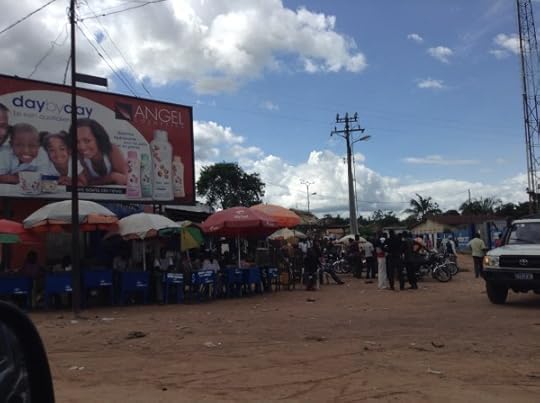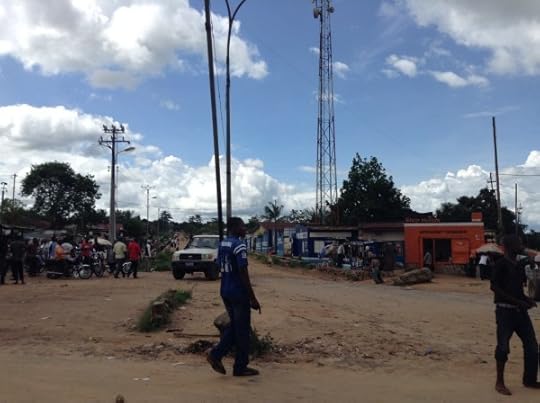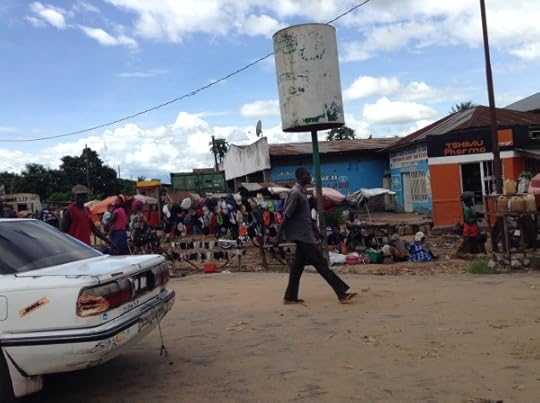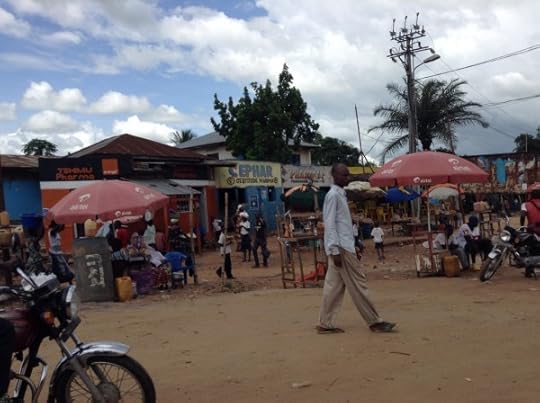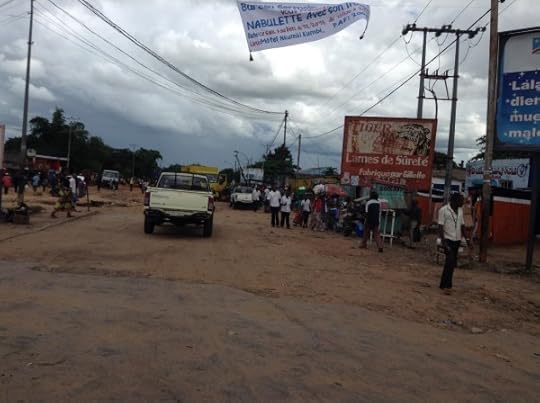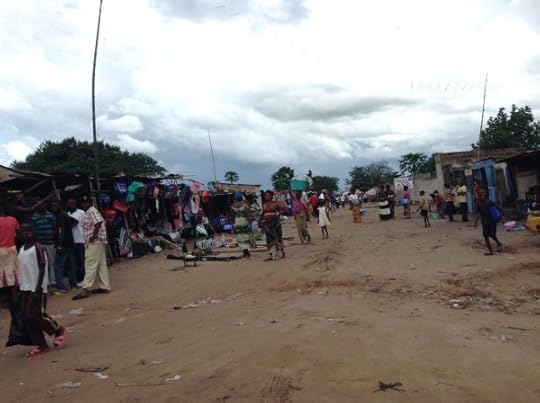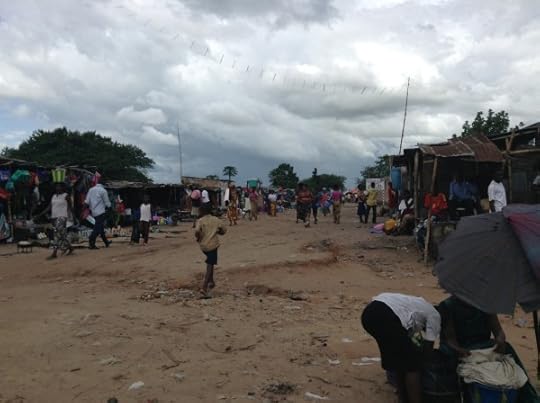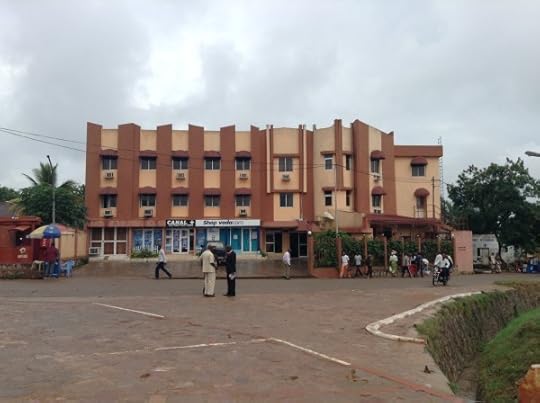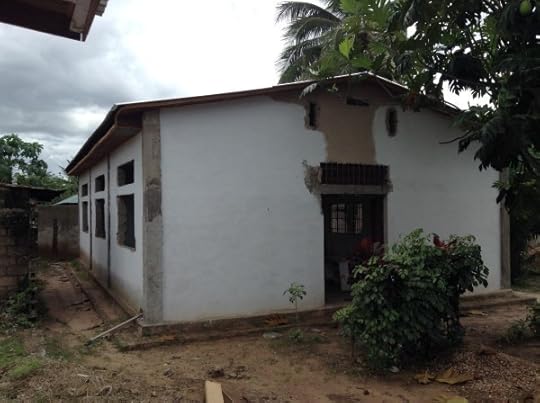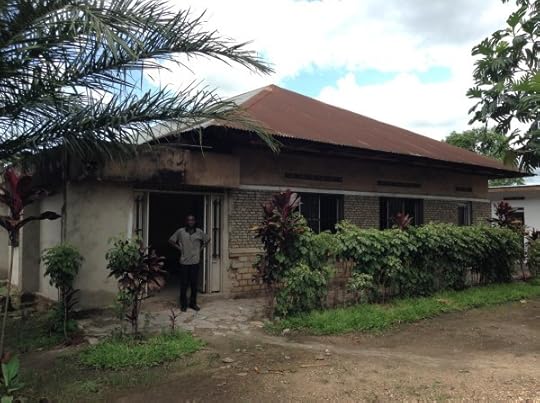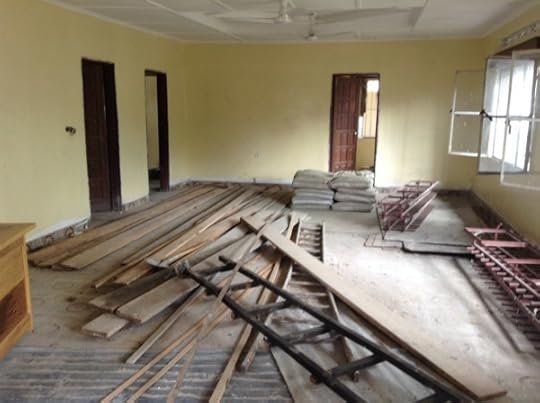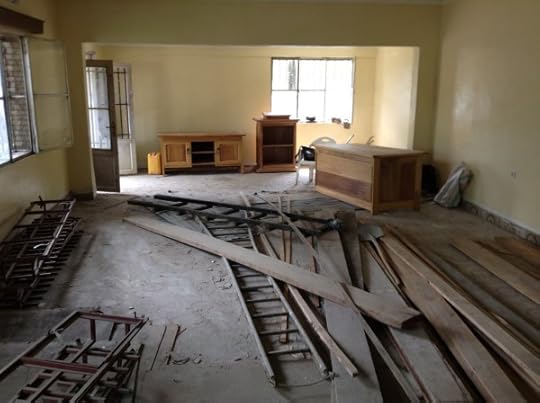Kevan Kingsley Clawson's Blog, page 27
December 28, 2013
Odds and ends
The Congo is a place where one can truly learn to understand the scriptures. Because their culture is so old, and much of it is so unchanged after thousands of years, the things we see and the events we experience here have a remarkable resemblance to things one reads in the scriptures!
The scriptures often talk about the crippled and maimed that sat at the doors of the temple, or gates of the city, or entrance to some rich man’s home. In the states, we seldom see anything resembling these scenes! Oh, we might see someone begging, or with a sign that says ‘needs work’, but we all recognize that the need isn’t quite the same.
Here in the Congo one actually sees and experiences beggars like the scriptures describe: people who are lame, or have lost an arm or leg and so are limited in what they can do for work; or an old woman or the blind, etc., who come to the city to beg for a living. Often, like described in the scriptures, they have chosen a place that they come every day—they become well known to you and everyone else. We always carry change with us on our trips to the city so that we can give something, no matter how small, to those who sit in need.
It is easy to see how astounded people would have been at the miracles that Jesus did, or that Peter did when he healed the lame man who sat at the door to the Temple. Everyone knew these people! They saw them day after day, sitting in the same places, begging for their living. And suddenly, they were healed of their maladies… No one could possibly deny the truth of the events—they simply were too well known.
The story of Jesus healing, and forgiving, the young man who was set in front of him after his friends or family removed the roof of the house he was in and lowered him down from above? Can totally relate to that now that we have been in the homes of the villagers here. With roofs made of simple wood sticks covered with grass, a person could easily remove a section of roof to gain entrance to a home.
The concept and stories of washing the feet of those who come to visit is commonplace here. With nothing but dirt roads, and most wearing sandals or flip-flops, when one comes to a home their feet are usually dirty from the walk. It is simply common courtesy to take off your shoes and/or wash your feet before entering someone’s home.
The list could go on and on. Living in a country that is still living like they might have been during the Savior’s time is enlightening.
Shoe Shines
One of the main ways young men earn money is to shine shoes. They have a universal technique they use to guide the person receiving the shine: They carry a small slanted board with them that they use to place your foot while shining. As they walk they tap the piece of wood to let you know they are near, so you can call them over. Often while walking in the city you can hear the tapping of wood as the shoe-shine boys call for customers.
After agreeing to a price (always negotiated somewhere between 250 franc—25 cents—and 1000 franc–$1), they place your foot on the small piece of wood, roll up your pants, and then reach into a small sack to get their can of shoe paste. They first clean your shoe with a rag, then, using a toothbrush, put the shoe paste on your shoe—always covering everything but the sole of the shoe with black wax. After the first shoe has paste on it they ‘tap’ the side of their wood board to signal you to switch shoes. After placing your other shoe on the board, they go through the same process. After both shoes are waxed, they then begin the shine. They start with the normal shoe brush, and then turn to a piece of foam, rather than a soft cloth, to ‘buff’ the shoe to a brilliant shine. With another ‘tap’ on the board, you switch feet again so the first shoe gets buffed. Once finished, you pay the fee and are on your way.
I get lots of shoe shines.
The simple hierarchy of wealth
There seems to be a simple hierarchy in the Congo—three tiers of wealth or status that is easily seen and understood.
At the bottom are those who live off the land, and who do manual labor. They are the poorest of the poor, with no other means of support. They either live off the land (literally gathering food each day to eat) and/or working the most menial jobs to earn just enough money to buy food for that day. These are those who haul anything and everything on their bikes—charcoal, wood, steel, car parts, etc.; or haul things by cart—dirt, bricks, garbage, etc. All done by the force of their legs and personal strength. They are the women who carry things on their heads—mostly water, but basically anything and everything, all the while carrying a baby on their back at the same time.
The second tier is those who find work in stores or shops, or have enough money and capital to set-up their own roadside stands. It is the adage that it takes money to make money: those on the lowest tier never receive enough capital to buy things to sell. If they do sell things it is stuff they made themselves, such as charcoal or fruit. But those selling shoes, clothes, and a million other odds and ends you can find on sale in roadside stands (and the roadside stand itself) all takes money to obtain—creating a second tier of those who can and do make more money and live better.
The third tier is a huge leap to the wealthy. Usually those who work for the government, have had families in the military, or have education of some kind. They own homes, drive cars, can actually eat out at restaurants, etc. It’s simple: if you drive a car in the Congo, you are rich. No one can own and drive a car here unless they are very rich.
Tithing is Consecration
I have often wondered about the difference between tithing and consecration. In the temple we covenant to consecrate all of our time, talents, etc., for the building up of the Kingdom of God. And yet, in practical terms we simply pay tithing. Will we ever be required to ‘give all that we have’? But then I remembered a scripture that seemed to bring it all into balance: The Prophet Samuel taught that to obey was better than sacrifice. So, in a way, it doesn’t matter how much or little we are required to give, what really matters is that we are willing to obey. So obeying the law of tithing is the same as consecrating all things, because it is not the amount, but the obedience that makes the difference! When I see the local members paying tithing here—sometimes just 500 francs (about 50 cents)—it is clear that it is not the amount given but the attitude of obedience that is demonstrated. It that obedience that develops in us the power of faith that will, in turn, prepare us for the Kingdom of Heaven.
Washing Floors
I don’t remember if I have talked about how they wash floors here. Most, if not all floors here are tile. When they wash the floors they use one of two methods: either they simply dump water on the floor and then use a squeegee to move the water and dirt out the door; or they use a large rag as a mop (I have NEVER seen anyone use an actual mop here in the Congo). This is done by pouring water on the floor, or getting the rag wet, and then, bending in half, the women wash the floor with their hands and the rag. They don’t kneel and wash the floor, nor use a stick or other method to move the rag around, they literally bend over so their hands touch the floor and wash the floor by hand, while standing! It looks hard, it is hard, and must be tough on their backs! It reminds me of the women we saw in Viet Nam and Cambodia who work in the rice fields—some of them were permanently bent in half (they literally could not stand-up straight) due to the amount of time they spent bending over to plant and harvest the rice.


December 27, 2013
Merry Christmas to us!
Christmas for the couples here in the Congo was great! On Christmas eve we all went to a local restaurant for dinner, and on Christmas day we gathered together to share a pot-luck meal.
Our first call of the day was to a sick Elder. He was staying at Golf apartment–our ‘hotel’ for missionaries coming and going–and had just come from Kananga. Surprise! He had malaria! Of course, it was not a surprise at all, as many who serve in the Kananga area come down with malaria. Terri has a quick test for malaria, and when caught quickly it is easily treated. She gave him meds and the next day he was up and around.
We came back to eat with the couples, then later in the day went back to Golf to take the Elders some popcorn and cookies for a treat.
That evening we watched a couple of Christmas movies… just made us homesick!
We did get a chance to talk to all of our kids over Skype, but not for long as the connection wasn’t too good. But at least we got to see our kids and grandkids for a moment!


New Mwembila Ward
The new Mwembila Ward is soon to open. It is located in a very congested and crowded area of Lubumbashi. There are many church members here and they will have two wards placed in the building as soon as it is open. Then, I give it about 6 months at most, and they will have 3 wards in the building!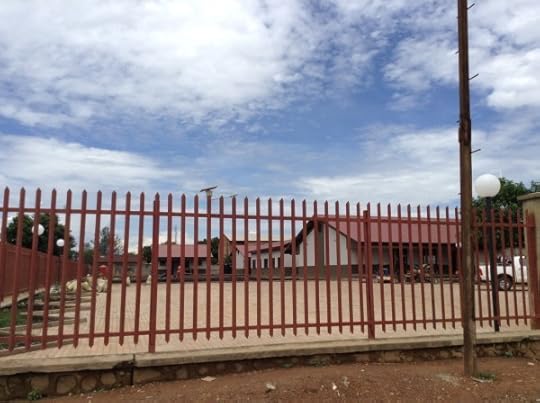
It is without question the nicest and largest building in the whole area. We have been trying to help the local leaders with the concept of an ‘open house’: inviting the entire area to come in and discover what their new neighbors are all about.


December 22, 2013
Lubumbashi pics
Here are some more street scenes of Lubumbashi.
Women on the way to or from church
A local outdoor restaurant
Just a few of the local kids–there are thousands of children here!
Every street you drive down has broken down cars, trucks, equipment, etc., just left where it died to rust, or be canabalized by the neighborhood.
One of three major forms of transporting goods here in the Congo: bikes, carts, and overloaded trucks.
The typical taxi. Almost every car/van you see on the street is a taxi. There are very few vehicles driven by owners, without looking for paying customers. A large van/transport costs 250 francs (about 25 cents), a taxi/car will cost double that (500 franc or 50 cents). But the cars still stop for every open passenger until the car is full–you never get a vehicle to yourself!
You can tell it is the rainy season here–lots of standing water
Lots of people selling goods along the roadside. This one is selling apples. They walk to a farmers market to purchase the bags for little expense, then sell them individually for a small mark-up. Bananas are usually 250-300 each, apples and oranges 500 each
These men are weaving grass matts for floors
Typical stand to buy minutes for all the mobile phones here
The local car wash, located next to a small creek. They fill the yellow bidons with creek water to wash cars. Costs about $2
The second typical form of transport in the Congo: hand carts. They carry almost everything in them, pulling them by hand along the roads.
Third form of transportation of goods, large overloaded trucks


December 21, 2013
Eastman Farewell
One of the senior couples serving here in the Congo has gone home… a blessing for them, and tough times for us who are left! Sister Eastman acted as the office manager and Elder Eastman worked with me and Emanuel (a local) with finding and up keeping apartments, as well as did all the material handling for the mission (book of Mormons, pamphlets, etc.). With Sister Eastman gone we all feel like a ship without a rudder, and with Elder Eastman gone, Emanuel and I have to pick-up all the slack… a daunting challenge!
We do have two new senior sisters that arrived just before the Eastman’s left. Sister Riendeau and Sister Anthony are here to work in the office and to teach the Congo sisters. It is hard to tell exactly how they will fit-in as yet, so it is a little confusing. The two sisters will take over some of what Sister Eastman did, but a lot of their time will be spent teaching the local sisters and sister missionaries.
In addition to the normal stress that comes with such significant changes in staff and operations, we have 9 apartments that have been found and must be rented (all the contract paperwork), furnished (beds, tables, chairs, kitchen stuff, etc.), and then the missionaries moved in with all their stuff! And we are still searching for at least 5-6 more apartments to open immediately!
We have created a chart to try to track the progress of all this activity (as there are at least three separate departments involved in getting it done: Justin, Emanuel and I, and Elder Wright in finance.
Add to all of the above… and it was transfer week! We have eleven new missionaries coming in as well as 30? elders and sisters being transferred to new areas of the mission. It is mind boggling!
One of the last requests of the Eastman’s was to go to the Karavia hotel for dinner (we have it so rough here in the Congo…). This is a picture taken after dinner of all the sisters working in the mission: Left to right: Sister McMullin, Sister Eastman, Terri, Sister Wright, and the two new senior sisters, Sister Riendeau and Sister Anthony. And yes, it is as fancy as it all looks!
We also had a farewell dinner at the mission home for the Eastman’s as well as three other sister missionaries who were leaving for home.
There was also a couple of birthdays celebrated: this is one of Justin’s sons
And Emanuel’s daughter Perciany
Even Sister Eastman had a birthday to celebrate! Just seven years old too!
Elder Eastman was not to be outdone! He dressed up as…as…and old man (redundant don’t you think?) and recited a Christmas poem “The Night Before Christmas–with a few changes…. well, it was almost unrecognizable! But very entertaining!
Terri and I got some time pretending to be grandparents with Justin’s youngest daughter.
Her face says it all, doesn’t it?
The next day the three sister missionaries who completed their missions went home. One of them was going home to get married to her fiancé! No wonder they were dressed to the nines!
One last group shot, then off to the airport!


December 15, 2013
Kolwezi trip
On Thursday Terri, me, and Emanuel took an overnight trip to Kolwezi. Terri needed to go to see some sick missionaries, while Emanuel and I traveled to try to find new apartments for missionaries in Likasi and Kolwezi. It was going to be a very busy trip.
We had planned to start early but had a minor glitch: Emanuel received notice from Kinshsa that his contract was being renewed (he is a Church employee) and he needed to fill out all the forms and get all his info into them within 24 hours–a problem since we would be gone for two days! So we waited in the office as he completed all his forms and sent them off to the person requesting them. We finally got out about 830 am or so.
On the way, we picked-up Emanuel’s brother who was traveling to Kolwezi also. His wife just had a baby, and they had traveled to Lubumbashi for the birth (so she could be with family, I think), and he was traveling back for some things.
We got into Likasi late and started to see new apartments for rent that had been found for us. It is always a slow process of either picking people up, or following them to the house, reviewing the house, and then, if we like it, discussing pricing, reviewing the contract, etc., and then making arrangements for a meeting for final negotiations and to sign the contract once we have decided to proceed.
We looked at four apartments, and liked three of them. We will probably choose two of them to rent, after looking at a map of the ward boundaries and discussing how we would move missionaries in the area.
We left for Kolwezi about 1:30 (we had wanted to leave before noon), and had to stop in Kakonda (about an hour out of our way) to pay the carpenter for the furniture he had built for our new apartment there. We now have a great working apartment in Kakonda, where a small branch has been flourishing for some time. It has been over a year trying to get missionaries into that small city. They have only been there about a month, but are already baptizing about 5 people a week!
Once leaving Kakonda we finally headed for Kolwezi, hoping to get there before dark. The one grey area in the trip was the road conditions. The last time we traveled there, there was a section of road that was not finished, and had so much loose dirt and dust that at times it was like driving through snow drifts, with the dirt so deep it flew up over the roof of the car and caused white-out (brown-out?) conditions! To our relief and amazement, the road had been finished (all but one bridge that looked ready), so we got to Kolwezi before dark and had time to visit the missionary apartments.
Our first stop was Diur apartment where 8 Elders live (it is a packed house–part of the reason for looking for more apartments!). We had brought a guardrobe with us for them (portable closet each missionary uses). They had good water and power, and the place was very clean.
The next stop was the Kolwezi apartment where 6 Elders live. We had brought many smaller items for them, and for the Zone, such as boxes of Book of Mormons, pamphlets, water filters and pumps, etc. They were having some problems with their plumbing, so we installed new faucets in the kitchen sink and one bathroom, as well and one of the outside water taps. They get water once a day, in the late afternoon, but seem to get it consistently now (they had been buying water for some time).
By the time we were through it was dark and we headed to our hotel for a room and dinner. We had been told by one of the locals that were helping us find apartments that a reservation had been made for us. When we got there–no reservation, and they were full, and it was raining hard!
We had no choice but to try to find another hotel. It was so dark and with the rain, it was hard to see anything. We stopped at the Kolwezi church (there is always someone at the church!) and got directions to one just next door. They had rooms, and they were actually quite good, but had nowhere to eat. So after getting the rooms we went back to the first hotel, which had a restaurant, and ate dinner. It was great food (perhaps we were just really hungry?). Then we returned and went to bed.
The next day we got up early, ate, and had planned to get to our first apartment by 830am. No such luck. The person was late, so we sat at the church and read.
Meanwhile, Terri had arranged for all the missionaries who had medical issues to come to the church beginning at 9am. She would be able to see them about medical problems as well as pass-off English exams, etc.
Once our local man got there, we left Terri at church and headed off to see apartments. We ended up seeing three (we had planned on seeing four, but one was already taken). But all three looked good, especially the last one. We will probably take at least two of them.
Terri finished about the same time we did, so we prepared to head back to Lubumbshi. It turned out that the District President was heading to Lubumbashi also, so we had a packed car on the way back, with the same four, plus the district president. We left Kolwezi about 130pm. We made such good time we drove straight through and got home about 5pm!
By that time Emanuel’s contract had been completed and sent back, and Elder Eastman was given the privilege of telling Emanuel about a raise he had received in the new contract–a well deserved raise, I might add!
Here are a few picks of our trip to Kolwezi:
Gee… I wonder why this truck broke down?
This is an accident waiting to happen!
Before leaving Likasi we stopped at the local auto repair to get our tires filled with air. $2000 congo francs (about $2)
As you can tell, this ‘service station’ was nothing more than a couple of guys with a gas compressor and a few tools.
But they were kept very busy!
When all else fails, improvise!
We saw a lot more of these on this trip, and since the rainy season: huts made out of local orange plastic. Some are quite elaborate. Along the road to Kolwezi there were whole towns of these make-shift buildings used to house people building the road, or supporting those who worked on the road by selling stuff.
There are three types of vehicles used to haul goods in the Congo: the bicycle, the two wheeled cart (like a hand-cart), and the big overloaded trucks.
The Congo is beautiful now, and very green everywhere. In some places it reminded me of Tinian: everything grows so fast, at points it seems to want to overgrow the whole road!
This is the last section of road they finished, so they put down sticks to prevent people from driving on it too soon.
Well, we got back safe and sound, and were successful in finding more places for the missionaries to live and serve– almost ready for the next transfers and even more missionaries coming to the Congo!


Congo power (or lack thereof)
The Congo has very inconsistent power. As a result, most people who have or use power also have a back-up generator. Every store in Lubumbashi has a back-up generator to turn on when the power goes off. In addition to the power coming and going, the power itself goes up and down, leading everyone to buy a voltage regulator to try to keep a steady flow of the correct power flowing to expensive electrical equipment–and to prevent power surges from totally destroying equipment!
We have both a power regulator and a power converter in most office and apartments. The regulator (to the left) prevents overloads and brings in consistent power. The converter (to the right) is used to convert 220 volt to the back-up batteries and vise versa.
The two large back-up batteries gives us some power in-between power outages (so if you are working on a computer it does not die in the middle of your work, etc.).
I had heard from our couple in Likasi that they had power surges that were so strong it now only blew out light bulbs, but make them blow-up! I was skeptical, as I had never seen something like that happen…until last night.
Terri and I were in the living room watching a video on her Mac. I had commented on how the lights in the living room were slowly going out (there are 8 lights in the ceiling fixture). We had replaced all of them just a month or so ago, and every week or so we would notice another light had burnt out. Now there were only 3-4 left working.
All of a sudden the lights went bright, then completely dark, with one bulb actually bursting, throwing glass all over the room! Wow!
Now we have no lights in the living room, had to carefully find out shoes to get the broom and dustpan to sweep up all the glass. Tomorrow we will replace all the bulbs–again–and hope for the best.


December 9, 2013
Lubumbashi pics
Here are a few more pics of Lubumbashi. About the same, but more paved roads rather than dirt roads. They also have more water here than in Mbuji Mayi.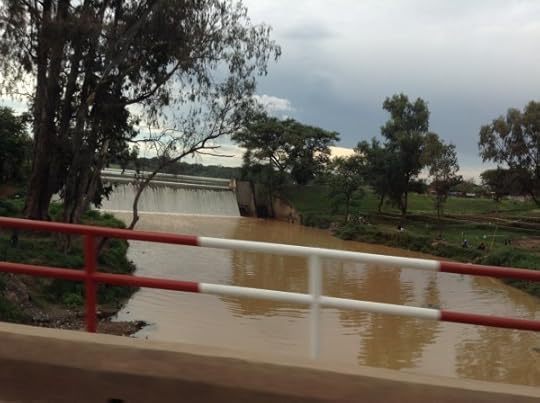
The small reservoir near where we live in the Mission Home complex
You will notice that there are pharmacies everywhere–not that they have that much to sell
The typical scaffolding used while building in the Congo. At least in Hong Kong and Asia they use bamboo–much stronger and more flexible
A view of Lubumbashi coming from the airport
A new apartment complex being built by the country’s president near the mission home


Mbuji Mayi Pics
As we drove around Mbuji Mayi I just clicked a bunch of pictures. Some are great, some are not, but it will give you a feel of what the city looks like driving around the town. Like most cities in the Congo the biggest problem is lack of water. People stand in long lines to get water each day at the few access points.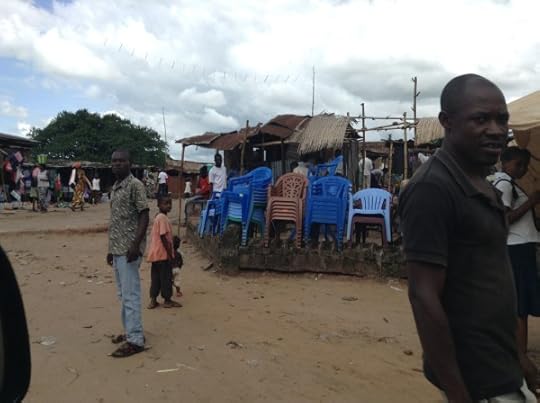
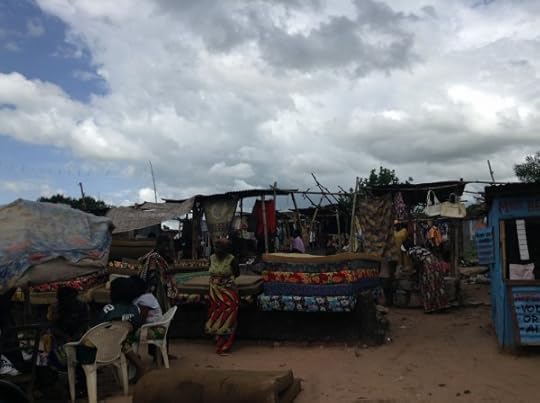
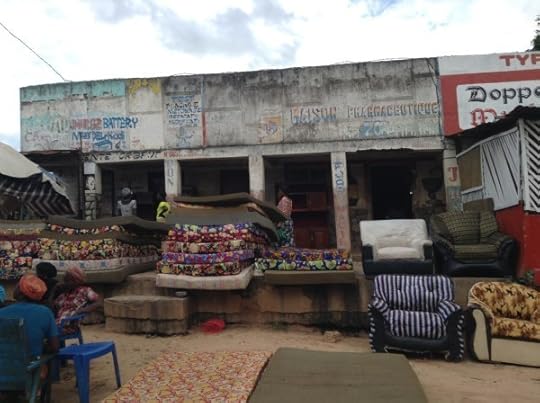
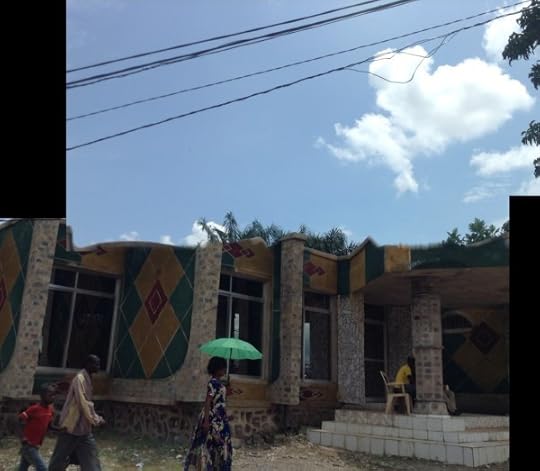
You will notice they have Votacom signs everywhere! It is their major phone company. It is also how you can send money: from one phone to another.
Lots of construction going on in the Congo
The local gas station
The local tire store. Yes, they will but it on your car, for a fee–all by hand.
The rubber straps are used by those selling or transporting charcoal to strap the charcoal in the bags they use to carry it.
When we recently taught our English class about the Mormon Handcart company, it was quite easy: we just told them to think about these carts they see and use everywhere.
The Hotel Equinox we stay at in Mbuji Mayi. They have no water (just buckets in the room), and you get power for about 3 hours at night when they run a generator. They have a small restaurant on the bottom floor, that serves the same thing: omelets in the morning, chicken or steak? at night.


Tshikama Branch
I visited the Tshikama Branch building while in Mbuji Mayi–it is a new building being built/remodeled for new branches being created. One of the methods being used to keep up with the growth of the Church in the Congo is to buy or lease existing homes, then remodeling them, perhaps building a small chapel, to use as a church.
The chapel being built next to the home that will be used for classrooms and offices.
The home being remodeled for use
The living room could be used as a large classroom.
After the work is completed, there will be three branches of the church meeting here.


Kevan Kingsley Clawson's Blog
- Kevan Kingsley Clawson's profile
- 14 followers


